Coronavirus: Apple says all its retail stores in China will reopen on Friday – as it happened - Financial Times
Coronavirus: Apple says all its retail stores in China will reopen on Friday – as it happened - Financial Times |
| Posted: 12 Mar 2020 04:21 PM PDT [unable to retrieve full-text content]Coronavirus: Apple says all its retail stores in China will reopen on Friday – as it happened Financial Times |
| BLOG: Coronavirus in Estonia - Estonian World Posted: 12 Mar 2020 02:27 PM PDT As the coronavirus hits Estonia and the Estonian government has declared an emergency situation and, as of 17 March, closed its borders, Estonian World informs you on the latest developments in the country and brings you some of the local as well as international opinions on the matter.1 April 2020 – 745 coronavirus cases in EstoniaAs of today, there are 745 confirmed cases of the coronavirus disease (COVID-19) in Estonia, according to the country's Health Board; 91 people have been hospitalised, 13 are in intensive care and in a critical condition; four people have died. Twenty-six previously hospitalised patients have recovered. The Estonian government declared an emergency situation on 12 March and closed its borders on 17 March. The virus is transmitted from person to person through droplet spread. The incubation period of the virus is about two to 14 days, with an average of five days. It is not yet known exactly how effectively the virus spreads and how long the contagious period lasts. The symptoms are flu-like: fever 38°C (100.4°F), cough, difficulty breathing. 1 April 2020 – Volunteers are helping to deliver coronavirus testsFor the next four weeks, Rally Estonia volunteers are transporting samples from mobile coronavirus (COVID-19) test centres across Estonia to the laboratory of Synlab in Tallinn for testing. Fuel for volunteers is provided by a retail chain Circle K. Currently, the drive-in test centres are in Tallinn, Tartu, Pärnu, Kuressaare, Viljandi, Narva and Kohtla-Järve, requiring over 3,000 kilometres (1,900 miles) of travelling per day. With the help of volunteers, three extra rounds are now made on the Narva-Kohtla-Järve-Tallinn, Viljandi-Tartu-Tallinn and Pärnu-Tallinn routes, the total distance of which is over 1,000 kilometres (620 miles). Additional routes to outbreak areas on Saaremaa island and Võru are also being considered. Family doctors (GPs) began issuing referrals to patients with coronavirus symptoms for drive-in sampling points a week ago.  1 April 2020 – 8,200 people have to self-quarantine in EstoniaAround 8,200 people have to self-quarantine in Estonia, some of them because they returned from abroad and have been ordered to stay home for 14 days, and some because they've been diagnosed with the novel coronavirus. Police are calling people and checking whether they're following the rules; so far, they've discovered 176 incidents when they weren't. 1 April 2020 – Over 42,000 people worldwide have diedOver 42,000 people worldwide have died of the novel coronavirus to date with 858,000 people infected. Italy is leading the death toll with close to 12,500 deaths, with Spain following with almost 8,500 people succumbed to the virus. France has recorded over 3,500 deaths which is more than China's official reported number of 3,187. The country with the most confirmed cases of the coronavirus is the United States – almost 189,000. Almost 4,000 people have died of it in the US. Almost 180,000 people in the world have recovered from the virus.  1 April 2020 – Estonians can still fly to Minsk – where the president doesn't care about the virusOn 30 March, Estonian World posted on its coronavirus blog that the real-time Tallinn Airport data showed there were no departing or arriving flights in the foreseeable future. We also posted it on Twitter, where Tallinn Airport responded by saying, "we still have connections with Minsk and Frankfurt, both destinations 3 flights per week". And keeping the air connection to the last dictatorship in Europe open is a really smart idea. Because the country's president, Alexander Lukashenka, has downplayed the coronavirus risks from the get-go. "It is better to die on your feet than live on your knees!" Lukashenka told a Belarusian television reporter when asked whether the coronavirus could stop him from hitting the rink for a propaganda-filled hockey game. "Me? Why? I don't understand. There is no virus here. This is a refrigerator, it is the best thing for your health. Sport, especially on ice, is better than any antiviral medication. It is the real thing." Two weeks ago, he said Belarus has survived worse than the novel pandemic hitting the world. Saunas, vodka and tending to the fields were the best remedy for those who fear the spread of the virus, he said. "The tractor will heal everyone," he said, "the fields heal everyone." Belarus has reported 152 cases of the coronavirus so far.  31 March 2020 – The fourth person in Estonia dies of the virusOvernight, the fourth person in Estonia died of the novel coronavirus. He was a 90-year-old man who passed away at the Ida-Viru county central hospital. The victim was a resident at the Alutaguse nursing home who was hospitalised since Saturday.  31 March 2020 – Foreign ministry: travel options are extremely limitedThe Estonian foreign ministry said in its travel update on 31 March that due to the global coronavirus crisis, travel options are extremely limited; however, most Estonians who were abroad and wished to return home have been able to do so by now. The ministry said about 200 Estonian citizens and residents are currently about to travel home and more than 2,600 have already returned safely. There still are limited options for getting to Europe and returning to Estonia. 31 March 2020 – Emergency medicine chief: the peak of the epidemic isn't yet hereThe Estonian government's chief of emergency medicine, dr Arkadi Popov, told in an interview with the news portal, Delfi, that the largest epidemic of the novel coronavirus hasn't yet started in Estonia and he can't say when the peak happens, bringing a dose of reality to those who think that the contagion is already under control. He also noted that the Chinese example shows when the government can weigh ending the emergency situation. "No more new cases, this is number one. For example, [in China] they had no more clinical cases that ended in death, which is also important. And a sharp decline in intensive care cases, patients under respiratory aid. Basically, we're talking about patients recovering and the percentage of the recovered patients overwhelming the number of the infected. Then we can talk about having accommodating factors that can tell us, it's enough, the emergency situation isn't necessary anymore."  31 March 2020 – Research: restrictions may have averted 120,000 deaths in EuropeAccording to an analysis by the scientists at Imperial College London, the strong social distancing measures enacted in Europe may have averted up to 120,000 deaths in 11 countries, including the UK, Italy and Spain. "Even as the death toll continues to mount, we see enough signal in the data to conclude that sustained, drastic actions taken by European governments have already saved lives by driving down the number of new infections each day," Dr Seth Flaxman, who participated in the research, said. "But because these interventions are very recent in most countries, and there is a lag between infection and death, it will take longer – from days to weeks – for these effects to be reflected in the number of daily deaths." 31 March 2020 – Expert: the crisis will last for two years and has consequences akin to warEntrepreneur, expert and a former communication minister, Raivo Vare, has told the Estonian business daily, Äripäev, that the current crisis will last about two years and its consequences are akin to war. "The actual state of affairs is worse than the government is trying to show us," he said in an interview, adding that like many other countries, Estonia was late in imposing preventive measures, and that there's a long way to go to the peak of the epidemic. Vare also noted that the quarantine will last a lot longer than the government has so far admitted – at least a month or a month and a half – and the government should honestly tell people that the quarantine will last at least two months and the economic recovery will start 18 months after the crisis. 31 March 2020 – Who would've known: Purell sanitiser has its origins in EstoniaVanity Fair, the American monthly magazine of popular culture, fashion and current affairs, has published a story on the history of Purell, the now sought-after hand sanitiser, and has discovered the origins of ethanol having antiseptic properties lies at the University of Tartu. "The first major discovery of a non-water, non-soap cleaning agent dates to 1875, when Leonid Bucholz of what is now the University of Tartu in Estonia apparently discovered that ethanol—a form of alcohol—has antiseptic properties."  31 March 2020 – Janek Fiume from Italy: 175, 368, 475, 627, 793, 919…Janek Fiumie, an Estonian living in Terrasini, Sicily, Italy, writes how the entire country has shut down to try and contain the coronavirus pandemic, and what hardships the people are facing in the face of an unprecedented crisis. 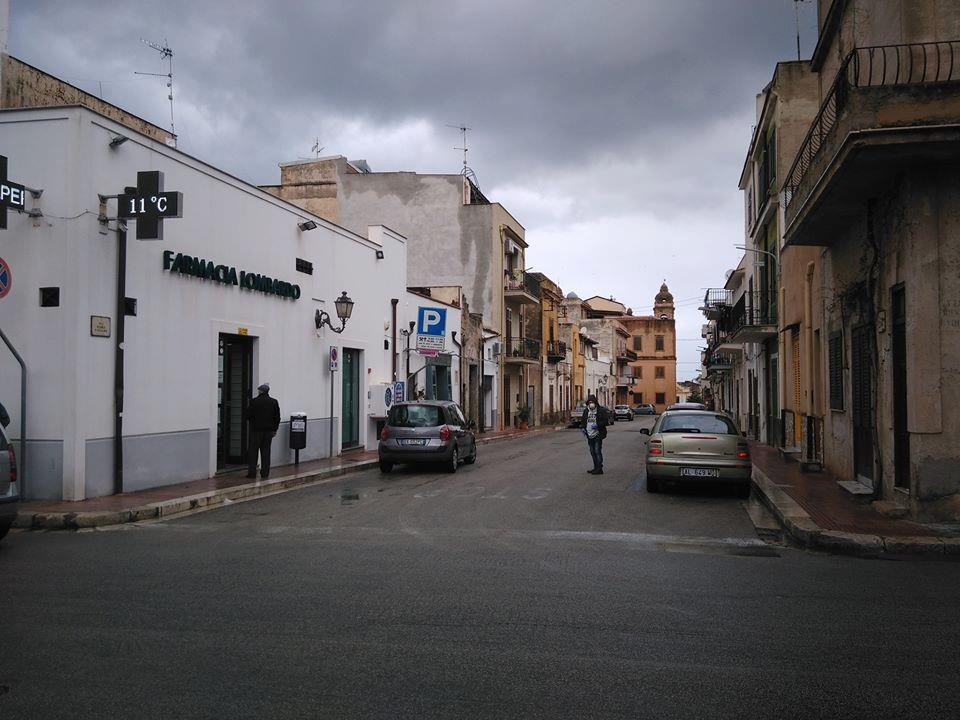 30 March 2020 – The government creates a crisis info pageThe Estonian government has created a special coronavirus crisis info page, published in Estonian, Russian and English, where it has gathered all the official information regarding the emergency situation in the country. It also features frequently asked questions and answers. The website also has information on the short-term employment of foreign nationals in Estonia during the emergency situation. 30 March 2020 – US embassy offers help to US citizens in EstoniaThe US embassy in Tallinn has posted on its website that it's ready to assist all US citizens in Estonia and endure all their questions are answered. "To this end, we will be hosting a virtual question and answer session using Instagram and Facebook Stories centered on COVID-19, American Citizen Services, and travel information," the embassy said. "If you have any questions, large or small, please write us at acstallinn@state.gov. We will keep your questions anonymous, of course, and can answer directly in an email any questions that are personal to your situation." The answers will be posted on 2 April on Facebook and Instagram via Stories. 30 March 2020 – Most long-distance bus lines are suspendedDue to the coronavirus crisis and its resulting restrictions, most long-distance bus lines in Estonia are suspended and the number of departures from the Tallinn central bus terminal has dropped fivefold. According to the news portal, Delfi, in the beginning of March, the terminal saw close to 200 departures on a Monday, then today that number is 36. Most domestic long-distance bus lines have suspended their activities; international bus lines have stopped completely as the other countries' borders are closed.  30 March 2020 – Estonian drinks producer starts making disinfectantsThe Estonian cocktail and soda company, Tallinn-based Punch Drinks, has rearranged its production and started making disinfectants. The company consulted with the Health Board, saying that even though it's not their main area of production, they do have the capability to produce disinfectants as there's a shortage of them. A three-litre container of disinfectant costs €25, a five-litre one €35. The company also produces 100-millilitre bottles that cost €5; five 100-millilitre bottles are priced at €20.  30 March 2020 – University of Tartu is offering help, the government fails to respondThe University of Tartu has intellectual resources and infrastructure that it is ready to offer to help solve the coronavirus crisis in Estonia; however, so far, the state hasn't accepted it, the Estonian Public Broadcasting's science portal, Novaator, reports. The acting rector, Aune Valk, sent a letter to prime minister Jüri Ratas on 19 March, offering its resources and infrastructure directly to the service of the state. The science portal on Tuesday asked the government whether it is going to respond to the offer, by 27 March, they hadn't received a reply. The university could test 1,500 coronavirus kits a day, in two shifts up to 3,000 kits. The University of Tartu is the oldest and largest university in Estonia. According to the QS World University Rankings, it is among the 350 best universities in the world. 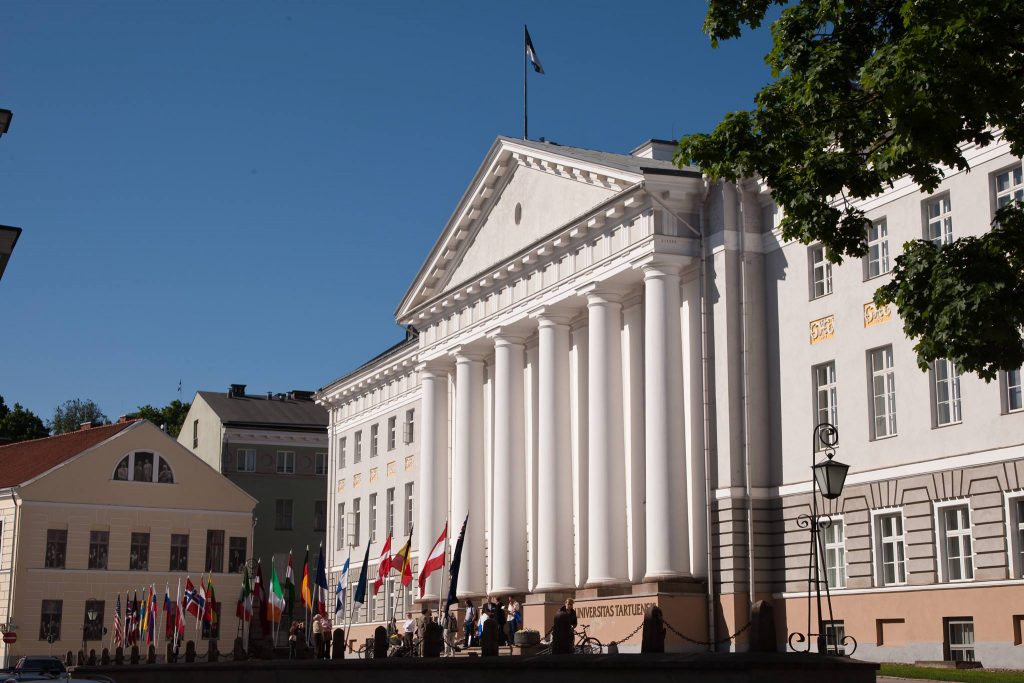 30 March 2020 – A woman infected with the coronavirus gives birth in EstoniaA woman infected with the novel coronavirus has given birth in Estonia at the Pelgulinna maternity hospital in Tallinn. The woman and the child are together at the hospital, but isolated from other patients. They're both in a good medical condition and under observation. The hospital is testing everyone who're coming in to give birth for the virus; the ones who test positive are isolated from other patients and the staff dealing with the infected patient does not come into contact with the healthy ones. 30 March 2020 – No departing or arriving flights at Tallinn AirportAccording to the real-time flight information, posted on the Tallinn Airport website, there are no departing or arriving flights in the foreseeable future. However, Lufthansa is continuing its Tallinn-Frankfurt service on three days a week: Tuesday, Thursday and Saturday. 29 March 2020 – Three people have now died of the coronavirus in EstoniaTwo more people have died of the novel coronavirus in Estonia – a 90-year-old man in Saaremaa and an 83-year-old man at the West Central Hospital in Tallinn. The first person died on 25 March: an 83-year-old woman from Hiiumaa island who was hospitalised at the West Tallinn Central Hospital on 20 March; the patient had a prior chronic cardiovascular problem. 29 March 2020 – The Estonian Defence League will assist the police in Saaremaa and Muhu islandsThe Estonian government decided that up to 40 members of the country's Defence League will assist the police to check the implementation of the strict restrictions in Saaremaa and Muhu islands. Due to the rapid spread of the virus in Saaremaa – the island is the hardest hit region in Estonia – the government has tightened local bans and restrictions of movement. People can go to the grocery store, the doctor and the pharmacy. It's only allowed to go to work if home working is impossible. Kids can be taken to and from the kindergarten. If need be, people can take care of those in need, provided they use protective gear. When moving outside, everyone must carry an ID, and follow the 2+2 rule – maximum party of two and two metres apart from other parties. The Estonian Defence League is a voluntary national defence organisation. Its main mission is to enhance the readiness of Estonia to defend its independence and its constitutional order, including in the event of military threat. The paramilitary organisation has over 15,000 active members.  29 March 2020 – Russia closes its borders tomorrow, Estonian residents temporarily in the country should return todayThe Russian Federation will close its borders from tomorrow 30 March. Therefore, the Estonian foreign ministry urges all Estonian citizens and residents who are temporarily staying in Russia to return to Estonia today. Starting from tomorrow, crossing the border from Russia may become very complicated. The decision of the Russian government applies to all border crossing points for vehicles, trains and pedestrians, including passing through the Narva (Estonia) – Ivangorod (Russia) border crossing point by foot. Starting from tomorrow, entry to and exit from Russia is allowed only in special cases. Exceptions include:
As of now, the Russian authorities have not clarified whether and on which grounds would Estonian citizens and residents be able to leave the country starting from 30 March. 29 March 2020 – Why the coronavirus crisis is a wicked problem and how to govern itBenjamin Klasche, a PhD candidate in government and politics at Tallinn University, writes that the coronavirus crisis is a wicked problem and we need to govern it as such. 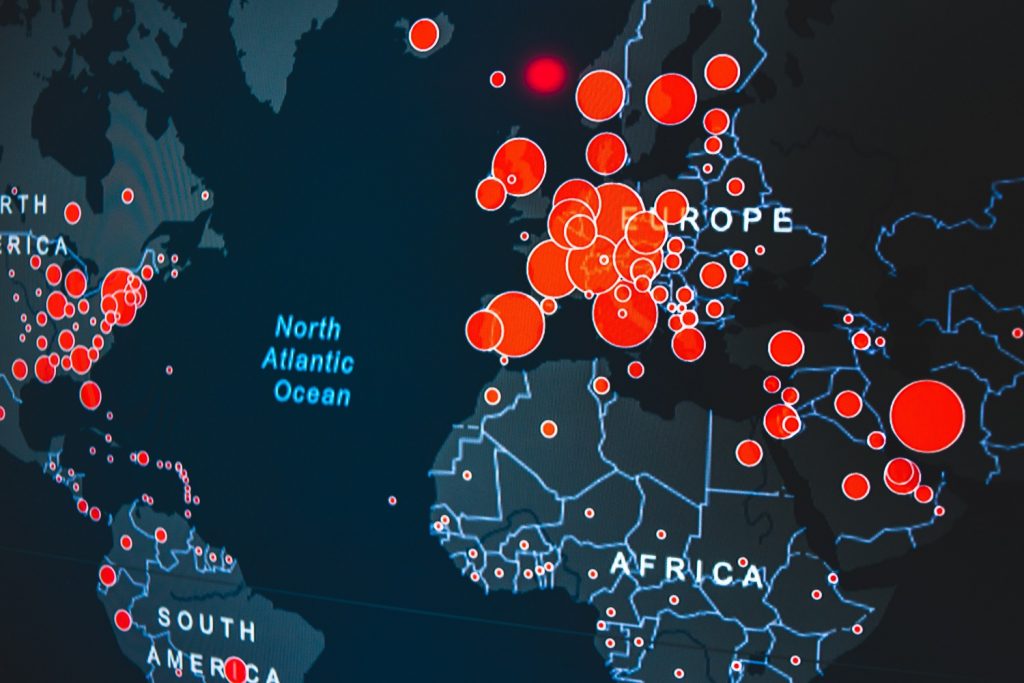 29 March 2020 – The Estonian interior minister downplays the coronavirus riskThe Estonian interior minister, the leader of the far-right, populist Conservative People's Party, is shown on this video, downplaying the risk of the novel coronavirus at the government's weekly press conference on 27 February, much like many of the populist leaders have done elsewhere in the world (some still doing it, most notably the US president, Donald Trump, and the president of Brazil, Jair Bolsanaro). Here's the translation: "I'm calling for a very responsible discussion concerning this so-called coronavirus. I just ran across the courtyard here and thought to myself that a common cold has now been renamed coronavirus. Because, really, the symptoms are very similar to what in my youth no one would have diagnosed a corona or any other virus; it was a cold. Warm socks, goose fat on the chest, mustard plasters, all other such nice stuff, and it went away in a few days, a week. There was no coronavirus." 28 March 2020 – Stricter restrictions in Saaremaa and MuhumaaThe Estonian prime minister, Jüri Ratas, signed an order today that forces most stores and service providers in Saaremaa and Muhumaa to close and imposes stricter restrictions on people's movement. Only grocery stores, pharmacies, telecom sales points, banks, parcel lockers, post offices, and medical and optical supply stores will remain open. Building supply stores can only remain open for curbside pickup and storage sales, the main shopping area must be closed. Also gardening stores will remain open. All other stores and markets will be closed. All dine-in restaurants will also be closed, take-away and delivery will be operational. All plastic surgery, beauty services (barbers and hairdressers, manicure, pedicure, beauticians, tattoo parlours and tanning salons), massage parlours and rehabilitation services will have to close. The order also shuts down all libraries. The islands' inhabitants will be forced to stay home. People can go to the grocery store, the doctor and the pharmacy. It's only allowed to go to work if home working is impossible. Kids can be taken to and from the kindergarten. If need be, people can take care of those in need, provided they use protective gear. When moving outside, everyone must carry an ID, and follow the 2+2 rule – maximum party of two and two metres apart from other parties. 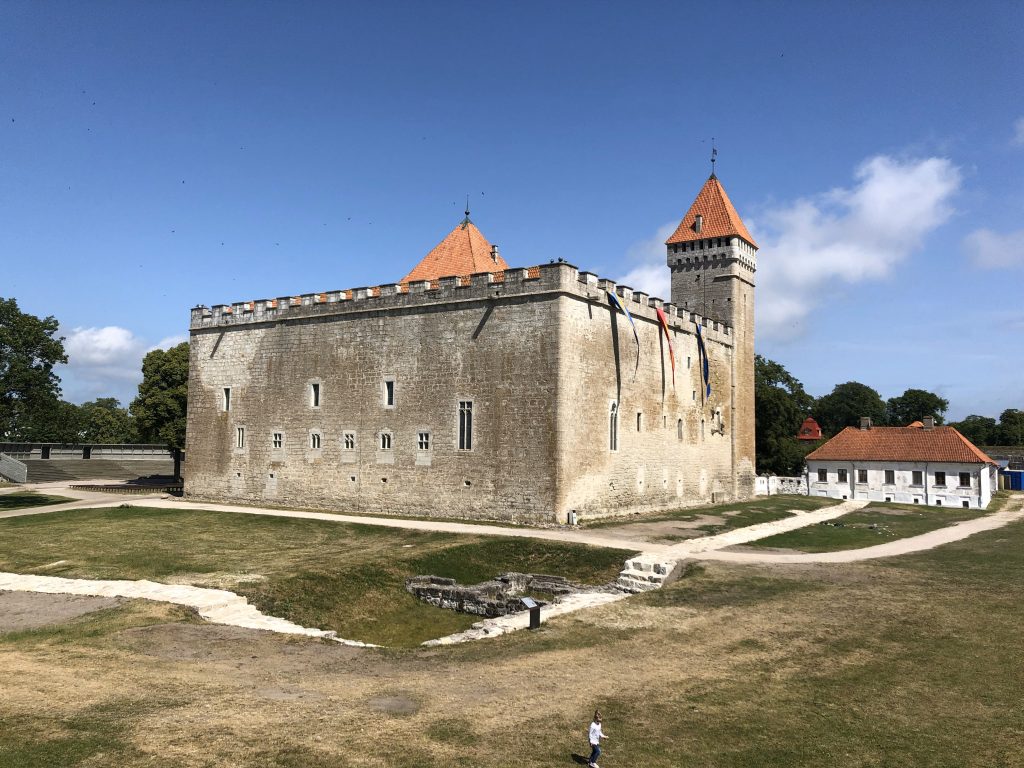 28 March 2020 – In Kuressaare, eight out of ten ER patients positive with the coronavirusIn Kuressaare, the largest town in the island of Saaremaa, eight out of ten people who are seeking help at the emergency room are testing positive for the novel coronavirus, the Estonian government's chief of emergency medicine, dr Arkadi Popov, told the public broadcasting's evening news. According to Popov, this means the contagion in the island is seriously broad. He promised not to leave the doctors in Kuressaare alone and support them with transport and hospital beds. 28 March 2020 – Over 2,000 people have died in the US, double from ThursdayOver 2,000 people have died from the novel coronavirus in the United States as of 7:45 PM EST today. This is double from the 1,000 deaths only two days ago, on Thursday. Altogether, 117,688 people in the US have been infected with the virus. 28 March 2020 – Estonia activates Article 15 of the European Human Rights ConventionEstonia, along with some Eastern European countries, has activated Article 15 of the European Human Rights Convention that says, "In time of war or other public emergency threatening the life of the nation any High Contracting Party may take measures derogating from its obligations under [the] Convention to the extent strictly required by the exigencies of the situation, provided that such measures are not inconsistent with its other obligations under international law." This means that when a member state of the European Council informs the council's secretary general of activating the article, the state has the right to partially limit the freedoms of religion, speech and others. This has drawn criticism from others. The Estonian MEP, Urmas Paet, says the activation of the article is surprising because Estonia doesn't have a reason to take such unproportioned steps. "The second clause of Article 11 says that people's right to gather can be limited when it's necessary to protect the people's health in a democratic society," Paet says. "Therefore, for Estonia to reason the activation of Article 15 by saying that it needs to restrict the freedom of gathering is not applicable, because the convention has a separate clause for the protection of people's health. Activating Article 15 is only necessary when a member state plans to take steps that the convention does not cover." 28 March 2020 – Chicago sends positive messages on windows and sidewalksEven when the people of Chicago are forced to stay home, the Midwestern nice hasn't gone anywhere. If people can't go out and spread the joy, they come up with new ways to at least try and cheer others up in these unprecedented times. In Chicago, people are hanging motivational or just positive messages on their windows for their neighbours to see. Children have also written messages with crayons on the sidewalks. Photos by Ingrid Hankewitz. 28 March 2020 – Saaremaa nursing home isolated, 25 new infectionsA nursing home in the island of Saaremaa, Südamekodu (The Home of the Heart), has been isolated as the health authorities found out 22 of its residents and three employees have been infected with the novel coronavirus. On Thursday, two residents at the nursing home were tested positive, bringing the total to 27. The home has 40 residents, meaning over half of them have been infected with the virus. The residents who tested negative have been secluded. 28 March 2020 – A new test could give results within minutesA new coronavirus test, developed by Abbott Laboratories, a health-care company from Lake Bluff, Illinois, has announced it is launching a new molecular coronavirus test that can produce results in as little as five minutes if positive and 13 minutes if negative, which is the fastest turnaround time available so far. According to the company's press release, the test runs on a lightweight and a portable device, designed to be used where testing is most needed – like drive-through screening site or airports. The company is "ramping up production to deliver 50,000" new tests per day, beginning next week. The company has received the emergency use authorisation from the US Food and Drug administration.  28 March 2020 – Coronavirus crisis hotline 1247 now offers psychological first aidThe crisis hotline 1247 of the Estonian Emergency Response Centre now offers psychological first aid. "We know long-term stress can have devastating effect on our mental health. It is very important to offer people support and guidance on how to look after their mental health and the mental health of others during the ongoing emergency situation," a representative of the state-run hotline said, adding that anyone who is in doubt whether to call or not should most definitely make the call and speak to a specialist. "We also welcome calls from people who are concerned about their loved ones and want to discuss how to provide them with better emotional support. In particular, we wish to be there for the first responders, who have to cope with a high workload and being away from their loved ones on a daily basis," the representative added. Since the hotline was set up on 13 March, almost 18,000 people have used its service, which is free of charge. The advice is provided in Estonian, Russian and English. 27 March 2020 – Estonians making more effort to stop the virusThe Estonian people have started to make more effort to stop the spread of the coronavirus and only 4% of people do not see any serious reason to stay at home, the Estonian market research company, Turu-uuringute AS, found. According to an estimate of 50% of the Estonian population, they have started to make more effort compared with the first week of the emergency. Seven per cent of the population remains in complete isolation, 59% stays at home and leaves only in exceptional cases, 31% still goes out a lot but attempts to avoid more populated places.  27 March 2020 – PM: We have to be OUR, not MY societyThe Estonian prime minister, Jüri Ratas, has said in a video address that this coming weekend and the weeks ahead of us are decisive to curb the contagion of the novel coronavirus. "For that, we only have one formula: we have to adhere to the rules," Ratas said. "The most important ones are: let's stick to our hygiene; stay at home and only go out when necessary; outside the home, let's move alone or with one other person and with the rest, let's keep a distance of two metres; if we get sick, we call our GPs and adhere to their advice. In this situation, we have to be OUR, not MY society. Otherwise, our lives won't get easier for a long time, but we'll have to settle for even stricter restrictions." 27 March 2020 – The US has over 100,000 coronavirus infectionsThe United States has become the first country in the world that has over 100,000 novel coronavirus infections. The first confirmed case in the country was recorded two months ago. On 19 March, the country passed 10,000 cases and yesterday, it became the country with the most confirmed cases in the world. Almost 1,600 people have succumbed to the disease in the US. The worst-hit state is New York with 44,876 confirmed cases and 527 deaths. 27 March 2020 – Estonia borrows €750 millionThe Nordic Investment Bank is loaning Estonia €750 million, which the country plans to use to alleviate the effects of the coronavirus crisis. The country plans to use the loan to finance the health-care system and civic defence; to help people who have been forced on a non-paid vacation or home quarantine: to help the businesses that are most affected by the crisis, like small and medium-sized companies, tourism, transport; to help reimburse the companies who lose money due to the restrictions imposed by the government, like gyms, theatres, museums and others. The loan will have to be repaid by 2035. 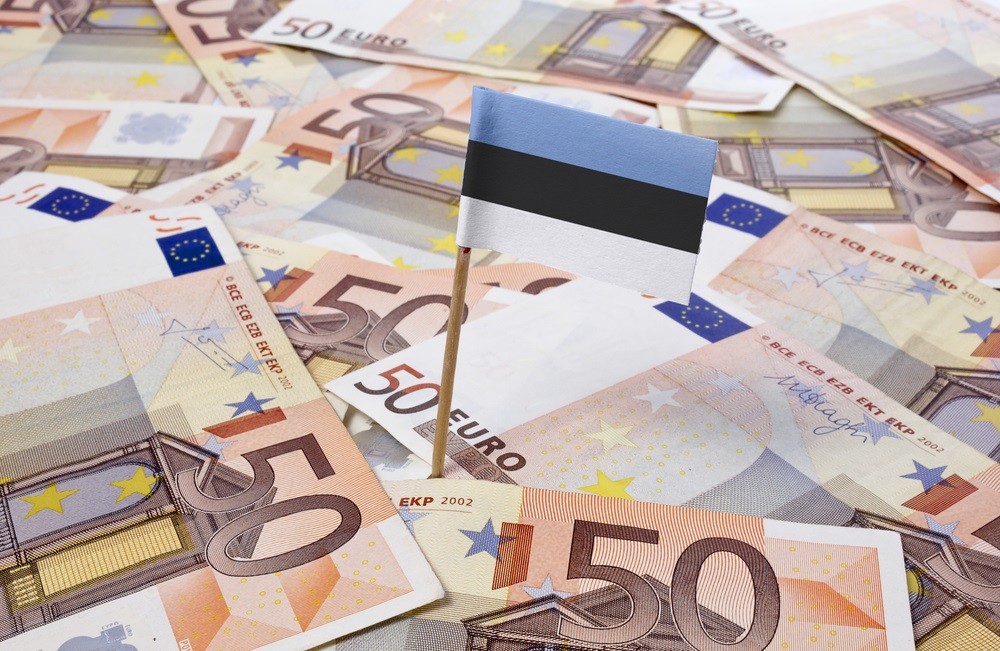 27 March 2020 – A confirmed coronavirus patient goes shopping in RakvereA person with a confirmed case of the coronavirus was seen shopping at a large grocery store in the town of Rakvere in Lääne-Viru County. The lady was recognised by other people from Viru-Nigula Parish where she lives, and they reported the incident to the parish government social affairs manager. According to the lady's family doctor, she hadn't been given a clean bill of health, thus she shouldn't have left her home at all, the local newspaper, Virumaa Teataja, reported. 27 March 2020 – EIU: the pandemic is to send almost all G20 countries into recessionThe Economist Intelligence Unit is predicting that the global coronavirus crisis will send all but three G20 countries into recession; the global economy will contract by 2.2%. Only China, India and Indonesia will show some growth in this fiscal year; however, China's growth is now predicted to be 1%, compared with the initial forecast of 5.9. "The eurozone will be one of the hardest hit regions, posting a full-year recession of 5.9%," the EIU says. "Germany (-6.8%), France (-5%), and Italy (-7%) will register full-year recessions. In Germany, the huge manufacturing sector is highly export-oriented, which means that the country is particularly exposed to both supply chain disruption and weak global demand. As a result, the recovery that we are expecting in other eurozone countries in the second half of 2020 will materialise much more slowly in Germany." 27 March 2020 – Germany considers mass testingTo fight the coronavirus crisis, Germany is considering mass testing of its population. The plan is to test the people who suspect they have the coronavirus "as well as the entire circle of contacts of confirmed cases", a German government strategy paper says. Experts say testing capacity should be increased very quickly, with the aim to carry out 100,000 tests a day from 13 April, and 200,000 a day at the end of April. It is estimated that currently, around 500,000 tests are done per week. As of today, Germany had over 45,000 confirmed coronavirus cases and 276 deaths. 27 March 2020 – A shrimp vendor at Wuhan market likely patient zeroA shrimp vendor at Huanan market in the Chinese city of Wuhan has been identified as one of the first victims of the coronavirus; the 57-year-old woman by the name of Wei Guixian, is the possible patient zero of the global pandemic, the Wall Street Journal reported. She was working on 10 December when she developed what she thought were the symptoms of a cold. She walked to a local clinic and went back to work, likely spreading the virus to others. 27 March 2020 – Thirty Estonian medics have diagnosed positiveAccording to the Estonian Health Board, 30 medics in the country have tested positive for the novel coronavirus, the news portal, Delfi, reports. In legal terms, people who qualify as medics are doctors, dentists, nurses, midwives and pharmacists. 27 March 2020 – Estonian lab helps Finland analyse its testsThe Estonian laboratory, Synlab, is helping Finland, according to its capacity, to analyse the country's coronavirus test kits; the lab's priority remains Estonia. According to the Estonian newspaper, Postimees, the Synlab laboratory has routinely performed around three million analyses a year for its Finnish customers. "We have many long-time partners in Finland, of course we're, according to our abilities, trying to fulfil their expectations by testing coronavirus kits. Right now, we're testing the Finnish customers' kits in a considerably lower capacity than the Estonian ones. Our priority in fulfilling the Estonian order in full," the lab told the newspaper. 27 March 2020 – Estonia orders protective gear from China for €10 millionThe Estonian minister of public administration, Jaak Aab, has signed a contract with a Chinese company to purchase protective masks, gloves, goggles, suits and other protective gear, the contract is worth €10 million. The purchase includes the needs of hospitals, nursing homes, the fire department, the police department and other authorities. The country ordered 7.6 million protective masks, plus other gear, and it should be ready for delivery in 10-20 days. 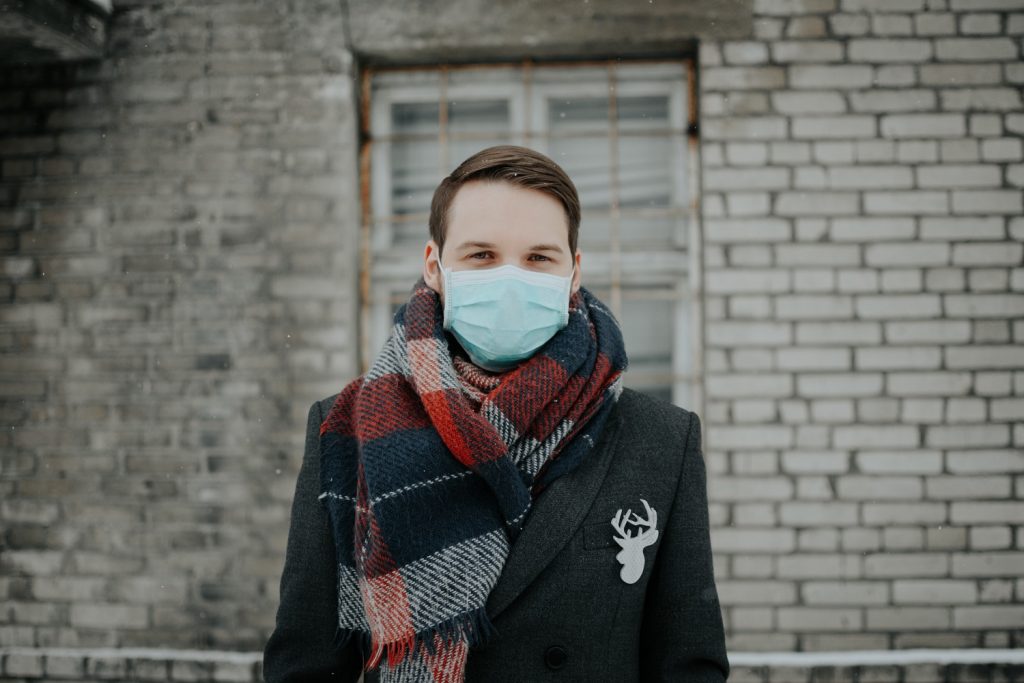 27 March 2020 – Boris Johnson tests positiveThe British prime minister, Boris Johnson, has tested positive for the novel coronavirus. The 55-year-old tweeted, "Over the last 24 hours I have developed mild symptoms and tested positive for coronavirus. I am now self-isolating, but I will continue to lead the government's response via video-conference as we fight this virus. Together we will beat this. #StayHomeSaveLives." 27 March 2020 – Russia is using the crisis for its own benefitRussia seems to have started a disinformation campaign to use the coronavirus pandemic for its own benefit – to incite unrest in the West by spreading fake news and misinformation. According to Deutsche Welle, the Russian propaganda network, Sputnik, has claimed "very smart biologists and pharmacists" in Estonia's southern neighbour, Latvia, invented the new coronavirus. Some sources close to the Kremlin say it was made in the British military facilities. Russia observers from the European Commission have so far analysed 80 different reports containing false or misleading information about coronavirus published by official Russian state media sites as well as platforms and authors with close ties to the Kremlin. And accusing Latvian scientists of having invented the coronavirus naturally pissed off the country's foreign minister, Edgars Rinkēvičs, who tweeted, "We need to fight and eliminate two diseases simultaneously – #COVID2019 pandemic and disinformation virus because both are dangerous to the people." 26 March 2020 – PM: The infected people must stay homeThe Estonian prime minister, Jüri Ratas, has issued an official order to limit the freedom of movement of the people who have been diagnosed with the coronavirus and also the people who live in the same household. According to the order, the infected person must stay home until they've recovered. The infected is banned from leaving their home or a permanent place of stay from the moment they've been diagnosed. They may leave their abodes only at the order of a medical professional or police, or if their life or health are in danger. The members of the household of those infected, if they don't have any coronavirus symptoms, may leave their homes, carrying an ID, only in the following instances: going to work if they're a medical worker or other official related to the emergency situation; getting everyday essential goods near their homes, unless they can arrange them otherwise; if they haven't had any contact with the infected whatsoever; to go outside. If they go out, they must adhere to the 2+2 rule – no more than two people together in a public place and keeping a distance of two metres with other parties. Compliance with the requirements is controlled by the police that will also exchange information with the Health Board for this purpose. If a person does not comply with the requirements, the police will issue a warning. If that does not work, the next sanction would be a fine of up to €2,000. 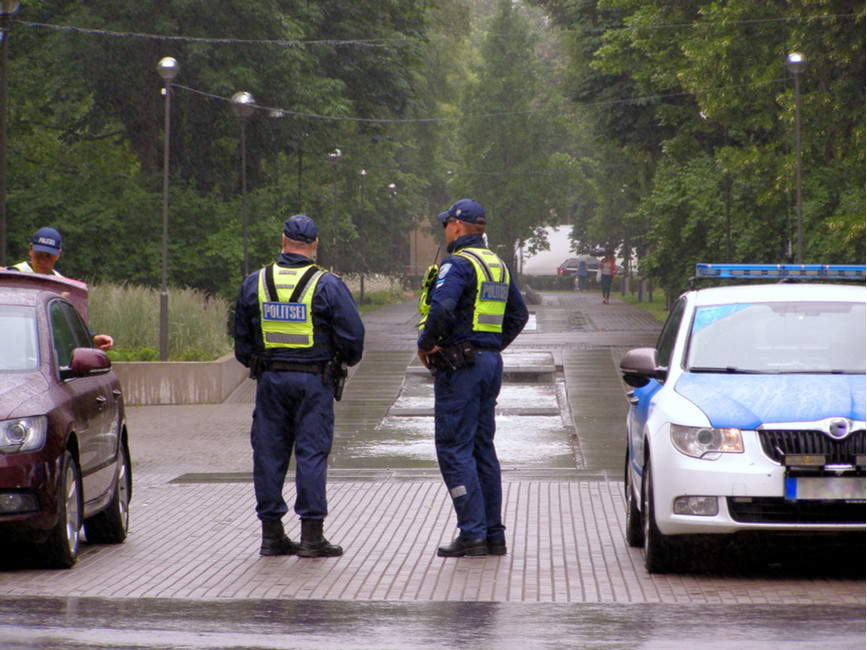 26 March 2020 – The Health Board stops all planned health care at private hospitals and dental clinicsThe Estonian Health Board is stopping all planned health care outside of the state's hospital network to help contain the spread of the coronavirus. Going forward, private hospitals and dental clinics are only allowed to provide emergency services. The Health Board may draft the help of the doctors and nurses who work in private practice, should the pressure on the state's health-care system and the need for additional personnel grow. 26 March 2020 – PM warns: if you don't follow the rules, there will be quarantineThe Estonian prime minister, Jüri Ratas, has called upon everyone to follow the rules and only appear in the public alone or with one other person and keep a distance of two metres with others. He delivered a warning that if people don't follow the rules, the government may impose an absolute quarantine to curb the spread of the coronavirus. "This is a mutual effort and if the rules are not followed, the next moment we may have an absolute quarantine. Every one of us must feel the responsibility," he said. The prime minister added that an absolute quarantine will also mean shutting down public transit. 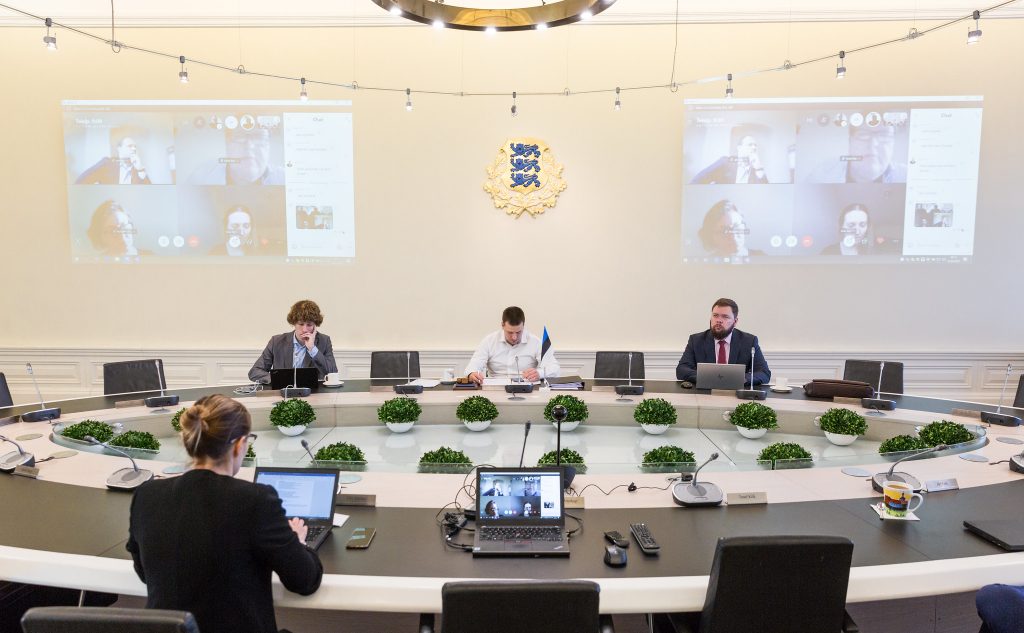 26 March 2020 – Update from the US, where there are now more cases than anywhere elseHere's today's update from the deputy editor-in-chief of Estonian World, Chicago-based Sten Hankewitz: "The US today hit a grim milestone with more coronavirus cases than any other country. With 82,404 people infected, we today passed China, which is remarkable as the US only has around 330 million residents, compared with 1.4 billion in China. Altogether 1,178 people have died in America, almost a third of them – 385 – in New York, the hardest-hit state in the country. "In my neck of the woods, the mayor of Chicago, Lori Lightfoot today did what she yesterday promised – closed the lakefront of Lake Michigan, all adjacent parks and beaches and a 2.7-mile biking and hiking trail, known as the 606, to prevent Chicagoans from defying a statewide stay-at-home order aimed at slowing the spread of the coronavirus. Yesterday she said she'd only do this as a last resort, but evidently people still weren't listening and socially distancing by today. 'Dear God, stay home. Save lives,' Lightfoot said today. 'Folks, we can't mess around with this one second longer. … If you don't stay home … we will be headed for a situation like what we are seeing play out in New York.' In Illinois, 2,538 people have contracted the novel coronavirus and 26 have died."  26 March 2020 – A borderless Europe not the reality anymoreFor the first time since the Schengen Area – comprising 26 European states that have officially abolished all passport and all other types of border control at their mutual borders – was established in 1995, making a borderless Europe a reality (except for few European countries, such as the UK, that didn't join the border control-free travel area), the continent is back to square one. Frontex, the European Border and Coast Guard Agency, published this map, showing the restrictions put in place throughout the EU, the Schengen Area and the UK. Nearly every country in Europe has closed or restricted its borders. 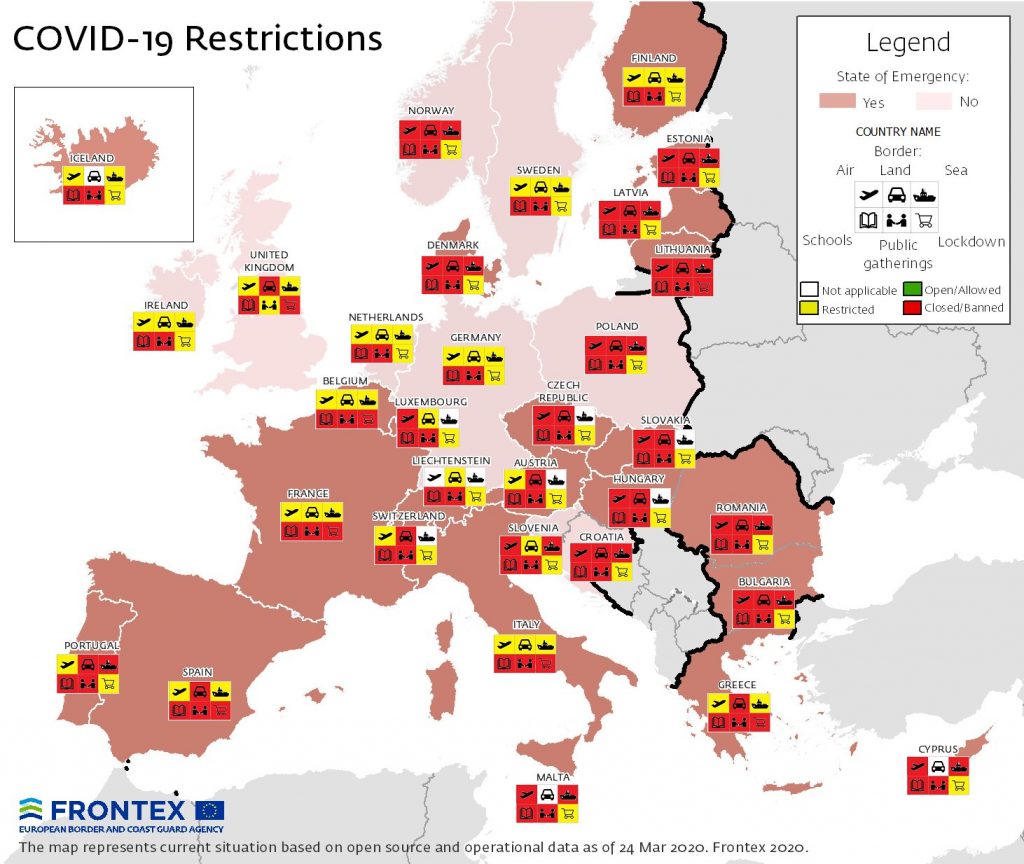 26 March 2020 – VIDEO: The Cello Octet Amsterdam performs Arvo Pärt in self-isolationWith nearly half the world's population under some form of restriction as governments across the globe are trying to curb the spread of the coronavirus, most orchestras and ensembles have also been forced to cancel their public performances. The Dutch ensemble, the Cello Octet Amsterdam, is complying with the rules in their homeland (the Netherlands is also badly affected, with over 6,000 infected and over 350 dead due to the virus), but that hasn't stopped them from performing live – they now do it online instead. Here, they perform "Da Pacem Domine", composed and arranged by the Estonian maestro, Arvo Pärt. 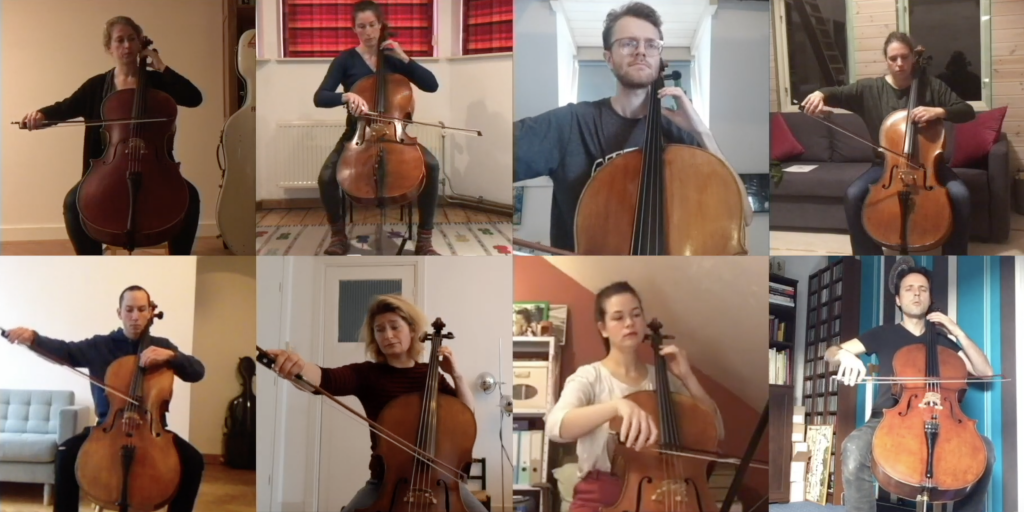 26 March 2020 – Models: if people don't stay home, the epidemic will exceed the hospitals' capacityThe Estonian newspaper, Eesti Päevaleht, reports that Estonia has compiled many models on the potential course of the novel coronavirus. Some models predict what happens if the state does not impose special restrictions and measures, and some if it does. The newspaper says all these models have concluded that if the Estonian people don't stay home, the growth of the epidemic will not slow down and the number of patients requiring intensive care will soon exceed the hospitals' capacity. 26 March 2020 – Is everything going to be okay?Seth Godin, an American author and a former business executive, has in his blog addressed the question millions of people across the world are asking right now. His answer: "That depends. If we mean, 'Is everything going to be the way it was and the way I expected it to be?' then the answer is no. The answer to that question is always no, it always has been. If we mean, 'Is everything going to be the way it is going to be?' then the answer is yes. Of course. If we define whatever happens as okay, then everything will be. Given that everything is going to be the way it's going to be, we're left with an actually useful and productive question instead: 'What are you going to do about it?'" 26 March 2020 – New coronavirus symptomsHealth experts and doctors have identified new symptoms that some people who have been infected with the novel coronavirus may experience. Initial primary symptoms still remain fever, cough and shortness of breath, but secondary symptoms may include "an altered taste or smell, and a lot of the patients had dizziness, headaches, muscle inflammation and even altered mental status and seizures", Dr Rodrigo Hasbun, a professor of medicine and infectious disease at University of Texas Health has told the Houston TV channel, FOX 26. Just because new symptoms associated with the coronavirus have been discovered, doesn't mean the virus is mutating. 26 March 2020 – A company is looking to make Estonia the frontrunner in telemedicineViveo Health is looking to make Estonia the frontrunner in telemedicine – the distribution of health-related services and information via telecommunication technologies – while protecting people from the coronavirus (this is paid content).  26 March 2020 – US coronavirus deaths hit 1,000The novel coronavirus has killed over a thousand people in the United States and the toll keeps increasing at an alarming rate. Americans have died in 42 states and territories, and Washington, DC. Around 65% of the dead whose ages are known were older than 70 and nearly 40% older than 80, the Washington Post reports. About 5% of the people whose ages are known were in their 40s or younger; many more people in that age group have been ill enough to be hospitalised. Of the virus victims whose gender is known, almost 60% were men. The hardest-hit state in the union remains to be New York. A hundred people in NYS died in the past 24 hours; altogether 385 people have succumbed to the virus in the state and 37,258 infected. In New York City, over 21,000 people have been confirmed infected, 281 people have died. The worst of the contagion still expected to be at least two to three weeks out. 26 March 2020 – Almost 12,000 people have died in EuropeAccording to the World Health Organisation, its European region has reported over 220,000 coronavirus cases and 11,987 deaths. "This means that globally, roughly six out of every 10 cases, and seven out of every 10 deaths are reported from our region. As we speak, the global number of cases across the world has surpassed the 400,000 mark," Dr Hans Kluge, the regional director for Europe at the WHO, said. "While the situation remains very serious, we are starting to see some encouraging signs. Italy, which has the highest number of cases in the region, has just seen a slightly lower rate of increase, although it is still too early to say that the pandemic is peaking in that country. Soon we will be able to determine the degree to which the measures put in place in many countries are having an impact," Kluge added.  26 March 2020 – WHO: physical and mental health are key to resilienceDr Hans Kluge, the regional director for Europe at the World Health Organisation, says that during the coronavirus pandemic, when physical distancing and isolation measures are challenging to us, our mental health and psychological wellbeing are very important. "In this situation, we need to remain optimistic, and physically and mentally healthy, as this will be key to our psychological resilience in overcoming this challenge united," Kluge said. "It is essential that we address the public mental health challenges over the coming weeks and months in Europe and beyond:
26 March 2020 – Booze producer sells 80% vodka nine times more than usualThe Estonian alcohol producer, Liviko, has in March sold its 80% vodka nine times more than usual as stores have run out of hand sanitiser and people are turning to strong alcohol to disinfect their hands. At the same time, the company hasn't so far considered making its own hand sanitiser or other disinfectants, the Estonian Public Broadcasting reports. Scientists say that if people need to use alcohol instead of hand sanitiser, the booze needs to be at least 70% alcohol for it to work. Anything lighter won't kill the germs.  26 March 2020 – An initiative helps students get a computer for studying during the crisisA citizens' initiative in Estonia is helping students in need get a computer for remote studying during the ongoing coronavirus crisis. The voluntary project, "A computer for every student", connects families who need a computer for remote learning, and those who have unutilised devices at home or in the office. In less than two weeks, around 500 computers have been traded.  26 March 2020 – Estonian-initiated hackathons to tackle the coronavirus crisisThe Estonian startup organisation, Garage48, together with Accelerate Estonia, held an online hackathon to tackle the coronavirus crisis; the organisations are willing to share their experience with other countries looking to organise similar online hackathons. 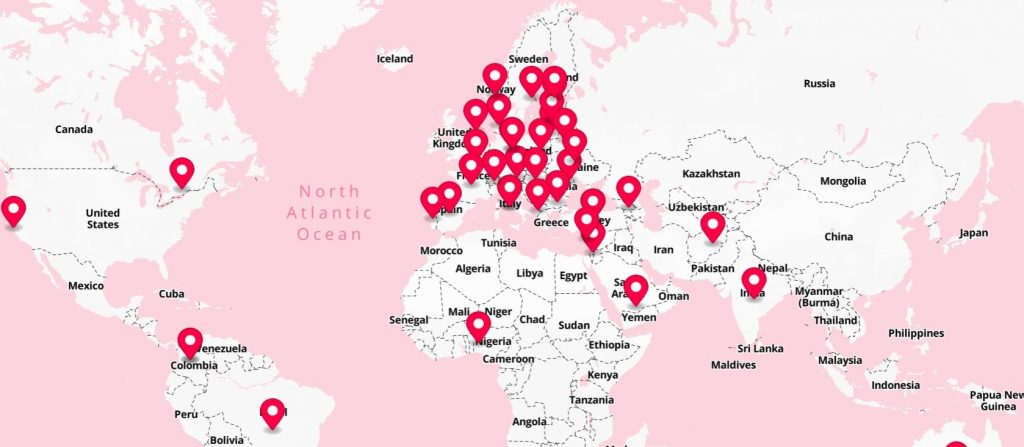 26 March 2020 – Over three million Americans have lost their jobsOver three million Americans have lost their jobs in the past week and have filed for unemployment; this is the most ever in a week. In the 50 years the government has tracked unemployment applications, the worst week ever so far was one in October 1982 when 695,000 people filed for unemployment. 26 March 2020 – Louisiana: fastest growth of coronavirus cases in the worldThe US state of Louisiana – the home of the Mardi Gras capital of the world, New Orleans – is facing the fastest growth of new coronavirus cases in the world. The state's governor, John Bel Edwards, said the current trajectory of case growth was similar to those in Spain and Italy. New Orleans itself has reported 827 cases, that is more than the total number of cases in all but 15 states. The county New Orleans shares borders with – Orleans Parish – has had the highest number of deaths per capita than any other county. In the parish, 37 people have died, that's almost three times of the death toll in Los Angeles County. Medical experts suspect the crisis may have been accelerated by Mardi Gras, the citywide celebration that this year culminated on 25 February. "The greatest free party in the world was a perfect incubator at the perfect time," Dr F. Brobson Lutz Jr told the New York Times.  26 March 2020 – How to operate building services to prevent the spread of the coronavirusThe Federation of European Heating, Ventilation and Air Conditioning Associations, REHVA, has published a guidance on the operation and the use of building services in areas with a coronavirus disease (COVID-19) outbreak. 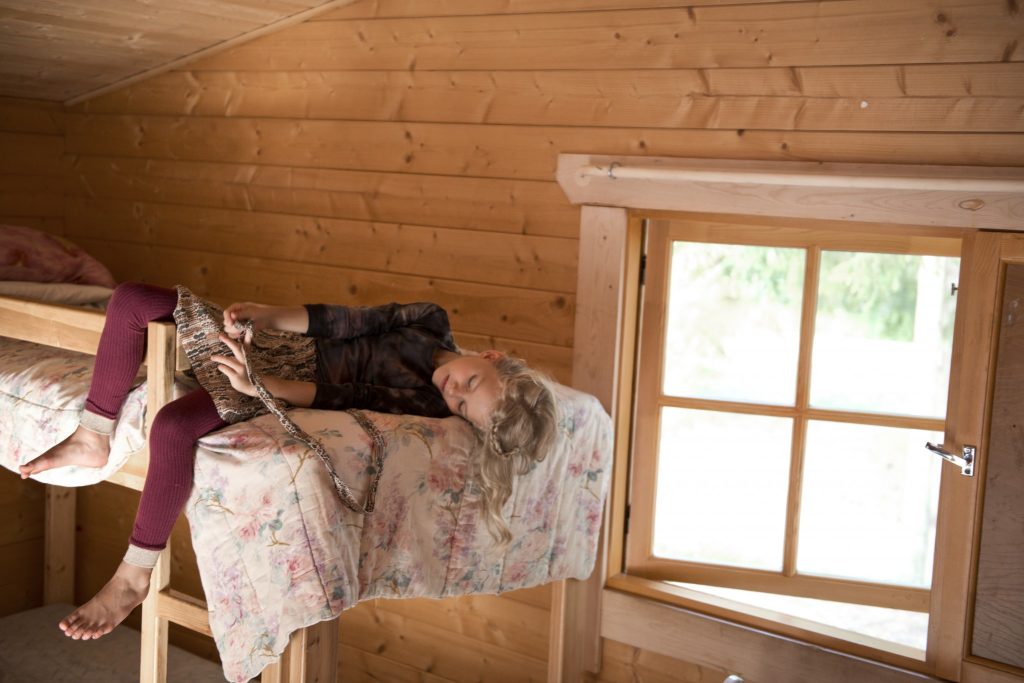 26 March 2020 – Statistics Estonia plans mobility analysisThe official statistics agency of Estonia has got a green light from the government to start analysing people's movements around the country before and after the crisis – to study how the society has adopted the measures introduced during the emergency situation. The agency will use anonymous data from electronic communications, provided the telecommunication companies give their consent (they are likely to do so). The agency claimed the data processing will only take place "in the secure environment of Statistics Estonia" and "will be deleted" after processing. "The client data of telecommunication companies continue to be protected according to the data protection rules in force in Estonia," the agency said in a statement. 25 March 2020 – President Kersti Kaljulaid: It's a time for caringFollowing the news that the coronavirus has claimed its first victim in Estonia, the country's president issued a statement; Estonian World publishes it in full, in a lightly edited version. 25 March 2020 – First death in EstoniaThe first person has died of the novel coronavirus in Estonia: an 83-year-old woman from Hiiumaa island who was hospitalised at the West Tallinn Central Hospital on 20 March; the patient had a previous chronic cardiovascular problem. 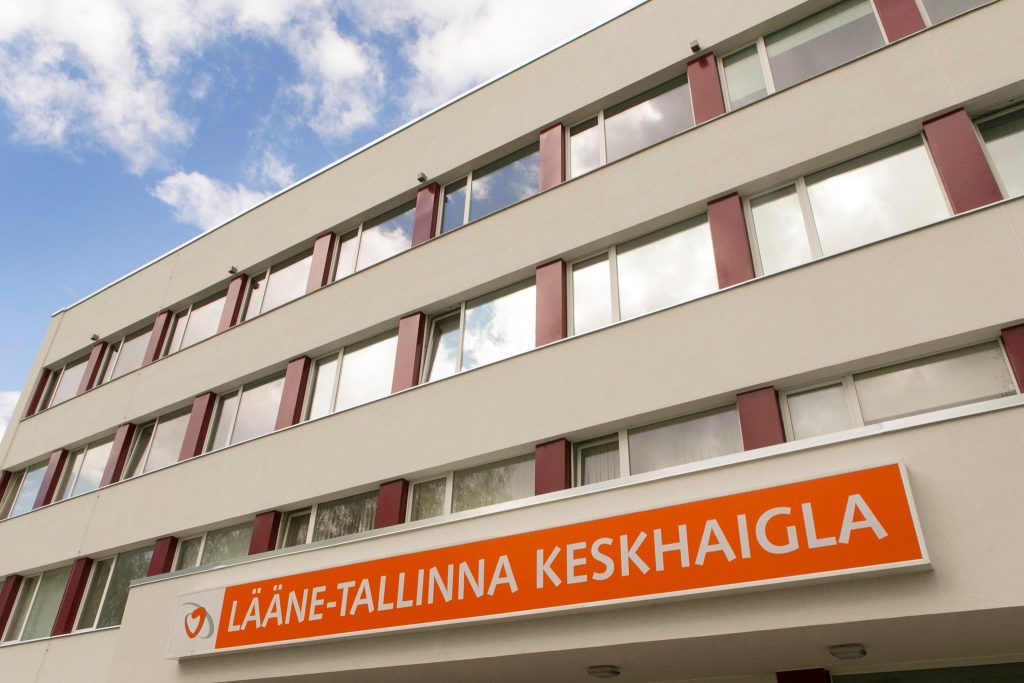 25 March 2020 – People behave irrationally everywhereThe deputy editor-in-chief of Estonian World, Sten Hankewitz, is reporting from Chicago: "After having read today that in Tartu, Estonia, people thought it would be a good idea to gather en masse at a sports goods store to take advantage of a sale (and who's dumb or inconsiderate enough to arrange such an event these days!?), I'm sad to report that people behave in irrational ways also in Chicago. "Evidently, even though we're under stay-at-home orders and can only go for walks around our house, to the grocery store or to get medical care, many people are still flocking the city's parks and the shore of Lake Michigan. This prompted our mayor, Lori Lightfoot, to threaten to shut down the city's parks and the lakefront. She said she'd only use it as a last resort, but if people continue to not listen, this last resort may become reality very soon. And Chicago's interim police superintendent, Charlie Beck, said his officers will start issuing fines to people who don't comply with the stay-at-home orders, and arrest repeat offenders. "Elsewhere in the United States, disturbing reports are coming from Atlanta, the capital and the largest city of Georgia, where hospitals' intensive care units are already at full capacity – even though the state so far has 1,100 people confirmed infected with the coronavirus, and just 361 people have been hospitalised with it. "New York continues to be the hotbed of the coronavirus infections in the US. The state has 30,611 people infected and nearly 300 dead, with over 3,000 new cases emerging in the past 24 hours. New York City has 17,000 cases and 199 people have died from the disease. At one hospital in Queens, NYC, 13 people died from the virus in one day, prompting a doctor call it "apocalyptic". Other city hospitals are starting to struggle, too, and all of the over 1,800 intensive care units in the city are expected to be full by Friday. Patients could stay in ICUs for weeks, limiting space for the newly sick." 25 March 2020 – Finland is sealing off Uusimaa CountyThe Finnish government has decided to seal off Uusimaa County – where the Finnish capital, Helsinki, is located in (basically, the equivalent of Estonia's Harju County) – from the rest of the country until 19 April to contain the spread of the novel coronavirus. The restriction will come to effect on 27 March. According to the Finnish government, the lockdown means no one is to leave Uusimaa County and no one is to enter it. The exceptions include essential travel, for example, to guarantee a parent's right to see their child, go to work, or in official capacity. Travelling to one's summer cottage does not qualify as essential. The Uusimaa County limits will be guarded by the police. People who need to travel will have to either orally or in writing inform the police of their reason for travelling. People who don't abide the restrictions will be fined. The army will likely ask help from the Finnish Defence Forces to enforce the travel ban. The Finnish government is enacting the travel ban as around 65% of the coronavirus infections have occurred in the capital area and the surrounding Uusimaa County. 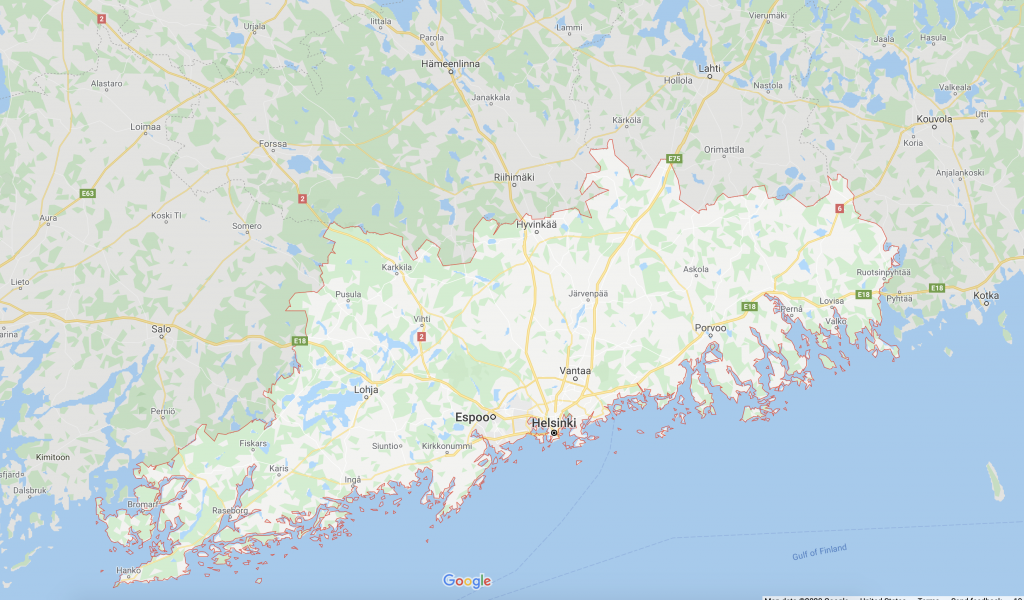 25 March 2020 – Half the world's population under restrictionsNearly half the world's population is under some form of restriction as governments across the globe are trying to curb the spread of the coronavirus. At least three billion people in 41 countries have some kind of restrictions – like being urged to work from home, Sky News says. One and a half billion people are under stringent lockdown. As of today, 464,000 people around the world have been infected with the novel coronavirus, over 21,000 have died and almost 114,000 have recovered. 25 March 2020 – People storm a sports goods sale amid stay at home ordersMany people stormed a sports goods sale in Tartu today, even though everyone's been told to stay at home, keep a two-metre distance from everyone and that gatherings of more than two people are banned. According to the Estonian newspaper, Postimees, many people were unreasonably close to each other, wandering between the aisles of a Sportland store in one of Tartu's shopping centres. The managing director of Sportland, Gerd Kiili, admitted to the newspaper that the incident happened, but the store put an end to it quickly. The manager of the store had ordered the security gates closed and sale posters removed. Kiili claimed the sale was only going on online; however, the store's Facebook post had said, "in store and online".  25 March 2020 – Coronavirus reminds us the plagues of the pastAlex Wellman, a Tallinn-based American expat, leading the marketing and communications team at the Estonia's e-residency programme, cited The Decameron in his Facebook post: "To have compassion for those who suffer is a human quality which everyone should possess, especially those who have required comfort themselves in the past and have managed to find it in others." "This is a quote from the 14th-century book The Decameron that contains 100 stories told by 10 people hiding in a country villa to escape the Black Death, and relevant for our time as well," Wellman said. The Black Death was the most devastating pandemic recorded in human history, resulting in the deaths of an estimated 75 to 200 million people in Eurasia, peaking in Europe from 1347 to 1351. 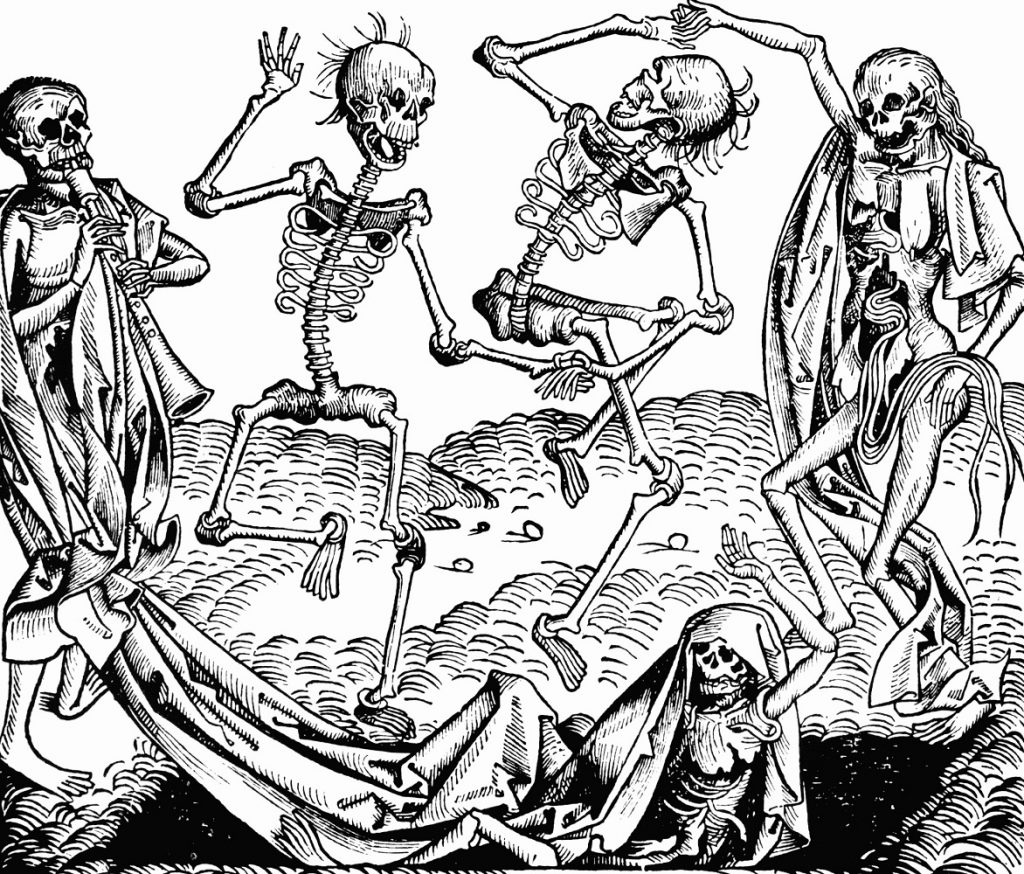 25 March 2020 – The government allocates €220 million for emergency health-care costsThe Estonian government will provide the Estonian Health Insurance Fund with at least €200 million over three months to cover the extraordinary costs of the coronavirus. In addition, over €20 million has already been earmarked for the purchase of personal protective equipment, respirators and coronavirus testing capabilities. More than €7 million is channelled to cover the first three days of sick leave. The largest part of the extraordinary expenditure in the health-care system is the need for additional hospital and specialist medical care funding to the extent of €150 million over the next three months. It will also compensate for the additional costs of the coronavirus, both in primary care and in emergency medical care, and additional money will be channelled into expanding the nation's stock of medicines in connection with a possible surge in hospitalisation. 25 March 2020 – FM: Important travel updates regarding transit and flight optionsThe Estonian foreign ministry has published important travel updates regarding transit and flight options for people eager to get back to Estonia from abroad. The ministry and Estonian foreign representations continue to work with travel agents and transport companies to find and mediate options for Estonians to return home. While the Estonian border remains open to Estonian citizens and residents, it may soon be logistically impossible to get back to Estonia before the global crisis is over. 25 March 2020 – New coronavirus antibody tests in the UKPublic Health England has said millions of new coronavirus testing kits could be ready to order on Amazon in days. These tests would show whether a person has antibodies of the coronavirus, which, if they did, would mean they could return to work if they were not showing symptoms. Evidence suggests people cannot catch coronavirus twice in quick succession, if they have already been infected and recovered. 25 March 2020 – The Estonian economy could decline 14%According to the Bank of Estonia, the country's central bank, the Estonian GDP may decline 14% if the economic depression due to the coronavirus crisis lasts until August. If the crisis lasts until the beginning of May, the decline may be 6%. According to the bank's president, Madis Müller, every week of restrictions means 0.5% of decline. The longer the restrictions last, the deeper the decline. 25 March 2020 – Estonia to buy 150 ventilatorsThe Estonian government is buying an additional 150 ventilators, after the purchase, the total amount of ventilators in the country will be 505. Earlier, the government had decided to buy an additional 75 ventilators. Currently, the country's hospitals have 280. Ventilators are necessary to help people who are critically ill with the novel coronavirus breathe. According to the American Centers of Disease control and prevention, 20-30% of hospitalised coronavirus patients need intensive care for respiratory support. Among critically ill patients in intensive care, 47-71% have received mechanical ventilation of the lungs. 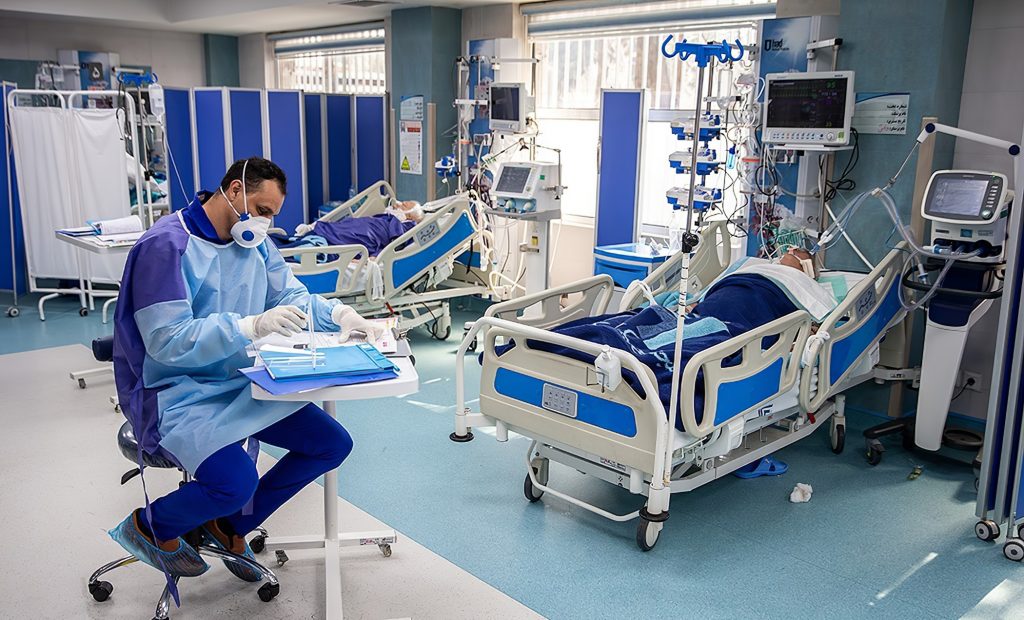 25 March 2020 – Nordica: the last chance to fly homeThe Estonian flight operator, Nordica, is saying today is basically the last chance for Estonians abroad to fly home and people should be ready for a situation where, in the next months, it will be impossible to fly back to Estonia. Many airports in Europe won't allow regular flights to land; only charter flights that help people return to their homelands are allowed, the Estonian newspaper, Postimees, is reporting. Many land crossings are also closed for non-residents. "The Estonian people who don't live abroad permanently but are there temporarily need today to be ready for a situation where they can't come home in the next months, neither by flying nor using land transport," the communications manager of Nordica, Toomas Uibo, told the newspaper. "An airline ticket purchased for the coming weeks may not guarantee the flight, because the situation is worsening within days and hours and airlines are constantly cancelling flights."  25 March 2020 – Important contacts, websites and media outletsSettle in Estonia, a free educational programme provided by the Estonian state which is intended to help the foreigners who have arrived in Estonia to adapt and become accustomed to local life more easily, has published these information posters that highlight the important phone numbers and websites, including the Estonian English-language media outlets, during the crisis. 25 March 2020 – Prince Charles has the coronavirusPrince Charles, the heir to the British throne, has tested positive for the coronavirus. The 71-year-old Prince of Wales has had mild symptoms for day but has otherwise remained in good health. His wife, Camilla, the Duchess of Cornwall, has also been tested but was negative for the virus. They're both self-isolating in Birkhall, Scotland. 25 March 2020 – Tartu closes public sports grounds, playgrounds and gathering placesThe Tartu local government has decided to close all of the sports grounds and playgrounds owned by the town, along with other publicly used gathering places, in order to prevent the spread of the coronavirus. The town's crisis team has asked people to remain home and maintain a two-metre distance from other individuals while moving about outdoors. "The recommendation for people to remain in isolation may seem inconvenient, but this is currently the only way to stop the virus from spreading," Joel Starkopf, a professor at the University of Tartu, said. 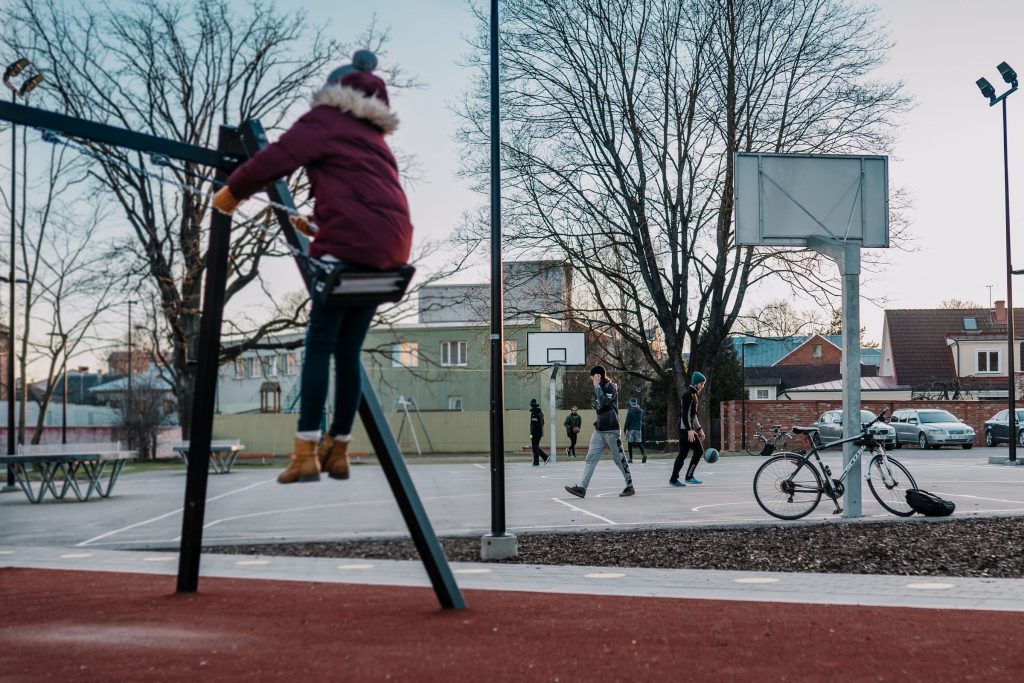 25 March 2020 – Support Estonian WorldSince you're here, we have a small favour to ask. Despite the harsh daily challenges we face as the independently run media outlet, Estonian World has managed to offer engaging content on a weekly basis since 2012 – but to carry on the work we started, we need your help. Unlike many media outlets, we haven't put up a paywall or distract readers with banner ads – we want to keep Estonian World open and free to read. Please consider helping us in our efforts. We'd be grateful for every level of support – here's how you can support us.  24 March 2020 – Estonia introduces tough new restrictionsThe Estonian government on Tuesday introduced strict new rules due to the coronavirus crisis – the shopping centres will close from Friday and meetings of more than two people in public places are prohibited. 24 March 2020 – Science council: in a week, 200 people may need hospitalisationAccording to a report by the government's science council, in a week, 200 or more people may need hospitalisation and over 100 people may be in intensive care. In two weeks, those in intensive care may be over 100, and in three weeks between 200 and 300. The death rate is difficult to predict, this will depend mostly whether the country can prevent contagion among the elderly. In Italy and China, research shows that among the people younger than 60, the death rate has been 0.2-1%; among the people older than 70, however, the death rate has been 10-15%. 24 March 2020 – The New Yorker commends Estonia's readiness to handle the crisisThe New Yorker has published an article, titled "Why Estonia Was Poised to Handle How a Pandemic Would Change Everything", saying that messages coming out of Estonia sound discordantly confident, compared with other countries. "…Estonia appears to have one of the lowest levels of panic. Politico is keeping track of panic levels, ranking them on a ten-point scale based on media coverage, panic buying, and other indicators. Estonia's level of panic is ranked three out of ten (compared to seven in France, which is just above Estonia in the number of known cases per capita; and five in Denmark, whose case number is just below Estonia's)." "Estonia may be the nation best prepared for the consequences of the pandemic, both economically and socially. As my colleague Nathan Heller has written, its economy is bound to tech, its government is digital, and most services in the country either are or can be provided electronically—in fact, it's nearly impossible to overstate the extent of Estonian digitization. People vote online and use digital prescriptions; a single piece of I.D. securely stores each Estonian's personal information, including health, tax, and police records; one can even establish residency and begin paying taxes in the country digitally—effectively immigrating online." 24 March 2020 – Estonian lab receives 30,000 test kitsSynlab, an Estonian laboratory, today received 30,000 new coronavirus test kits. The lab currently tests at the pace of 1,000 tests a day, which means that the lab has enough kits for the next 30 days. According to Eesti Ekspress, an Estonian weekly, the lab should receive 7,500 additional kits tomorrow and 12,500 by the end of the week. 24 March 2020 – Trump wants to reopen the US by EasterThe US president, Donald Trump, said he "would love to have the country opened up, and just raring to go, by Easter", which is less than three weeks away. "I think it's possible, why not? … I gave it two weeks. We can socially distance ourselves and go to work." He again returned to his comparison of the coronavirus to the flu, saying that even though thousands of people die to the flu, "We don't turn the country off." Top health professionals have said the president's timeline is far too quick. 24 March 2020 – Tallinn mayor urges for additional measuresMihhail Kõlvart, the mayor of Tallinn, sent a letter to prime minister Jüri Ratas, urging for additional measures to avoid people from moving around, gathering and the opening times of entertainment venues. The mayor suggests the country ban movements and gatherings of more than three to five people, except for essential workers and people who can't move around without others' help; ban minors from being outside between certain times of the day; ban dining in at restaurants that can't fully abide by health regulations; ban entertainment at dining venues (free wifi, pool games, private parties with many attendees); consider closing entertainment venues; close restaurants, bars, night clubs and other entertainment venues from 10:00 PM onwards.  24 March 2020 – Estonia's schools to be closed at least until MayThe Estonian ministry of education has decided that the country's schools will remain closed at least until the spring break, which occurs at the end of April. According to an optimistic scenario, the schools would open in the beginning of May. In this case, the children would have the chance to attend their elementary and high school finals, at least partially. If e-learning continues past that deadline, the finals will be postponed or cancelled entirely. 24 March 2020 – The Tallinn Old Town Days cancelledThe Tallinn Old Town Days, scheduled for 4-7 June, have been cancelled due to the coronavirus. One of the oldest continuously running events in the Estonian capital – the first one took place in 1982 – the festival usually signifies the beginning of summer in the city. The Old Town Days fill the streets with concerts, exhibitions, theatre plays, fairs and many other fun activities. A representative of the Tallinn city government said the festival could still take place later in the year, circumstances permitted. 24 March 2020 – Quiet streets of TallinnPriidu Saart posted this video on YouTube, showing the empty city centre of Tallinn two days ago. It must be noted, however, that Tallinn's parks and playgrounds were not as empty, prompting many of the city's residents to call for more social distancing. 24 March 2020 – India: a total ban of coming out of homesThe Indian prime minister, Narendra Modi, has declared a "total ban of coming out of your homes" for 21 days in a nation of 1.3 billion people to help curb the spread of the coronavirus. "There will be a total ban of coming out of your homes. Every district, every lane, every village will be under lockdown. If you can't handle these 21 days, this country will go back 21 years," Modi said. It's unclear how the people would get food and other supplies. Modi hinted that the government and civil society groups would help, but didn't go into details. 24 March 2020 – One continent still untouchedOne continent on Earth has still been untouched by the novel coronavirus – Antarctica, a place of barren ice where the all-consuming cold and darkness of winter is fast approaching. "You'd better stay there, you're safer there," Alberto Della Rovere, the leader of the 35th Italian expedition to Antarctica, said his colleagues at home told him via WhatsApp, Washington Post reported. "Right now, this, Antarctica, is the safest place in the world. There are no outside contacts, and we're far away from any settlement." Even in normal times, only a limited number of people are allowed in and out of Antarctica, with medical workers screening for signs of influenza and other illnesses before arrival. 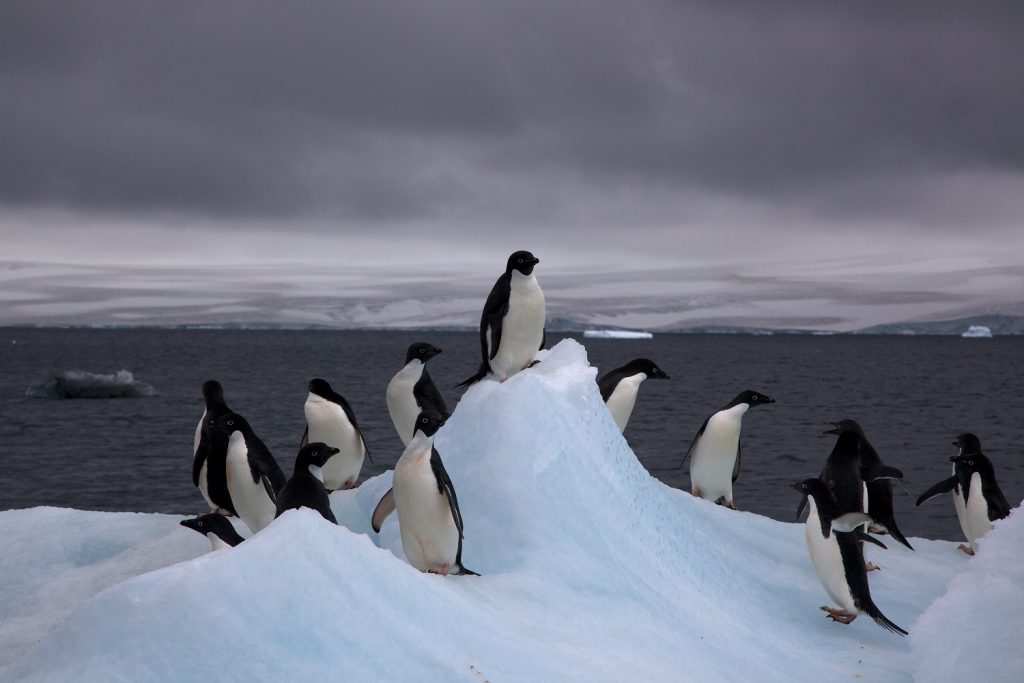 23 March 2020 – Estonian Health Insurance Fund covers the coronavirus-related costs for uninsured peopleThe Estonian Health Insurance Fund confirmed that the cost of medical treatment for uninsured people, both for emergency care and long-term treatment of the coronavirus, will be covered by the fund. There are currently approximately 66,000 people without health insurance in Estonia. Uninsured people, who do not have a family doctor (GP), can seek help from the nearest family doctor centre. There are also an estimated 20,000 people in Estonia who do not have a family doctor (GP), although they may be covered by health insurance. They are also advised to contact their nearest GP, according to the Estonian ministry of social affairs. 23 March 2020 – President Kaljulaid: there's no need for a curfewThe Estonian president, Kersti Kaljulaid, said in a TV interview to the Estonian Public Broadcasting that Estonia shouldn't impose very strict rules as some other countries have done, and that there is no need for a curfew. The president asked the people to communicate face-to-face as little as possible and also keep their distance when standing in line at grocery stores. "We have to be able to stop this disease. Mathematically, this means that every infected person should infect less than one other person. Fortunately, we're not yet sitting between four walls. But I'm afraid everyone needs to map a stricter rule book for themselves," Kaljulaid noted. 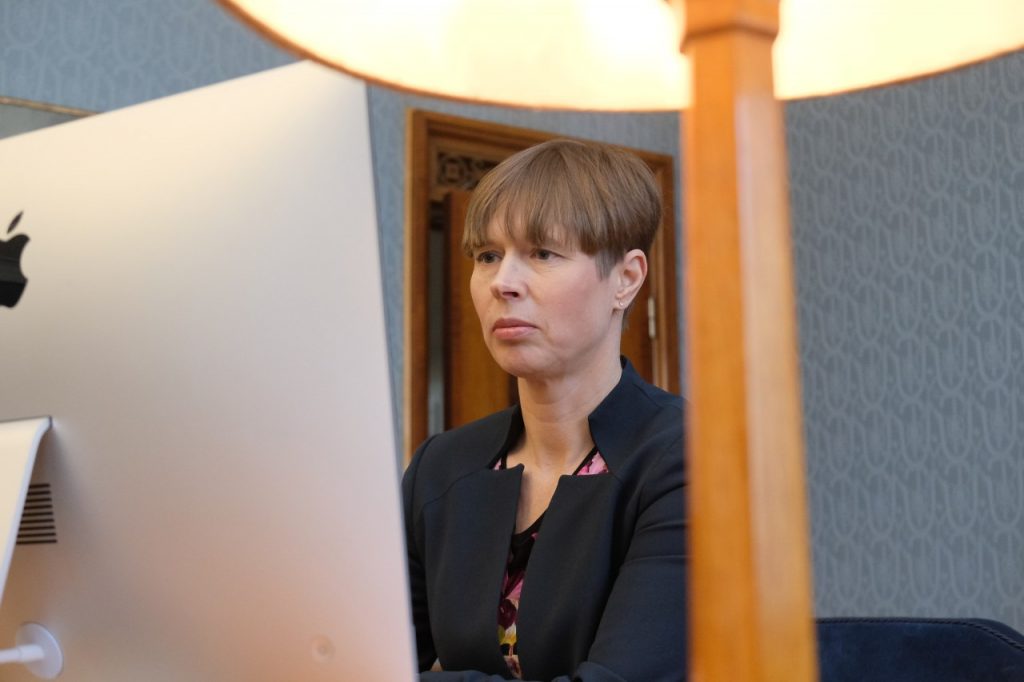 23 March 2020 – Bill Gates warning about the next global epidemic in 2015Not that it would change anything now, but Bill Gates, a co-founder of Microsoft, reminded the human kind already few years back that infectious diseases are our oldest, deadliest foe. "Look at the death chart of the 20th century," he said in an interview with Vox, an American news and opinion site, in 2015. "I think everybody would say there must be a spike for World War I. Sure enough, there it is, like 25 million. And there must be a big spike for World War II, and there it is, it's like 65 million. But then you'll see this other spike that is as large as World War II right after World War I, and most people, would say, 'What was that?'" "Well, that was the Spanish flu." Gates warned the world was not ready to tackle the next highly infectious epidemic. 23 March 2020 – Research: the state should ensure timely delivery of food and emergency goodsAccording to a research, conducted by the International Centre for Defence and Security, the state should, during a crisis, ensure that the goods required in a crisis situation exist through purchases or pre-contracts; ensure the timely delivery of required food products and emergency goods to distribution points in municipalities; and support local authorities in planning the distribution of goods and test their preparedness by organising special exercises. The local governments, in their part, should have an overview of the population and where people are; coordinate with the state-level to identify the locations of existing and potential additional distribution points that should be situated in the vicinity of shopping centres or other locations people are familiar with visiting; and plan the local distribution of supplies and find relevant partners. 23 March 2020 – Tallinn closes all public playgrounds and sports groundsThe Tallinn city government decided to close all public playgrounds and sports grounds from 24 March.  23 March 2020 – US military exercise in the Baltics cancelledThe coronavirus pandemic has also a major impact on military exercises scheduled for the first half of 2020, including the Saber Strike – an annual international exercise held since 2010 by the United States Army Europe in Estonia, Latvia and Lithuania. The United States European Command said in a press release that this year's Saber Strike is cancelled. 23 March 2020 – Estonian doctors: please stay home!The doctors of the North Estonia Medical Centre are imploring to the country's people to stay home and not meet other people. "Everyone who is not directly involved in the functioning of the state – please abide by the isolation recommendation, do not meet other people, don't go the store and elsewhere without a serious need," the doctors said in a statement. "Based on the developments in Italy, France, Austria, Iran and Spain, it is clear that it's the high time for Estonia to isolate more and, so far, our compatriots' behaviour hasn't been sufficient to avoid the worst." "We're already seeing and hearing how people are meeting friends, children gather in playgrounds, the town is full of cars and people aren't grasping the real danger. It's still possible to curb the contagion. By the experience of other countries, every day of delay to institute effective isolation will add a lot of patients who need intensive care and die during the next month in Estonia. Please, let's do everything we can to save the health of the Estonian people!"  23 March 2020 – Panic in LondonWhile in Estonia, people have stopped panicking and the supermarket shelves are decently filled up again, it's not clearly the case in London. This is a picture taken this evening at one of the Tesco shops in the UK's capital.  23 March 2020 – Chicagoans' kindness knows no limitsThe city of Chicago has small bird house-like communal libraries in the residential areas. People can donate their own books into these libraries and borrow the books other people have donated. But during the coronavirus crisis, a new phenomenon has occurred: people are now donating food through these libraries. In this library in Andersonville, a neighbourhood that was originally inhabited by the Swedes, a person in need can borrow a can of Campbell's cheddar cheese soup.  23 March 2020 – PM orders the British people homeThe prime minister of the United Kingdom, Boris Johnson, has ordered the British people home, starting from tonight. People can go out only to shop for basic necessities, daily exercise, any medical need and travelling to and from essential work. Shops selling non-essential goods will be closed, also libraries, playgrounds, outdoor gyms and places of worship. Gatherings of more than two people who don't live together are banned. People who don't abide by the rule can be fined. The UK currently has 6,650 confirmed coronavirus cases, 335 have died. 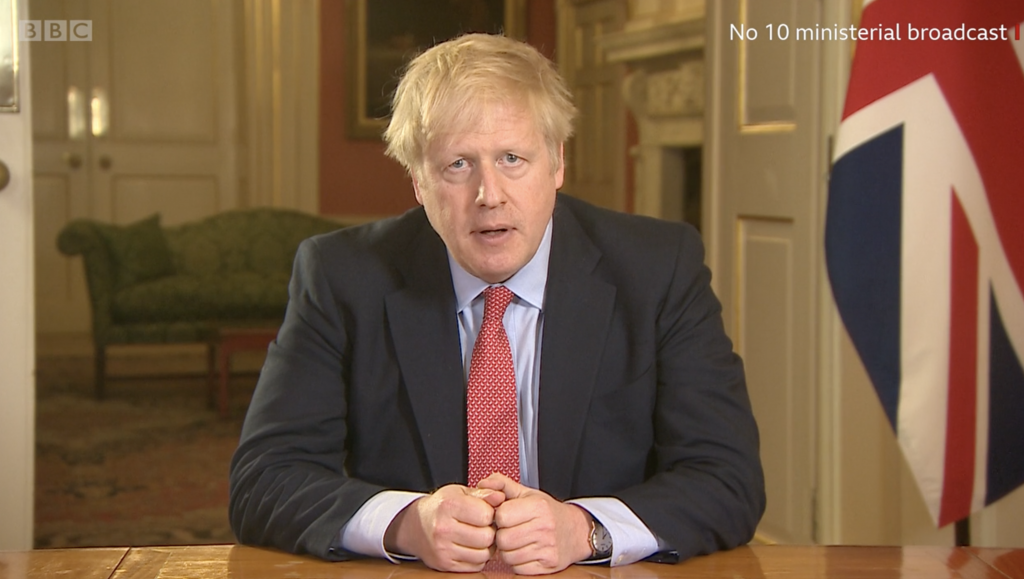 23 March 2020 – The Olympics will be postponedThe 2020 Tokyo Olympic Games will be postponed because of the coronavirus crisis, according to Dick Pound, a member of the International Olympic committee. The games will be likely moved to 2021. More details will be announced in the coming weeks. The 2020 Tokyo Olympics were scheduled to take place from 24 July to 9 August, followed by the Paralympics from 25 August to 6 September. 23 March 2020 – 1.5 billion people asked or ordered to stay at homeOver 1.5 billion people across the world – one-fifth of the planet's population – have either been asked or ordered to stay home to help contain the spread of the coronavirus. Over 362,000 people globally have been confirmed infected with the virus, over 15,000 have died, most of them in Italy, China and Spain. Over 100,000 people have recovered, most of them in China (almost 60,000). 23 March 2020 – US embassy: Potentially no flights out of Tallinn AirportThe embassy of the United States in Estonia is warning that beginning Friday, 27 March, there will potentially be no flights to major European transit hubs out of Tallinn Airport indefinitely. The embassy reiterated the State Department's Level Four Global Health Advisory, stating "U.S. citizens who live in the United States should arrange for immediate return to the United States, unless they are prepared to remain abroad for an indefinite period."  23 March 2020 – IMF: This recession as bad as the previous or worseThe managing director of the International Monetary Fund, Kristalina Georgieva, said after a conference call of G20 finance ministers and central bank governors that the recession that is happening currently due to the global coronavirus crisis is going to be at least as bad as during the global financial crisis or worse. The outlook for global growth for 2020 is negative, but she expects recovery in 2021. "The economic impact is and will be severe, but the faster the virus stops, the quicker and stronger the recovery will be," she said. "We strongly support the extraordinary fiscal actions many countries have already taken to boost health systems and protect affected workers and firms." She also noted that the IMF will step up emergency finance – nearly 80 countries have already requested help – and that it is working with other international financial institutions to provide a coordinated response. 23 March 2020 – FM: 240 Estonians are stranded abroadAccording to the Estonian foreign minister, Urmas Reinsalu, the authorities are aware of 240 Estonians who are stranded in 44 different countries. The most difficult cases are in Thailand, Indonesia, the Philippines and Peru. Reinsalu said the air travel options are declining and even regular flights that are on the schedule in a month's time may not depart. Countries are mostly using their air fleets to evacuate people. The minister noted that people who are trying to get home from so-called third countries should head towards Europe as there it's easier to find flights home. Since the start of the pandemic, around 2,400 Estonians have returned home from abroad. 23 March 2020 – Companies have started to lay people offIn the past week, 18 Estonian companies have announced they're laying people off, altogether 261 people will be made redundant, the Estonian newspaper, Postimees, reports. Eight of the companies that are laying off due to hardships resulting from the coronavirus pandemic. The Estonian unemployment rate is now six per cent, as of yesterday, 38,629 people were registered as unemployed. Compared with the last week, the number of those unemployed grew by 4.2 per cent. 23 March 2020 – Siim Kallas: The EU is very weak in the crisis; Estonia's foreign policy leadership should be more activeSiim Kallas, a veteran Estonian politician and a former vice president of the European Commission (2010-2014), wrote in the Estonian daily, Eesti Päevaleht, that it is "painful" for him to see what is happening at the centre of the EU. "The European Union has failed to prevent an explosion of extreme protectionism. The borders are closed and necessary cargos are prevented from moving. If, for example, the rumour that the Dutch government requisitioned a consignment of medical supplies, intended for Estonia, proves to be true, it's an indescribably despicable," Kallas wrote in an opinion piece. "It is rumoured that other governments are doing the same. Not only is it dismantling our solidarity – it is criminal." "Why is that? I would argue that the leadership of the European Union is very weak at the moment. Charles Michel, the European Council president, leaves an unstable and unconvincing impression, compared with his predecessors, Herman Van Rompuy and Donald Tusk. Ursula von der Leyen, the European Commission president, is a second-rate German politician, with no independent political capital or experience in running the country. As a result, her word among the EU heads of state and governments does not count," Kallas said. "There is no consensus within the commission. The vice president, the Dutch socialist, Frans Timmermans, is angry he did not become the president of the commission and does not particularly recognise the authority of von der Leyen." "The heads of state and prime ministers play an important role in the governance of the European Union. Ultimately, they take responsibility for all the policies. The German chancellor, Angela Merkel, who has played an undeniable role for a long time, seems to have withdrawn. The French president, Emmanuel Macron, poses more problems than solutions," Kallas, himself a former Estonian prime minister, continued. "And the European Parliament is completely unnoticeable. Usually, it has loudly defended its perception of the European Union as opposed to the narrow specific interests of the member states. Where are the MEPs, the committees, the political groups? What are their views?" Kallas said Estonia's foreign policy leadership should be more active. "We should demand more vigorously an explanation as to why the shipments of medical and personal protective equipment intended for Estonia are stuck in different countries. At the same time, we should look for all possible ways to obtain financial support from the European Union," he said. "The European Commission has proposed that Estonia could mobilise nearly €300 million of European funds as soon as possible. Let us act fast, because the sooner this money reaches our economy, the better." "In his speeches, the Estonian foreign minister [Urmas Reinsalu] emphasises how right it is that countries primarily protect their interests. That much is true, but one needs to take into account that if every country in Europe and in the world defends only their own interests, everyone will ultimately suffer harm," Kallas added. 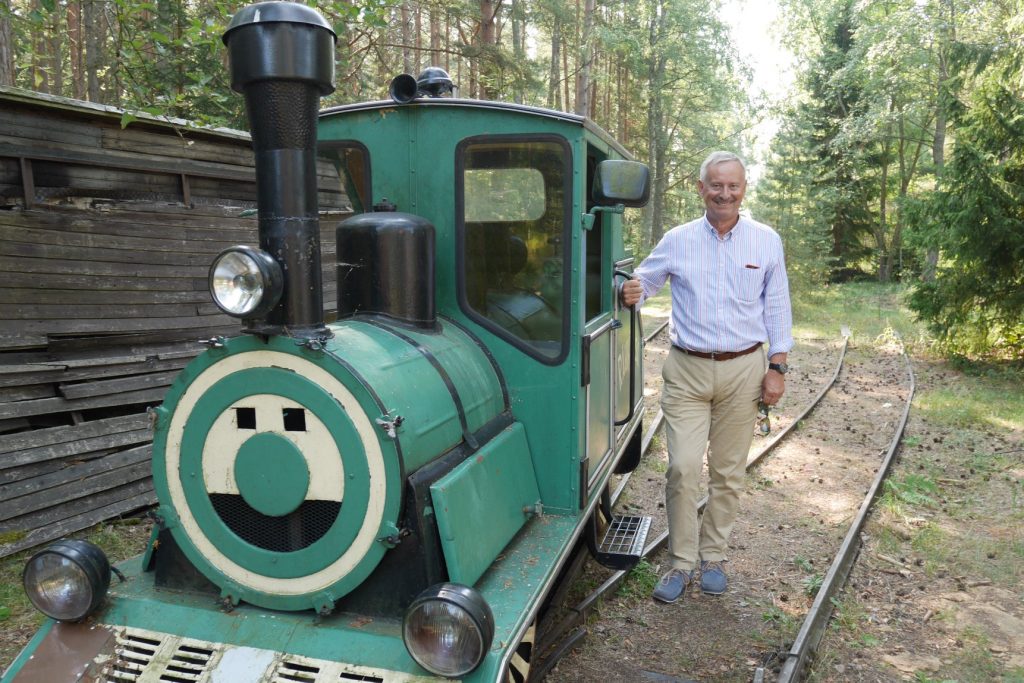 23 March 2020 – Dutch scientists find an antibody that can fend off the coronavirusDutch scientists have found an antibody that is capable of fending off an infection by the COVID-19 variant of coronavirus. The discovery can lead to an antiviral medication and the ability for people to test themselves at home for the coronavirus. The scientists say the antibody they found "neutralises" the virus and "offers the potential to prevent and/or treat COVID-19, and possibly also other future emerging diseases in humans caused by viruses from the Sarbecovirus subgenus." 22 March 2020 – PM: Be prepared for it to get a lot worseThe Estonian prime minister, Jüri Ratas, said in an address today that the people of Estonia should be prepared for the contagion of the coronavirus getting a lot worse before it'll get better. Ratas admitted that, in reality, there are a lot more of infected people than those that are confirmed. "The experience of other countries shows that after a calmer period, there may come a massive jump in the numbers of the infected and those who need to be hospitalised. We have to be prepared that the contagion of the coronavirus will get a lot worse before it'll get better." The prime minister asked everyone to help our close ones that are part of the risk groups to arrange their lives so that they could stay home. "We also have to rule out that we ourselves infect them in their homes, nursing homes or hospitals." 22 March 2020 – Adam Rang: Mass panic is a myth; times of crisis can bring out the best in peopleMany people are concerned about how to prevent mass panic around the coronavirus, but Adam Rang, a regular contributor to Estonian World and a trained crisis communications professional, argues that people generally don't panic in times of crisis – as long as you give them good information. 22 March 2020 – Kristina Kallas: the Estonian government should solve the crisis, not play political gamesThe Estonian pension reform must be taken off the table, the economy must not only help the people without income, but also the big exporting companies, and all the energy must be put into solving the coronavirus crisis, not into political games, writes Kristina Kallas, the leader of Estonia 200, a liberal Estonian political party.  22 March 2020 – The Czech Republic may stay sealed off for two yearsThe chief of the state of emergency of the Czech Republic, Roman Prymula, told the local news outlets that the country's borders may stay closed for two years due to the coronavirus crisis. He also said that the Czech citizens should make their summer vacation plans this year within the country. The Czech Republic has announced its first coronavirus death, a 95-year-old man who had previous health issues. Altogether, there are 1,120 confirmed coronavirus cases in the Czech Republic, 74 have been hospitalised, 19 of them in intensive care. 22 March 2020 – Four people have recovered in EstoniaAccording to the Estonian Health Board, four people have already recovered from the coronavirus. As of today, 15 people have been hospitalised with the virus, four are in intensive care and two are in critical condition. "We have tested over 3,000 people and the last week indicates that by the rate of infections, we're seeing a growth trend, which, fortunately, isn't explosive. Still, five to eight per cent of the tests are positive," the director of the Health Board, Merike Jürilo, said in a press conference. Five police officers have been infected with the coronavirus; the precinct has been cleaned and the patients' contacts have been informed.  22 March 2020 – FM: new options for returning to EstoniaThe Estonian foreign ministry and Estonian foreign representations continue to work with travel agents and transport companies to find and mediate options for Estonians to return home, and they've added new options for the stranded citizens to get closer. 22 March 2020 – New York State has 5% of the global coronavirus casesThe state of New York has 15,168 confirmed cases of the novel coronavirus, meaning around five per cent of the global cases have occurred in the state that has the population of less than 20 million. The state's governor, Andrew Cuomo, announced on Sunday that 4,812 people tested positive for the virus since yesterday. 114 people have died in New York. More than 9,000 of the New York cases have occurred in New York City. 22 March 2020 – Sen Paul tests positive; Merkel in self-quarantineThe US libertarian senator, Rand Paul (R-KY) has tested positive for the coronavirus, becoming the first senator and the third member of Congress to test positive. Paul is asymptomatic and has self-quarantined. Two other members of Congress, Representative Mario Diaz-Balart (R-FL) and Ben McAdams (D-UT) have also tested positive. Meanwhile, the German chancellor, Angela Merkel, has self-quarantined herself in her home after having contact with a doctor who tested positive for the coronavirus. The doctor gave her a pneumococcal vaccine on Friday afternoon and has now tested positive. Merkel therefore decided to self-quarantine herself. She will be tested regularly over the coming days. 22 March 2020 – Expert: Lockdowns alone won't defeat the outbreakThe World Health Organisation's top emergency expert, Mike Ryan, said that countries could not simply lock down their societies to defeat the coronavirus without public health measures to avoid a resurgence. "What we really need to focus on is finding those who are sick, those who have the virus, and isolate them, find their contacts and isolate them," Ryan said in an interview on the BBC, according to the New York Times. "If we don't put in place the strong public health measures now, when those movement restrictions and lockdowns are lifted, the danger is the disease will jump back up." 22 March 2020 – Germany to ban meetings of more than two peopleGermany is to ban meetings of more than two people to help stop the coronavirus from spreading. The ban won't affect families and people living in the same household. The German chancellor, Angela Merkel, has agreed on the measure with the German state premiers in a phone conference. At the same time, the German tabloid, Bild, yesterday published photos of Merkel herself doing some shopping in a Berlin supermarket, being in a relatively close distance from definitely more than one person. 22 March 2020 – An Estonian chatbot gives information about the coronavirusThe Estonian AI startup, AlphaBlues, has launched the Coronabot – a chatbot to give information about the coronavirus. The bot is built on the World Health Organisation sources and can be used by anyone around the world. During the first five days, the Estonian chatbot has given information on the coronavirus to 4,000 users. 22 March 2020 – Tallink donates half a ton of foodTallink, the Estonian shipping company running ferries across the Baltic Sea, and one of the largest companies in the country, has donated over 450 kilograms (992 lbs) worth of food to the Estonian Food Bank. "Due to the emergency situation, a few things had to stay put immediately – ships at ports and huge food supplies in the fridge," the company said on its Facebook page. "In order not to feel dispirited with the 450 kilograms of sausages, we sent them to the Food Bank for good. In addition, plenty of other food found new home – from mozzarella cheese to mouth-watering cookies."  22 March 2020 – University of Tartu students can graduate despite the emergency situationEstonia's oldest and biggest higher education institution, the University of Tartu, has confirmed that life at the university goes on despite the emergency situation and teaching and research activities continue. "Nobody should worry they cannot graduate or defend their thesis because of the emergency situation. The same can be said about the entrance to the university: everybody who wants to start their studies at the university will get a chance to apply," it said in a statement. Whether the university will organise the academic test in early summer for admission under special conditions will be decided by 1 May at the latest.  21 March 2020 – Two people in intensive care in Estonia, 14 hospitalisedAltogether, 14 people have been hospitalised in Estonia due to the coronavirus, the Estonian Health Board said today afternoon. Two of these are in intensive care. According to the Health Board, one of them is stable, the other's condition is critical. They're both older than 50. In the past day, the country tested 308 people, 23 of them were positive for the virus. Altogether, the country has so far tested 2,812 people. Most of the 306 people infected only have mild symptoms. 21 March 2020 – From across the pond: Illinois ordered to shelter in placeThe deputy editor-in-chief of Estonian World, Chicago-based Sten Hankewitz: "The first hour of the statewide shelter-in-place order in Illinois has gone by. As the governor ordered yesterday, most people (apart from the essential workers, of course) should stay at home and only go out to buy groceries, go to the doctor or to the pharmacy, or exercise or take a walk. Everyone should keep a social distance of at least six feet from people other than the members of their own household. And I'm not sure if people have actually understood the order, because I went for a walk around the time the shelter-in-place order kicked in, and the streets were, unlikely yesterday or the days before, almost completely deserted. "Let's keep in mind it's Saturday, the day when most people don't work. The sun is shining and even though it's relatively cold (30°F; -1°C), even with the coronavirus crisis, I've never seen the streets this empty. Normally, you see couples walking, joggers running, people walking their dogs – especially considering most people who can, work from home these days and you can only be confined to your house for so long. And yet, today, I saw maybe six people along my three-mile walk. "But people do have cause for concern. Illinois reported 168 new cases of the novel coronavirus within the past 24 hours, and one more person has died. So far, my home state has 753 coronavirus cases and six deaths. And the governor has now asked retired health-care workers, including doctors, nurses and physicians' assistants, to 'come back and join the fight against COVID-19'. Altogether, the United States has close to 25,000 confirmed coronavirus cases; over 300 people have died." 21 March 2020 – Chris Glew from London: The only people you encounter are the homelessChris Glew, the London editor of Estonian World, writes from what used to be an ever-bustling city that, due to the coronavirus crisis, is deserted, with theatres closed, and the only people you (mostly) meet on the streets are the homeless.  21 March 2020 – Taiwan warned the WHO in December, was ignoredTaiwan says it warned the World Health Organisation already in December about the infectivity of the coronavirus, but the WHO failed to report it to other countries, according to a report by the Financial Times. Taiwan is now blaming the WHO's relationship with China for its failure to act. Taiwan reported its concerns to a WHO framework called the International Health Regulations on 31 December. The IHR framework is intended to be an exchange of epidemic data between 196 countries. "While the IHR's internal website provides a platform for all countries to share information on the epidemic and their response, none of the information shared by our country's [Centers for Disease Control] is being put up there," the Taiwanese vice president, Chen Chien-Jen, told the Financial Times. "The WHO could not obtain first-hand information to study and judge whether there was human-to-human transmission of COVID-19. This led it to announce human-to-human transmission with a delay, and an opportunity to raise the alert level both in China and the wider world was lost." The WHO declined to comment, the newspaper said. 21 March 2020 – NYC Health Department: You are your safest sex partnerThe New York City Health Department is giving advice that is really applicable around the globe during these uncertain times – your safest sex partner is right there in the mirror. "You are your safest sex partner. Especially if you wash your hands (and any sex toys) with soap and water for at least 20 seconds before and after sex," the health officials said. The second-best option is a spouse, a significant other or a live-in love. 21 March 2020 – A statistical map of the coronavirus spread in EstoniaDuring the Garage48 "Hack the Crisis" hackathon, a team of open data activists created an interactive map that shows statistics about the COVID-19 disease caused by the coronavirus spread in Estonia. The map is now being maintained by the Open Knowledge Estonia NGO, in collaboration with the Estonian Health Board. The data is updated every day between 10AM and 12PM Estonian time (EET). 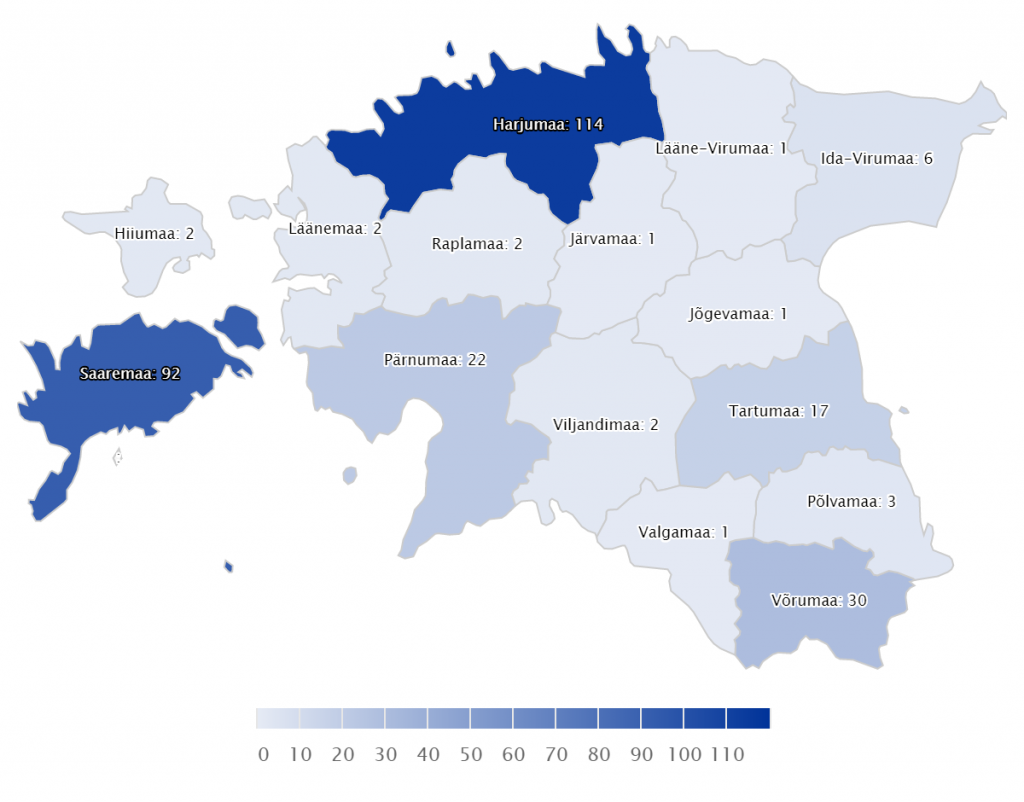 21 March 2020 – Estonia orders 200,000 litres of disinfectantsAccording to the Estonian minister of public administration, Jaak Aab, it is currently hard to find disinfectants and protective equipment that should be provided to medical workers and first responders. To solve the issue, the government has signed a contract with a manufacturer to procure 200,000 litres (53,000 US gallons; 44,000 imperial gallons) of disinfectants that will be produced and delivered within two weeks. "The quantity is sufficient for local governments and public authorities for the duration of one month," Aab said. "For a longer period, the supply need can be covered by Estonian producers who have also secured the supply of raw materials. In the near future, the Rakvere Spirit Factory will start the production of ethanol that is necessary for the production of disinfectants." 21 March 2020 – The government publishes FAQs in EnglishThe Estonian government has published a frequently asked coronavirus-related questions and answers' list in English; many of those are answers to questions Estonians and foreign residents have asked by email and phone from the country's Health Board and an emergency hotline 1247. 21 March 2020 – New flights to get back to EstoniaThe Estonian foreign ministry and Estonian representations abroad continue to work with travel agencies and transport companies to find and mediate options for Estonians to return home. Here's a new list of additional flights and other means of transport for getting back to Estonia. 21 March 2020 – Majority of Estonians support emergency situation measuresThe overwhelming majority of the Estonian population considers the situation caused by the coronavirus to be serious and the measures related to the emergency situation are appropriate. People are well aware of how to protect themselves from the virus, according to a recent survey by Turu-Uuringute AS, a market research company. The situation caused by the coronavirus is considered as serious or very serious by 85% of the Estonian population, and 94% of the people are well or rather well aware of how to protect themselves from the coronavirus. The study also shows that 89% of Estonians consider measures related to the ongoing emergency situation appropriate. 21 March 2020 – Finland records its first coronavirus deathThe first person has died of the novel coronavirus in Finland. The elderly person, who died on Friday, lived in the Helsinki and Uusimaa region in southern Finland; the authorities haven't released any other details. "Finland's first coronavirus death is regrettable, but not unexpected, the country's Health Board said in a statement. The chairman of the Health Board, Markku Tervahauta, said there will be more. "We have to fight against this virus together. Each and every one of us has an important task of not infecting others with the disease," he said. 21 March 2020 – Why is Italy's death toll so high?Italy lost 793 people to the coronavirus in one day, the highest number of deaths recorded anywhere in the world in a 24-hour span. More than 60% of the deaths occurred in the northern region of Lombardy. In the country, 6,557 new cases were detected within the last day. Since the start of the pandemic, 4,825 Italians have succumbed to the virus. Angelo Palmeri, a Tallinn-based expat from Puglia, Italy, told Estonian World there are two combined reasons why Italy is the hardest hit in terms of coronavirus victims. "First, we have one of the highest aging population in Europe and since this virus hits elderly people quite bad (and the more health complications they have, the higher the risk), the numbers are quite high. This is why the #StayHome has been stressed quite a lot by Italians back home and also by Italians living in Estonia – because when you catch the virus, you pass it to other people and you don't know who it reaches to. Second, I think there was a slow reaction, when the first cases were discovered. Italy declared a complete lockdown only after it all got serious. We lost up to ten days to tackle the crisis effectively. Amid call to action by medical staff and politicians' 'business as usual' messages, there was a lot of confusion and everyone acted locally (from a city government to regional level)," Palmeri said. "We thought southern Italy would stay safe. But after the announcement of the lockdown in the northern part leaked, a mass of people – students and workers from the south, who worked in the north – rushed in panic to the northern Italian (especially Milan) train stations to go home. Their irresponsible behaviour is causing a surge of cases in all southern regions now. The governor of my region, Puglia, told them publicly to stop travelling south and overnight, he issued an order for compulsory quarantine for all people returning home. It is estimated that about 9,000 people abandoned northern Italy to get back to south before the lock-down. And it is sure not all of them complied with the quarantine, as there are cases of parents and relatives, who got infected by carriers," he added.  21 March 2020 – Six rules to live by – PMThe Estonian prime minister, Jüri Ratas, said in a video address that whether or not Estonia will survive the coronavirus depends on everyone themselves. "If it feels that nothing's wrong and the illness will pass me, then no, thinking like this boosts further contagion. I understand everyone wants to live a normal life. But please, let's do everything we can, until the end of the emergency situation, to live according to these six rules: "1. Monitor our health. Also the health of our close ones. "Everyone, despite our age and where we live. Only thus, together, making an effort and protecting others can we survive these harsh times. Protect yourself and other people's health!" 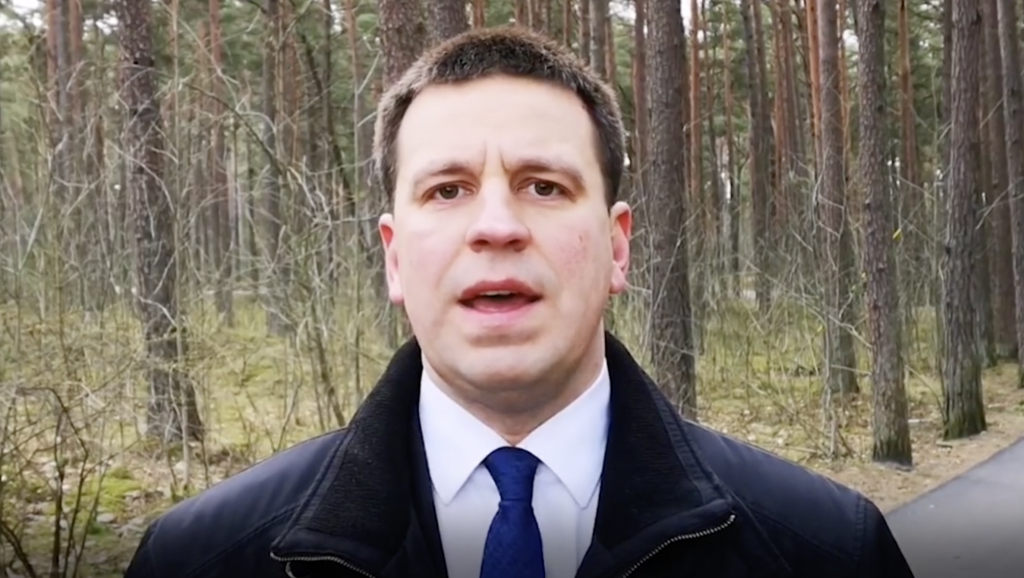 21 March 2020 – Estonia and Finland create a taskforceThe Estonian and Finnish foreign ministers have decided to form a taskforce to map the issues caused by the coronavirus crisis and decide on cooperative measures. "The relations between Estonia and Finland cannot be severed even during the coronavirus crisis. We discussed various solutions for managing this pandemic together. Now the taskforce must draw up its proposals," the Estonian foreign minister, Urmas Reinsalu, said. 21 March 2020 – Bus operator Taisto cancels all departuresThe Estonian bus operator, Taisto Liinid, is cancelling all departures because of the coronavirus emergency and fewer passengers. The cancellation comes into effect on Monday, 23 March. The bus company has been reducing its departures gradually since 16 March. 21 March – What coronavirus symptoms look like, day by dayThe Science Insider magazine explains what it looks like to develop COVID-19, day by day, in this video. 21 March 2020 – Living in the French war zoneKristel Halman, an Estonian expat, living near Toulouse, France, writes about her and her family's life in a "war zone" where, due to the spread of the coronavirus, going out without a paper of authorisation and a compelling reason can get you fined or arrested.  20 March 2020 – Fees waived for children in the municipal kindergartens of Tallinn and TartuThe Tallinn city government has decided to exempt all children from the municipal kindergarten place fee until the end of April. In Tallinn, the municipal kindergarten fee per one child is €71.25 per month and in kindergartens equipped with a swimming pool, €78.26 per month. "The city continues to provide service in kindergarten during the emergency situation. All of the city's municipal kindergartens are operational and follow strict guidelines in order to protect the health of children," the city government said in a statement. Tallinn's decision follows that of the local government in Tartu, where the fees in the municipal kindergartens were suspended on 16 March.  20 March 2020 – Who can get tested in Estonia?According to the Estonian daily, Postimees, people with symptoms and medical indications can get tested, but the necessity is based on a family doctor's decision. The GPs have been given directions, but the final decision is in their hands, based on their knowledge of their patients and taking into account the patient's symptom, their general health condition and possible other diseases. First and foremost, the elderly and people with chronic diseases – regardless of their age – can get tested. The people staying in a hospital and have symptoms of a virus are also tested. Anyone who's feeling sick or has another health concern should contact their GP or call the family doctors' advice number 1220. 20 March 2020 – Finland again reverses its decision – shuttle migration to stop from SundayEven though Finland earlier said it's going to allow shuttle migration from Estonia – people who live in Estonia and work in Finland – to continue cross-border commuting, it has now reversed itself and banned it from midnight Sunday, 22 March, to prevent the spread of the coronavirus. This means that those Estonians currently working in Finland, who have not registered their right of residence in Finland (ie do not have a permanent address in Finland), are no longer able to enter the country as of this Sunday. Only Finnish nationals as well as people with a permanent address in Finland are able to enter Finland and a 14-day self-isolation requirement is applied to them upon entry, the Estonian foreign ministry said. 20 March 2020 – Support Estonian WorldSince you're here, we have a small favour to ask. Despite the harsh daily challenges we face as the independently run media outlet, Estonian World has managed to offer engaging content on a weekly basis since 2012 – but to carry on the work we started, we need your help. Unlike many media outlets, we haven't put up a paywall or distract readers with banner ads – we want to keep Estonian World open and free to read. Please consider helping us in our efforts. We'd be grateful for every level of support – here's how you can support us.  20 March 2020 – Illinois on lockdownIllinois has just become the third state in the United States that has imposed a shelter-in-place order on its population after California and New York. The governor, J.B. Pritzker, said the order starts tomorrow at 5:00 PM and will last at least until 7 April. Illinois is the sixth-largest state in the union with the population of 12.8 million, of whom around 10 million live in the Chicago metropolitan area. Chicago, the state's largest city, is the third largest in the country with three million inhabitants. The residents of Illinois can still go to the grocery stores, put gas in their cars, take walks outside and make pharmacy runs, the governor said. All local roads, including the interstate highways and tollways, will remain open to traffic. "For the vast majority of you already taking precautions, your lives will not change very much," Pritzker said. "We don't know yet all the steps we're going to have to take to get this virus under control." The governor also said there was no reason to hoard food, gas or medicine. "Buy what you need within reason. There is enough to go around, as long as you do not hoard." Illinois currently has 585 coronavirus cases, affecting patients as young as three and as old as 99. Five people have died.  20 March 2020 – The UK orders pubs, restaurants to closeThe British prime minister, Boris Johnson, has ordered the closure of all pubs and restaurants in the country. "We are telling cafes, pubs, bars and restaurants to close tonight as soon as they reasonably can and not reopen tomorrow," Johnson said. Places like nightclubs, cinemas and gyms will also follow suit. Takeaways will stay open. The prime minister also told people not to go out tonight. "We want you to stay at home to protect the NHS and save lives." He added that it seemed to go against the freedom-loving instincts of British people but "we will get through this – we will get through it together and beat this virus". 20 March 2020 – London makes changes to public transitTransport for London, the public transit agency of the British capital, says ridership on its services has fallen dramatically over the last few weeks due to the coronavirus crisis, and therefore, it is making changes to its services. Some Tube stations that don't interchange with other lines will be closed until further notice. From today, the Waterloo & City line will be closed and there will be no night Tube or night Overground services until further notice. From tomorrow, the Emirates Air Line cable car link will be closed until further notice. From Monday, Transport for London will also gradually reduce other services across its network. The agency also reminds people to travel only if it's absolutely essential. "If you do travel, follow the expert advice on hand washing and other health measures."  20 March 2020 – "If I get corona, I get corona"One group of people who haven't responded to the widespread calls to stay home and socially distance themselves are the spring breakers in the US. Even though Florida governor Ron DeSantis had ordered all state's bars and nightclubs to shut down and the Centers for Disease Control and Prevention has urged a stop to gatherings of over 50 people, some of Florida's beaches have remained packed with students celebrating their spring vacation. The sentiment of these careless partygoers is probably best summed up by Brady Sluder, an aspiring rapper from Ohio: "If I get corona, I get corona. At the end of the day, I'm not going to let it stop me from partying. … We've been waiting for Miami spring break for a while." Florida has 520 confirmed coronavirus cases and 10 people have died. 20 March 2020 – Streaming services reduce quality in EuropeWith more people staying at home across Europe because of the spread of the coronavirus and quarantines, data-intensive video streaming has gone up. Now Netflix and YouTube have announced they're reducing image quality in Europe in response to the bandwidth strain. Netflix already yesterday reduced its streaming bitrates in Europe – meaning users can still stream in 4K, but the video quality could become choppier and more pixelated. YouTube announced it's now defaulting all videos in the EU to standard definition. It's expected both streaming platforms will keep the measures in place for at least the next 30 days. 20 March 2020 – Bavaria imposes a two-week curfewThe largest state in Germany, Bavaria, is imposing a two-week statewide curfew to help contain the spread of the coronavirus. As of Saturday, the state's residents will only be able to leave their homes if they have a good reason – including going to work, necessary shopping, visiting medical services etc. They're also allowed to exercise outside, but only alone or with other household members. Bavaria currently has over 2,400 confirmed coronavirus cases. Bavaria in southern Germany has 13 million inhabitants and it's roughly one fifth of the total territory of Germany. In the entire country, over 16,000 people have contracted the coronavirus, 44 have died. 20 March 2020 – Frustration about Estonia's inability to offer enough coronavirus testsThere's a growing unease and frustration about the government's inability to organise enough coronavirus tests – and fast enough. So far, less than 3,000 people have been tested in Estonia. Until now, the country was able to conduct just 300 tests a day, although the government announced on 19 March that its aiming to increase that number to 1,000 tests a day. In the social media, many influencers have expressed their frustration and criticised the government's slow response – and mocking memes have started circulating. This is one the memes, shared by an Estonian entrepreneur Indrek Kasela this morning, with the caption, "Estonian Health Board and the government right now".  20 March 2020 – An interactive map on European transit optionsThe Estonian foreign ministry and AlphaGIS, a mapping company, have created an interactive map on European transit options. The Estonian-language map is intended for private travellers, showing whether a particular country allows passage and under which conditions. The map is updated according to the information received from the Estonian embassies. 20 March 2020 – New York State imposes a statewide lockdownNew York State has imposed a statewide lockdown that will take effect on Sunday night. The entire state in the northeastern corner of the United States, including New York City, the largest city in the nation, will have to shut down all non-essential businesses; only grocery stores, pharmacies and other essential operations will be open. The governor, Andrew Cuomo, also banned all non-solitary outside activity, like outdoor team sports. All non-essential government and private sector employees will have to work from home. Cuomo said the orders will be strictly enforced and violators will be fined. New York State now has over 5,500 confirmed coronavirus cases, which is more than 40% of the over 12,000 cases in the United States. However, New York State only has six per cent of the country's population. Almost 4,000 of these cases have occurred in New York City, 26 people in the city have died. 20 March 2020 – WEBINAR: Estonian education experts share practical tips for remote learningAs many schools around the world have temporarily closed their doors, Estonian education startups and the Education Nation, the country's programme to share its education-related knowledge and expertise with the rest of the world, ran a live webinar on remote learning this afternoon. 20 March 2020 – Protecting against the virusThe Estonian Health Board has published this online poster on how to protect others and yourself against the coronavirus. 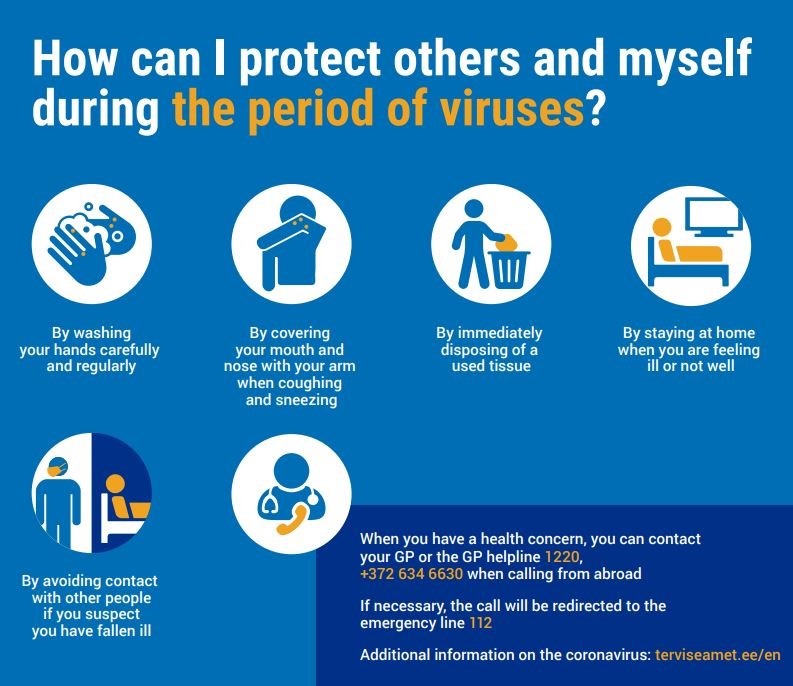 20 March 2020 – Former PM Ansip: No leading, no planThe former prime minister, European commissioner and a current MEP, Andrus Ansip, said in an interview with the Estonian daily, Eesti Päevaleht, that the government has shown no leadership. "There's no leading, no plan," Ansip said. "The chaos with testing is what describes the entire crisis." He points out that on 9 March, the health minister, Tanel Kiik, said that everyone will be tested. "This made the people feel that if they have symptoms or suspect they have been in the same room with an infected person, they will be tested. By now, however, the practice has changed and the GPs have been ordered not to test people younger than 65." "When people have returned from a risky country, they would want to take the test – they have sore throats, runny nose, a fever, but not the 37.8 degrees that somewhere has set as the limit – they're being sent from one place to another and they can't get tested." Ansip recommends the government tell people honestly that there are no test kits and they cannot perform more tests. "Or, that we don't have the money. Tell them that the World Health Organisation is wrong when it says, test, test, test."  20 March 2020 – Brussels on lockdownSilver Meikar, the political advisor to the Estonian MEP, Sven Mikser, has reported from Brussels, Belgium, that all stores in the Belgian capital are closed, apart from grocery stores, and people can only go out when they have a good reason. All meetings are banned, including visiting one's grandparents. The restaurants and pubs are closed since the last weekend, and schools have transferred to distance learning. As of Thursday, Belgium had 1,795 people infected with the coronavirus. 20 March 2020 – Tallink to reduce salaries by 30%The Estonian shipping company, Tallink, has told all of its Estonian employees that it's reducing everyone's salaries by 30% due to the coronavirus crisis and its economic affects. The pay reduction affects 3,900 people, both the workers on sea and on shore. The CEO of the company, Paavo Nõgene, takes a 50% salary reduction. The change is in effect, as of now, for two months. Estonian World has also heard about salary reductions in the Estonian media sector. 20 March 2020 – The virus is killing far more men than womenStatistics is showing that the novel coronavirus is killing more men than women. According to the Italian Health Research Agency, for example, over 60% of those infected with the virus and over 70% of those who have died are men. In South Korea, 61% of these infected have been women; however, the majority of fatalities – 54% – have been men. A study of patients in Wuhan, China, where the disease originated, up to two thirds of the patients were men. Another study from China indicates that 64% of the people who have succumbed to the virus were, again, men. "The honest truth is that today we don't know why covid-19 is more severe for men than women or why the magnitude of the difference is greater in Italy than China," Sabra Klein, a professor at Johns Hopkins' Bloomberg School of Public Health, told the Washington Post. "What we do know is that in addition to older age, being male is a risk factor for severe outcome and the public should be made aware." One of the issues may be, according to the newspaper, that men have more health risks to begin with. Men also drink and smoke more than women. 20 March 2020 – California, the world's fifth-largest economy, on lockdownThe US state of California – the most populous in the nation and the fifth-largest economy in the world – has issued a statewide stay-at-home order. The governor, Gavin Newsom, has ordered all residents of the state to stay home; the order will come into effect Thursday evening US time. "This is a moment where we need to have straight talk and we need to tell people the truth," Newsom said. However, the order will not be enforced by law enforcement, and the governor said he's relying on the social contract to keep people indoors. California is home to 39.5 million people. Earlier on Thursday, the news emerged that California was predicting 56% of its population – 25.5 million people – was to be infected with the novel coronavirus over an eight-week period. In a letter to president Donald Trump, Newsom asked for the USNS Mercy hospital ship to be deployed to the port of Los Angeles "to help decompress our current healthcare delivery system". So far, the US administration has sent another Navy hospital ship, the Comfort, to New York City, and has plans to send the Mercy to Seattle. Washington is one of the hardest-hit states in the nation with over 1,887 people infected and 68 dead. 20 March 2020 – Reuters: Russia's disinformation campaign to worsen the virus impactAccording to an European Union document, seen and reported on by Reuters, the Russian media has deployed a "significant disinformation campaign" against the West to worsen the impact of the coronavirus, generate panic and sow distrust. The document said the Russian campaign, pushing fake news online in English, Spanish, Italian, German and French, uses contradictory, confusing and malicious reports to make it harder for the EU to communicate its response to the pandemic. "The overarching aim of Kremlin disinformation is to aggravate the public health crisis in Western countries…in line with the Kremlin's broader strategy of attempting to subvert European societies," the document produced by the EU's foreign policy arm, the European External Action Service, said. The Kremlin denied the allegations on Wednesday, saying they were unfounded and lacked common sense. 19 March 2020 – The Health Board promises extended testingRight now, only the critically ill and other risk groups are being tested for the coronavirus in Estonia, including the elderly and people with chronic illnesses, according to the country's Health Board. Random sampling is reserved for people working in the frontier who might, if ill, infect patients in the risk groups while providing vital services. In the coming days, an extended testing will begin in eight cities on the basis of a referral from a family doctor, the Health Board says. "The first drive-in sampling site will open in Tallinn, in the upcoming days, such sites will be opened in Tartu, Pärnu, Kuressaare, Viljandi, Narva, Paide and Kohtla-Järve. In case of illness, people have to call their personal doctor, who will assess the patient's need for coronavirus testing," the Board added. Currently, 267 people have been diagnosed with the coronavirus in Estonia. Since 31 January, a total of 2,020 COVID-19 tests have been performed in the country. 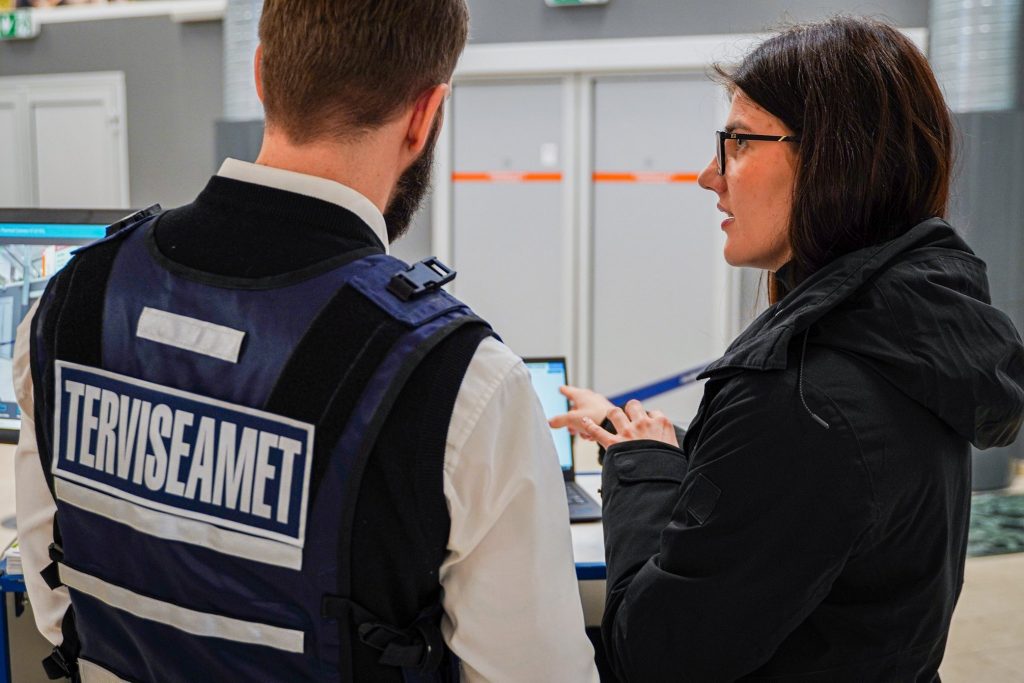 19 March 2020 – "Be smart, be safe, and stay home if you're sick. That's an order."Here's today's update from across the Atlantic, from our Chicago-based deputy editor-in-chief, Sten Hankewitz: "The United States now has over 10,000 coronavirus cases, and the State Department has recommended that Americans abroad either return home or stay in place. It raised its global travel advisory to level four, usually reserved for countries with war zones – meaning it advises against any travel, anywhere. Millions of Americans are still overseas. "Closer to home, Illinois now officially has 422 people infected with the coronavirus – 136 more than yesterday. Three more people have died, bringing the death toll to four. The village of Oak Park, just west of Chicago, issued a shelter-in-place order yesterday that will last from tomorrow until at least 3 April. The neighbouring villages of River Forest and Forest Park urge their people to comply as well. The order allows "essential services" to continue, such as health care operations, grocery stores, food banks, convenience stores and other similar establishments. This is all because one person in Oak Park tested positive with the coronavirus; however, today it emerged that two emergency room physicians at a hospital in Oak Park have also tested positive for the coronavirus. "In Chicago, the city ordered everyone who is either confirmed infected or is showing symptoms to stay home. The mayor, Lori Lightfoot, addressed the city in a prime-time speech today, where she said the authorities were tackling the virus and the threat it posed to the people. She also thanked all the health-care and other essential workers who are working to keep the city safe, and announced that all Chicago public schools will be closed at least until 20 April. 'Be smart, be safe, and stay home if you're sick. That's an order,' Lightfoot said, promising consequences to people who don't obey."  19 March 2020 – Estonian expat from NYC: Broadway is eerieDiina Tamm, an Estonian expat based in New York City, writes that the city that never sleeps has transformed into the city that's hibernating, and Broadway, usually one of the most vibrant places in the world, is quite eerie. New York state is currently the hardest-hit region in the United States. With a huge increase in testing over the last few days, the total number of coronavirus cases as of the morning of 19 March stood at 4,152 cases statewide – 2,469 of them in New York City.  19 March 2020 – Israel starts surveilling virus carriers to warn othersIsrael has started using mass surveillance tools to retrace the movements of coronavirus carriers and has already informed 400 people in contact with them that they must go into quarantine. The tracking programme, which is being conducted by the Shin Bet security service, aims to alert and order into quarantine people who, in the previous two weeks, were within two meters (seven feet) for 10 minutes or more of someone who turns out to have the virus. Self-quarantine for the virus lasts 14 days; thus, if the proximity incident was, say, 10 days earlier, those ordered into isolation would be required to stay there for four days. 19 March 2020 – Garage48 holds a hackathon to tackle the coronavirus crisisThe Estonian organisation, Garage48, together with Accelerate Estonia, has held an online hackathon to tackle the coronavirus crisis. From 13-15 March, over a thousand people from 14 timezones and 20 countries used the Garage48 method of hacking for 48 hours straight. 30 teams presented their working products on Sunday with a pre-recorded pitch over a webinar. 19 March 2020 – Special flights to Tallinn, Riga and Vilnius to bring people homeThe Estonian foreign ministry and Estonian representations abroad continue to cooperate with travel and transportation companies and with other countries to find and mediate solutions for bringing Estonian citizens and permanent residents home, and they have now come up with new options in addition to regular flights. 19 March 2020 – Foreign ministry's updated travel adviceAccording to the Estonian foreign ministry, many passenger transport companies have reduced the numbers of departures or even cancelled departures, but there are still travel options available for returning to Estonia. All travellers must remember that restrictions imposed by many countries can become even stricter at very short notice and be extended, so there will be less options for travelling. The foreign ministry has compiled a comprehensive guide on the current travel options for returning to Estonia. 19 March 2020 – Tallink to make additional voyages between Tallinn and HelsinkiThe Estonian shipping company, Tallink, will make additional voyages between Tallinn and Helsinki over the coming weekend. The company also pushed the last departure from Helsinki to 11:00 PM from today until Sunday. The line is serviced by the Megastar. Altogether, the company added four additional voyages – two more on Saturday and two more on Sunday.  19 March 2020 – Swedbank simplifies the grace period application processDue to the coronavirus crisis, Swedbank has decided to simplify the process of applying for a grace period. Both private and corporate customers have the option to apply for up to six months of the grace period (up to 12 months in the case of mortgage loans) should they experience any temporary payment difficulties. This allows customers to postpone the payment of principal loan payments. No additional conditions or fees apply. 19 March 2020 – Australia, New Zealand are closing bordersThe Australian government has decided to close its borders, starting midnight tomorrow. All non-residents will be banned from entering Australia from 9:00 PM Friday, 20 March. All Australians returning home from overseas will have to self-quarantine themselves for two weeks. Australia currently has over 800 confirmed cases of the coronavirus. "The overwhelming proportion of cases in Australia have been imported," the country's prime minister, Scott Morrison, said, adding that about 80% of the cases reported in Australia are the result of overseas travel or contact with someone returning from overseas. New Zealand is closing its borders even sooner – midnight tonight. The country's prime minister, Jacinda Ardern, said the spouses and children of citizens and residents are still welcome in the country, as well as key health workers and people travelling to New Zealand for humanitarian reasons. So far, the country has reported just over 24 confirmed coronavirus cases. 19 March 2020 – Estonian fund to prefer the ideas that help fight the virusPrototron, an Estonian fund for smart prototype financing, is welcoming solutions meant for the mitigation of the potential aftermath of the coronavirus in health care, industry, education and other sectors. "For our part, we would like to contribute to the state's and the start-up community's initiative in order to specifically provide additional support to the solutions for the mitigation of the aftermath of the COVID-19 pandemic. This is why all the appropriate ideas will automatically become eligible for the quarterfinal of the Prototron programme," the company's CEO, Jana Budkovskaya, said.  19 March 2020 – Italy's death toll is now bigger than China's – 3,405Italy's death toll from the novel coronavirus is now bigger than China's – altogether 3,405 people have died in the country, while in China, 3,130 have perished to the disease. On Thursday, the country announced 427 new deaths after Wednesday when 475 people had died. Most of those who have died in Italy had serious pre-existing conditions. Italy now has 41,035 coronavirus cases. The country's prime minister, Giuseppe Conte, has said he expected the limits to movement to be extended past the current 3 April deadline. 19 March – 2020 Addressing the coronavirus crisis like the Estonian startup communityThe Estonian startup community is teaming up with Mistletoe Singapore, the European Commission and other local and international supporters, to organise a 100-hour free online accelerator for startups with potential to have a strong impact on shaping today's and the post-crisis world; the mentors include the Estonian president, Kersti Kaljulaid and the cofounders of Bolt, Skype, Pipedrive, Veriff, Testlio and many others. The 100% online free accelerator, "Salto Growth Camp: EMERGEncy", led by the startup support network Salto by Lift99, will help 15 selected startups from all around the world to scale their product globally. The participating startups will be mentored by over 20 top-notch mentors, such as the Estonian president, Kersti Kaljulaid; a cofounder of Skype and Starship, Ahti Heinla; a cofounder of Bolt, Martin Villig; cofounders of Pipedrive, Ragnar Sass and Martin Henk; the founder of Veriff, Kaarel Kotkas; the government CIO of Estonia, Siim Sikkut; and many others.  19 March 2020 – Baltimore mayor: stop shooting each other!At the time where the entire world is trying to do whatever it can to stop the spread of the deadly coronavirus, some cities are encountering different – although related – problems. The mayor of the US city of Baltimore, MD, Jack Young, has told the city's residents to stop shooting each other so that hospital beds could be used for the coronavirus patients. On Tuesday, seven people were shot in Baltimore as the city reported its fifth positive coronavirus case the next day. "For those of you who want to continue to shoot and kill people of this city, we're not going to tolerate it," Young said. "We're going to come after you and we're going to get you. … We cannot clog up our hospitals and their beds with people that are being shot senselessly because we're going to need those beds for people infected with the coronavirus. And it could be your mother, your grandmother or one of your relatives. So take that into consideration." 19 March 2020 – Estonian government announces €2 billion stimulus packageDue to the coronavirus crisis, the Estonian government on Thursday announced it will support the local economy with a package worth at least €2 billion.  19 March 2020 – Chaos at the Hungarian bordersHungary announced on Monday, with a few hours' notice, that it will close its borders and limit all cross-border traffic to its own citizens. This led to the situation where on Wednesday, at the Slovakian-Hungarian border crossing point of Rajka, the line grew to be 93 kilometres (58 miles) and led to the Czech border. Hungarian citizens, too, are waiting in the line. According to AFP, the Hungarian authorities are, however, enforcing its border-closure rules arbitrarily – several Budapest-based foreigners have said they were allowed to enter the country, provided they had official Hungarian documents. An EU ambassador told AFP on the condition of anonymity that "there seems to be no clarity on who can enter or not". 19 March 2020 – Police to extend gun permits automaticallyThe Estonian Police and Border Guard Board will automatically extend the gun permits that are set to expire between 16 March and 31 May. Because of the emergency situation due to the coronavirus pandemic, people are unable to obtain medical certificates that are necessary to extend the gun permits, and therefore the police is automatically extending the validity of the gun permits. According to Postimees, the Estonian daily, the automatic extension will not oblige the gun permit owners to anything, and the extension will happen automatically in the police information system. Altogether, 1,100 gun permits are set to expire in March, April and May. 19 March 2020 – The New York Times: Estonia "better armored than others"The New York Times writes that Estonia is among the European countries that may be "better armored for epidemics than others". "European economies that depend on tourism, small businesses and supply chains may suffer the most. At the other end may be Estonia," the paper said. "The tiny Baltic nation, population 1.3 million, has one of the most dynamic economies in the eurozone. Growth last year was more than 4 percent, unemployment is less than 5 percent, and government debt is negligible, allowing plenty of room for fiscal stimulus." "Estonia is known as one of the most tech-savvy countries in the world, potentially a big advantage as the outbreak forces economic activity online. The software for Skype was written in Tallinn. Bolt, a ride-hailing, electric scooter and delivery service that is challenging Uber, is based there. But as the virus spreads, Estonia must also take care to protect those who haven't shared in the boom: More than a fifth of the population lives in poverty," the New York Times added. 19 March 2020 – US cuts red tape to develop vaccines and therapiesThe US president, Donald Trump, has announced his administration has cut red tape to develop vaccines and therapies "as fast as it can possibly be done" to prevent and cure the novel coronavirus. "Essentially we're looking at things to make people better, or at the earliest stages they didn't even know they had it," Trump said. "I've directed the FDA to eliminate outdated rules and bureaucracy so this work can proceed rapidly, quickly, and I mean fast." The FDA stands for the US Food and Drugs Administration. Currently, there is no treatment for the coronavirus, although the health authorities in China have said the Japanese flu drug, favipiravir, has proven to be effective in treating the coronavirus in early trials. 19 March 2020 – Mobile testing units introduced across EstoniaThe Estonian government (represented by the prime minister, Jüri Ratas; the foreign minister, Urmas Reinsalu; the interior minister, Mart Helme; the finance minister, Martin Helme; and the minister of social affairs, Tanel Kiik) held a press conference this afternoon. Some of the key points:
19 March 2020 – China reports zero new infectionsFor the first time since the coronavirus crisis started three months ago, China has today reported no new local infections. The virus has so far killed 3,245 people in China, which is over a third of the global toll. Eight people died on Wednesday. 19 March 2020 – Deserted city centreLooks like people really are staying at home. These images were taken by Anneli Ohvril on Wednesday afternoon in Tallinn's city centre, around the Freedom Square, which is usually heaving with people and has busy traffic – but not now. 19 March 2020 – Over 50% of Estonians with the virus are 30-49-year-oldsOver half of the Estonians who have been confirmed infected with the coronavirus are 30-49 years old; the elderly (65+) are only 11% of the infected, the Estonian Health Board says. According to its statistics, the people of 20-29 years of age are 8.1% of the infected, 5-14-year-olds 1.1% and 0-5-year-olds 0.8%. Altogether, 258 people have been confirmed infected with the coronavirus. So far, the health authorities have performed 2,020 tests in Estonia. As a reminder to the Estonian authorities, there are 1.3 million people in Estonia, which means only 0.16% of the Estonian people have been tested. 19 March 2020 – €750 billion to ease the impact of the pandemicThe European Central Bank has launched an emergency €750 billion package to ease the impact of the coronavirus pandemic. It will buy government and company debt across the eurozone. In the recent weeks, central banks and governments around the world have announced major stimulus plans. 18 March 2020 – Finland lets in Estonians with resident permits and workersFinland today announced that even though it's closing its borders from tomorrow, it has changed the conditions for entering the country, letting in all people who have a right of residence. This means 50,000 Estonians with a permanent right of residence and 20,000 Estonians with a temporary right of residence can continue to enter Finland, as well as those passengers who are transiting through Finland on their way back to Estonia from a more distant location. Entry is also allowed to those workers who have a valid contract of employment for working in Finland. Cross-border workers are not subject to Finland's quarantine rules; however, they must keep in mind that when going to Estonia from Finland after 17 March, a 14-day self-isolation is mandatory. 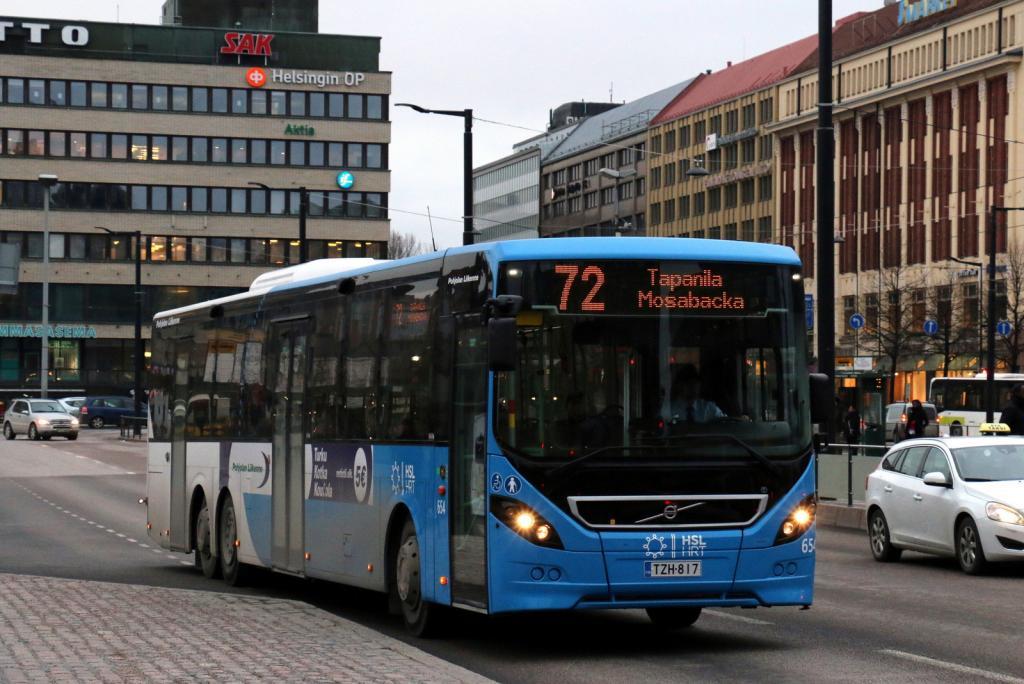 18 March 2020 – US update: stocks plummet, the Congress passes an aid packageHere's a daily update from across the pond by the Chicago-based deputy editor-in-chief of Estonian World, Sten Hankewitz: "The United States now officially has over 7,000 people infected with the coronavirus. The hardest-hit state is New York where 2,400 people have the disease, according to the confirmed data. New York City residents have been told to be prepared for a potential order to stay home. The novel coronavirus has now infected people in all 50 states and the capital, Washington, DC. "In my home state of Illinois, we saw the biggest surge of coronavirus infections in a day – 128 people tested positive since yesterday and now, Illinois has 288 of those infected with the virus. Some of the patients have recovered, but yesterday, the state and the city of Chicago saw their first resident to succumb to the disease – a 60-year-old Chicago woman passed away from the coronavirus. 'Make no mistake: no place and no person is immune from COVID-19. The difference between where we are in our response and where other nations are is just a few weeks. We must act with urgency. These numbers in Illinois will become much worse before they get better,' the governor of Illinois, J.B. Pritzker, said today. The mayor of Chicago, Lori Lightfoot, is planning to make a prime-time address on TV tomorrow to confront the crisis threatening Chicago. She will address Chicagoans to outline what she calls the comprehensive and proactive steps she has already taken to prevent the spread of the coronavirus in Chicago and preview measures she plans to take in the weeks ahead. "The stock market plummeted today for another day as the markets fear the crisis getting even worse. The Dow has lost all it had gained since president Donald Trump took office over three years ago, the S&P 500 and the Nasdaq followed suit – and all three indexes have now fallen 30% since their February highs. Some good news is coming out of Capitol Hill where both the House and the Senate approved a large aid package to enable free testing, funds for states and paid sick leave. It also provides USD1 billion in food aid to those who need and USD1 billion in unemployment funds to states. And the federal government is also planning to send money to Americans who may be struggling due to the crisis." 18 March 2020 – Support Estonian WorldSince you're here, we have a small favour to ask. Despite the harsh daily challenges we face as the independently run media outlet, Estonian World has managed to offer engaging content on a weekly basis since 2012 – but to carry on the work we started, we need your help. Unlike many media outlets, we haven't put up a paywall or distract readers with banner ads – we want to keep Estonian World open and free to read. Please consider helping us in our efforts. We'd be grateful for every level of support – here's how you can support us.  18 March 2020 – Japanese flu drug may be effective against the coronavirusChinese medical authorities say the Japanese flu drug, favipiravir, has proven to be effective in treating the coronavirus in early trials. They say they tested the antiviral drug on 340 patients and found it reduces recovery time and improves lung condition. The infected patients who were given the drug tested negative for the virus after a median of four days; those who were not treated, tested negative after a median of 11 days. The drug that is also sold under the brand name Avigan was developed by the Fujifilm Toyama Chemical in 2014. 18 March 2020 – Estonia opens a charter ship service to GermanyThe Estonian foreign minister, Urmas Reinsalu, announced at a press briefing that the country is opening a charter ship service between Paldiski, Estonia and Sassnitz, Germany, to help bring people stuck in Central Europe home. The plan is for the ship to do 15 return journeys. The ship that will cruise between Estonia and Germany will be the Star, one of the shuttle ships that until this morning was operated by Tallink between Tallinn and Helsinki. 18 March 2020 – UN: 25 million people could lose their jobsAccording to a new forecast from the UN International Labour Organisation, in a worst-case scenario, almost 25 million people worldwide may lose their jobs due to the coronavirus pandemic. The organisation estimates that between 5.3 and 24.7 million people could be out of a job, depending on how bad the economic effects are. Many countries have announced economic packages to try to offset the coronavirus impact, but the financial markets had another bad day today, which means that deep pessimism in the markets remains. 18 March 2020 – Tallinn-Moscow trains to be suspendedOn 20 March, the Tallinn-St Petersburg-Moscow trains will be suspended. The railway operator, Eesti Raudtee (Estonian Railways) was informed by the Russian railway company that the trains will be suspended due to the spread of the coronavirus. Already sold tickets will be bought back. 18 March 2020 – Emergency hotline now takes calls also from abroadStarting from 16 March, the Emergency Response Centre's hotline 1247 was launched to help answer key questions about the coronavirus COVID-19. The hotline operates 24/7 and is free of charge. Calls to the helpline can now be made also from abroad by dialling +372 600 1247 (rates for the calls are as per rates of the operator in the country where the call is made). 18 March 2020 – PM: 1,000 tests a day by the end of the weekPrime minister Jüri Ratas said today in the parliament that the government is planning to order 20,000 new coronavirus tests and if these tests arrive in the country by Friday, the health authorities should be able to test around 1,000 people a day by the end of the week. Currently, only around 300 people are tested each day. 18 March 2020 – Charter flights bring Estonians homeAs many Estonians have been stranded in different countries due to flight cancellations, reductions and border closures, the Estonian flight operators, Nordica and Xfly, are offering charter flights to help bring people home. The Estonian newspaper, Postimees, reports that today, the first charter will take off from Malaga, Spain, and another one from Stockholm, Sweden. According to the Nordica website, the adult ticket from Stockholm to Tallinn costs €150; the flight will depart at 10:00 PM local time. The flight from Malaga is already on its way back to Estonia. 18 March 2020 – Estonia 17th by per capita coronavirus figuresEven though Estonia isn't practically testing its people for the coronavirus – only older people (60+) and medical workers get tested; regular people are only tested if they have an immunity or health problem, or have been in direct contact with someone who tested positive – the country is still in the top 20 among 170 countries in the world by per capita coronavirus cases. According to the data accumulated on the worldometers.info website, Estonia currently has 194 coronavirus cases per one million people, putting the country 17th in the world. 18 March 2020 – The virus hits 200,000 markThe coronavirus has now officially infected 200,000 people around the world. It has killed over 8,000 people, mostly in China; over 82,000 have recovered. In the United States, the virus is now present in all 50 states and Washington, DC. 18 March 2020 – Nevada shuts down all its casinosThe world's gambling capital, Las Vegas, and Nevada, the state it's located in, has shut down all casinos for 30 days, the Nevada governor, Steve Sisolak, decided. The governor took the extraordinary action of shutting down all non-essential businesses in the state to help contain the coronavirus. The casinos were shut down at midnight Tuesday and other businesses have to be closed by noon today. 18 March 2020 – The Eurovision Song Contest is cancelledThe European Broadcasting Union has cancelled this year's Eurovision Song Contest. It was supposed to take place 12-16 May in Rotterdam, the Netherlands; Estonia was to be represented by Uku Suviste. 18 March 2020 – Register immediately for special transport home from central Europe, Tenerife, EgyptThe Estonian foreign ministry is asking citizens to register immediately for special transport home from continental Europe, Tenerife and Egypt. Continental Europe – in Germany, at the Port of Sassnitz, a special departure of Tallink's vessel Romantika is scheduled for tonight at 11:55 PM for Estonian, Latvian and Lithuanian citizens and permanent residents. The ship will arrive in Riga tomorrow evening at 11:55 PM and people are then allowed to proceed to Estonia. Book your tickets online. People are asked to keep in mind that restrictions on movement have been imposed on the Rügen Island in the state of Mecklenburg-Western Pomerania, where the Port of Sassnitz is located, and people must go through additional police checks to get on the island. For this reason, having regard to the 11:55 PM departure, local authorities advise against getting on the island before afternoon on Wednesday 18 March, while still making sure you have enough time to make the ship. German authorities have confirmed that Estonians heading for the ship would be allowed to pass through the police checks on their way to the island. Tenerife – active restrictions on movement are in force on Tenerife and flights are being cancelled. The Estonian foreign ministry recommends all Estonian tourists on Tenerife to contact their travel agents for finding a way to return immediately, or to prepare for an extended stay at their current location. Wris is offering a chartered flight from the Tenerife South Airport to Tallinn on 19 March (departure time is to be confirmed today) – the flight will go ahead on the condition that 90 passengers wish to board. To register or to receive an invoice, please email helina@wris.ee, listing the names of all passengers and one phone number per family. Egypt has announced it would close its airspace on 19 March. The foreign ministry is asking everyone who have not already booked a return flight to contact their travel agents (Estonian companies include Novatours or Estravel) to get on the return flights to Estonia. Due to potential sudden travel restrictions or disruptions to transport links, all Estonians who are currently travelling are asked to return home at the earliest opportunity or prepare for an extended stay at their current location. If you are stranded abroad and cannot find any options for returning, please send your details, the country you are currently in, and a description of your issue to konsul@mfa.ee or call +372 5301 9999 (24h). 18 March 2020 – Truckers stuck at the German-Polish border for up to three daysThe Estonian member of the European Parliament, Urmas Paet, said on Facebook that he received a very worrisome note from Estonian truckers who are forced to wait up to three days at the German-Polish border to continue their trips. "Also medicine and other necessary stuff are stuck there," Paet says, adding that the situation and the behaviour of the Polish authorities, hindering the operations of the European common market, is not acceptable. The truckers also said that at the Kalvarija border crossing at the Lithuanian-Polish border there are two border guards on duty; at the same time, two hundred trucks – engines and cabin heating on – are waiting to cross. "I passed the worry on to my colleagues in the European Parliament, the European Commission and the Council of Europe. I also hope the Estonian government will take steps together with other EU member states to fix the situation and that the movement of goods, including medicine, would not be hindered," Paet said. 18 March 2020 – Spring Storm to be minimisedThe annual Spring Storm military exercise will happen this year, but due to the coronavirus crisis, it won't be held in previously planned locations in Central Estonia, but mostly that the central polygon of the Estonian Defence Forces. It's more than possible that foreign military will not take part in the exercise, apart from the allied soldiers stationed in Estonia. The Estonian reservists will also not participate in the drill, apart from the ones who have volunteered. 18 March 2020 – A child's birth can be registered onlineStarting 19 March, parents can register the birth of their child online at rahvastikuregister.ee; the service is available to all parents, not only the ones who are married, as it was previously. The government is asking everyone to register the birth of their child online to avoid the coronavirus from spreading. Previously, people had to show up at their local town service centres to register a birth. 18 March 2020 – Switching to survival modeStella Soomlais, an Estonian fashion designer, whose company just lost around 80% of its revenues, is sharing her company's plan on how they're going to try and overcome the coronavirus quarantine and the loss of business and revenue due to that. 18 March 2020 – A note for Estonian e-residentsEstonian e-residents can request that their digital ID cards be kept for pickup for longer than six months at embassies and other collection locations in order to accommodate for global travel disruptions. 17 March 2020 – Foreigners in Estonia don't need to leave if their home country is restrictedForeigners who have legal basis for staying in Estonia as of 12 March and whose return to their home country is restricted, have a legal basis for continuing to stay in Estonia temporarily, the Estonian Police and Border Guard Board has said. "There is no need to submit an application regarding the extension of stay to the Police and Border Guard Board or to come to a police service office," it said. These foreigners whose return to their country of residence is not restricted, must leave Estonia before their basis of stay is expired. 17 March 2020 – The EU bans travellers from outside the blocThe European Union has banned travellers from outside the bloc for 30 days to help contain the spread of the coronavirus. The restriction will apply to 26 EU states as well as Iceland, Liechtenstein, Norway and Switzerland. Ireland is not affected by the ban as it's not part of the Schengen area. The ban will apply to all non-EU nationals from visiting the bloc, except long-term residents, family members of EU nationals and diplomats, cross-border and healthcare workers, and people transporting goods. The ban went into effect immediately. 17 March 2020 – Social isolation could last as long as 18 months – at least in the UKThe social isolation measures by the British public to contain the spread of the coronavirus may have to last for 18 months – until a vaccine for the virus is available, according to a study by the Imperial College. The report found that the most effective strategy to fight off the pandemic is suppression and it would require the entire UK population practice social distancing, self-isolation and household quarantine. These measures would have to maintained until a vaccine for the virus becomes widely available – but that may be as far as 18 months away. The study also says that the UK government's previous strategy – self-isolating the suspected infected people and their family members, but no action to be taken by the rest of the UK – could have resulted in up to 250,000 deaths in the country. Not all of these deaths would be from the coronavirus, as deaths from other illnesses that the National Health Service would be too overwhelmed to treat in the event of hospital overcrowding were also included. As of today, the UK has 1,950 people tested positive for the coronavirus. 71 people have died, the youngest 45 and the oldest 93. 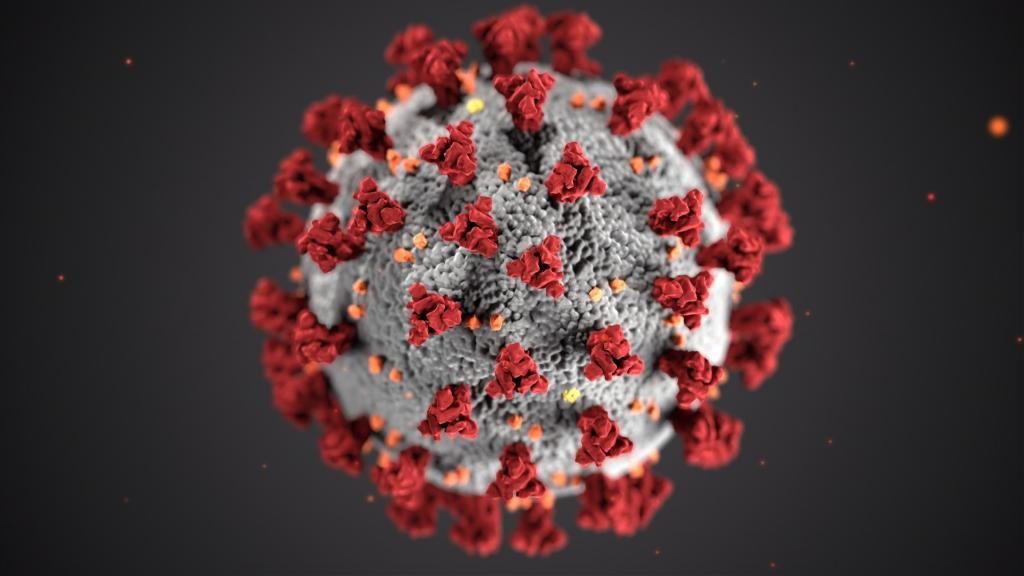 17 March 2020 – The coronavirus can persist in the air for hours, on surfaces for daysAccording to a new study by the National Institute of Allergy and Infectious Diseases, part of the U.S. National Institutes of Health, the highly contagious coronavirus can remain viable and infections in the air for hour and on surfaces for days, Reuters reports. Scientists who came up with the study tried to mimic the virus deposited from an infected person onto everyday surfaces, and then used a device to dispense an aerosol that duplicated the microscopic droplets created in a cough or a sneeze. They then investigated how long the coronavirus remained infectious on these surfaces – and the tests show that when the virus is carried by the droplets released when someone coughs or sneezes, it remains viable, or able to still infect people, in aerosols for at least three hours. According to the study, on plastic and stainless steel, the virus can be detected after three days. On cardboard, the virus was not viable after 24 hours; on copper, it took four hours for the virus to become inactivated. In terms of half-life, the researchers found it takes about 66 minutes for half the virus particles to lose function if they are in an aerosol droplet, meaning that after another hour and six minutes, three quarters of the virus particles will be essentially inactivated but 25% will still be viable, Reuters said. 17 March 2020 – Three people hospitalised, one's condition severeAccording to the Estonian Health Board, three people are hospitalised with the coronavirus. Two have a milder case, one's condition is more severe. The infected are hospitalised in Pärnu and Tartu. Just two days ago, on Sunday, only two people were in a hospital and their condition was satisfactory. 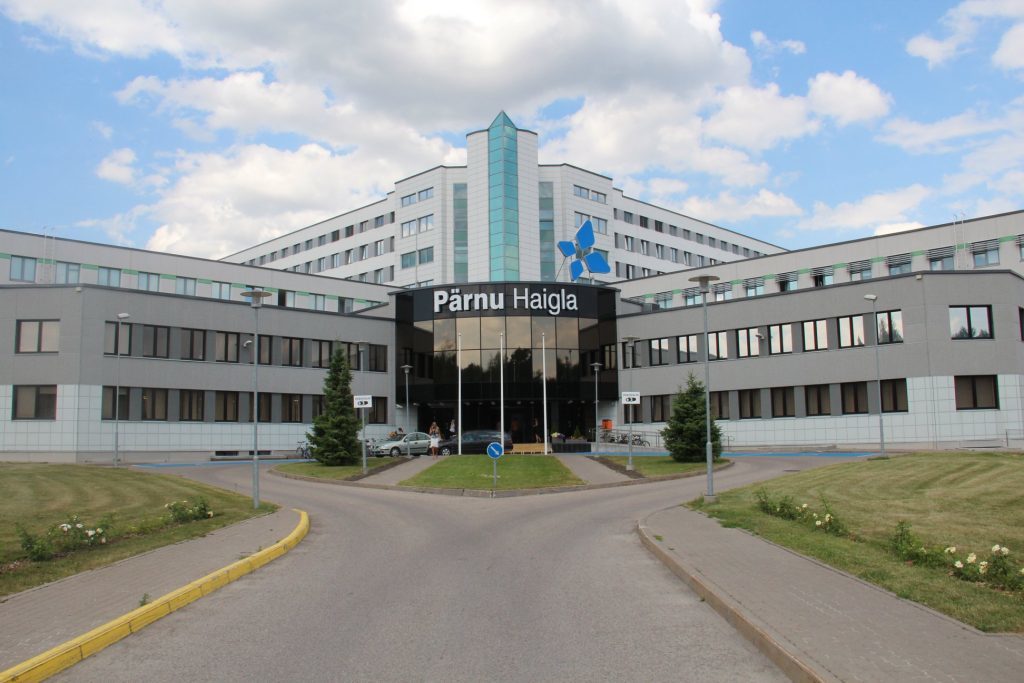 17 March 2020 – Emergency hotlineStarting from 16 March, the Emergency Response Centre's hotline 1247 was launched to help answer key questions about the coronavirus COVID-19. The hotline operates 24/7 and is free of charge. Estonian World tested out the hotline earlier today. Callers get directed to an automated message – first in Estonian, then in Russian. Unfortunately, there is no automated message in English. After a dial tone, you get a chance to speak to a customer service – if they don't speak English, they'll direct you to another person who does. While we were on the phone with the hotline, we asked if we could test for coronavirus. Answer – right now, they are only testing older people (60 and above) and medical workers with the virus. There is no testing for regular people, unless you have an immunity/health problem, or you have been in direct contact with someone who tested positive. Tests are conducted at peoples' homes. People are recommended first contact their family doctor (GP), who would tell what medication to take and give appropriate health advice. 17 March 2020 – Public transport in Tallinn is free for allPublic transport in the Estonian capital, Tallinn, is usually free for its residents. Now, during the coronavirus crisis, the city has made it free for all. For non-residents, there is no need to purchase tickets, and the municipal police does not perform ticket checks for the time being. By this measure, Tallinn wants to reduce the number of possible close contacts – both when buying a ticket and while checking the ticket by a municipal police officer. However, the city recommends that people carefully consider the necessity of going out and, whenever possible, use their own means of transport and prefer e-services whenever possible. Currently, Tallinn is not planning to reduce public transport services as this could lead to people being too close to each other in the case of crowded buses or trams.  17 March 2020 – Shuttle migration between Estonia and Finland to be suspendedAccording to a decision of the Finnish government today, Finland will close its borders at midnight 19 March; this means that from that moment on, shuttle migration between Estonia and Finland in its current form will no longer be possible, the Estonian foreign ministry said. All people who commute to Finland for work from Estonia must decide whether it is more important to stay in Finland to work or return to Estonia. "The Finnish Border Guard can allow border crossings for work only on substantial grounds. For example, for ensuring the movement of goods, or providing vital services," the Estonian foreign minister, Urmas Reinsalu, said. This category can include drivers transporting goods between Estonia and Finland, or medical staff. People must be aware that when entering Estonia from Finland (from 17 March), as well as on entry to Finland from Estonia (from 19 March), you must remain in isolation for 14 days. 17 March 2020 – From the US: New Yorkers could be forced homeThe Chicago-based deputy editor-in-chief of Estonian World, Sten Hankewitz, has an update from the United States: "Things are looking grim for ten million New Yorkers who, according to the city's mayor, Bill De Blasio, should be prepared for a potential order to stay home. As of this morning, NYC had 814 coronavirus cases, seven people have died. The pandemic in America's largest city has already closed businesses, restaurants and bars were ordered to only take delivery and pickup orders, and gyms, clubs, cinemas and concert venues are closed. "Elsewhere in the US, three states are holding presidential primaries today: Illinois, Arizona and Florida. In Chicago, people were lining up at polling stations this morning, trying to keep distance from each other but nevertheless showing up. One thing is certain, though – the primary turnout will be extremely low in all three states. "Otherwise, Chicago is still a ghost town, like many other cities in the US. Even party city New Orleans is facing its own difficulties as some entertainment venues have closed completely and some close early every night. Louisiana, where New Orleans is located, is hit pretty badly with the coronavirus with 171 cases and four deaths. In the US, at least 4,500 people have been infected and at least 88 have died." 17 March 2020 – Expat: make testing available to everyone who's symptomaticA Tallinn-based expat and a reader of Estonian World says that testing for the coronavirus should be widely available for those who already have symptoms – regardless of their age. "The number of infected people is likely underreported in Estonia and many other countries. It's no secret that all over the world, many countries are not making tests widely available. Perhaps because they do not have enough tests facilities available, and therefore want to only test the most risk groups (those who have traveled to risk countries and those over 60). And some countries also do not want to show high numbers (looking at you, Russia and Turkey). But in Estonia, I don't think there is any malice from the government in not showing the accurate number. They are simply not testing enough people. Even after they have symptoms. "It's not exactly clear to me yet who can get tested in Estonia at the moment. I have heard cases of people who had all the symptoms, had been in contact with people who are confirmed as being infected, and were refused to get tested because they are not over 60. These two individuals (in their early 30s) believe they got infected at a meeting on Monday, 9 March; by that time, the total official number of infected people in Estonia was only around 10. They got their first symptoms on Saturday morning, and now one of them is reporting difficulties breathing. The recommendations from the helpline is to stay home and talk to their family doctor. These two individuals had numerous encounters during the week before they started to feel sick. Can we get testing to be made widely available to those who already have symptoms regardless of their age?"  17 March 2020 – Tallinn kindergartens remain openThe Tallinn city government announced it continued to provide service in the kindergartens during the emergency situation. All of the city's municipal kindergartens are operational and follow strict guidelines in order to protect the health of children. "It is important that we can assure parents working in vital fields that their children are looked after, 24/7 if necessary," Vadim Belobrovtsev, a deputy mayor, said. "There may be some organisational changes in the work of kindergartens but at this moment, all of the kindergartens are ready to welcome children. But we monitor the situation constantly and are ready to act should there be a need to close a group or a kindergarten, but we will not close all of the kindergartens at once." In order to prevent the transmission of the infection, the kindergartens must take into account the restrictions set out in the Estonian Ministry of Education and Research guidelines for the provision of kindergarten and childcare facilities. Among other things, the transfer of children to a kindergarten must be arranged outside the building and people with any signs of illness are not allowed in the building. 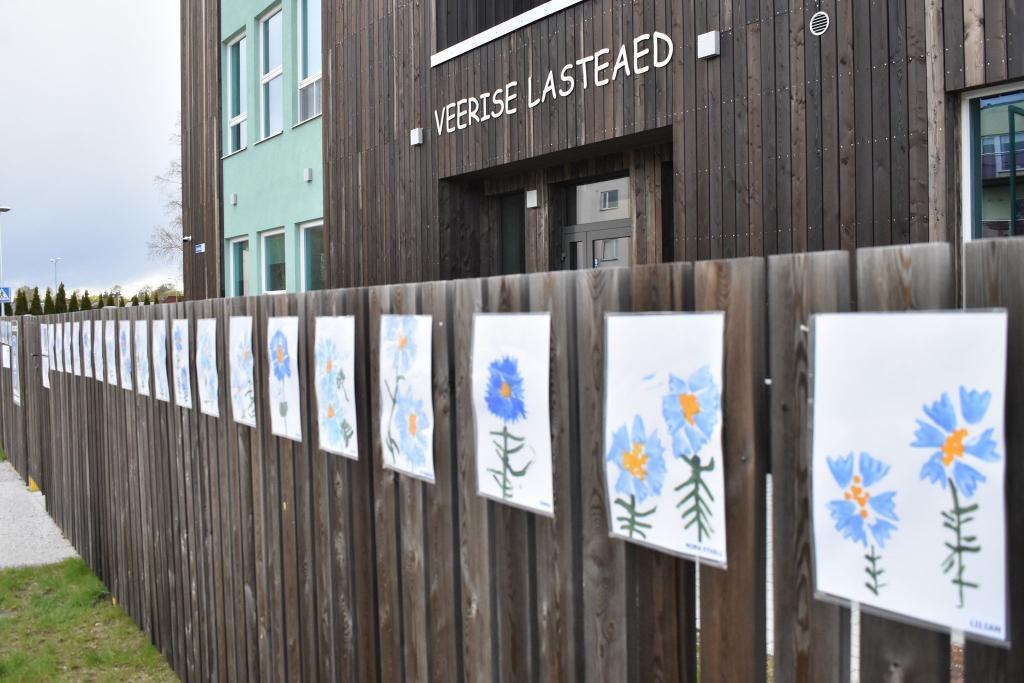 17 March 2020 – EW reader from Toronto: stores usher people out and closeThe premier of the Canadian province of Ontario, Doug Ford, has declared a state of emergency in the province, immediately ordering closured of gatherings of 50 or more people, including bars and restaurants except for take-out. Shopping malls, food stores, businesses, factories and construction sites remain open. A reader of Estonian World reports from Canada's largest city: "I'm downtown Toronto in a store and we got ushered out and then the doors locked. It's like a ghost town." 17 March 2020 – Tallink to cancel the Star's departuresThe Estonian shipping operator, Tallink, is cancelling the departures of its shuttle ship, the Star, between Helsinki and Tallinn. The ship will depart Helsinki on Wednesday at 7:30 AM and then remain in Tallinn. All the Star's departures will be cancelled for now. Tallink's Megastar will continue operating under its regular schedule. 17 March 2020 – Finland to close its borders on Thursday (UPDATED)The Finnish government has announced it's closing the country's borders on Thursday at 12:00 AM. The country is imposing border checks and closing many border-crossing points. For shipment of goods and accepting the returning passengers, only three airports will remain open – Helsinki-Vantaa, Maarianhamina and Turku. All other airports will be closed to the international traffic. The government is also banning travel abroad and imposing a two-week quarantine on everyone returning to Finland. For the Finns who are currently abroad, the government says now is the time to decide whether they want to come home. However, even with the closed borders, all Finnish citizens will have the right to come home any time. The country currently has 317 people infected with the coronavirus. 17 March 2020 – EU to ban entry to non-EU nationalsThe European Union is expected to suspend all travel into the passport-free Schengen area by non-EU nationals for at least 30 days to try to contain the coronavirus crisis. Permanent residents and their families, medical workers, coronavirus researchers, diplomats and cross-border commuters are exempted. The bloc is also guaranteeing continued free circulation of goods across the area.  17 March 2020 – Study: 86% of infected walk around undetectedAccording to a recent study, "stealth" coronavirus cases are fuelling the pandemic, with 86% of infected people walking around undetected. The scientists behind the study used computer modelling, tracking infections before and after the travel ban of the Chinese city of Wuhan and found that the undocumented infections with no or mild symptoms were behind two thirds of the reported patients. These stealth cases would then transmit the virus on to other people, some of whom may experience severe symptoms. 17 March 2020 – Airlines in crisisThe global aviation industry is in its biggest crisis yet due to the coronavirus pandemic – and the global group of researchers and analysts, called the CAPA Centre for Aviation, has predicted that "by the end of May, most world airlines will be bankrupt". So far, Delta has reduced its capacity by 40% and United by 10-20%. American Airlines have cut its international passenger capacity by 75%; Lufthansa Group – the parent of Lufthansa, Austria, Swiss and Brussels Airlines – has suspended most US service and Austrian will stop flying altogether from 19-28 March. The low-cost Norwegian will gradually cancel most of its flights. International Airlines Group – the parent of British Airways, Iberia, Aer Lingus and Vueling – will reduce capacity by at least 75%; SAS has temporarily suspended most operations. Many other airlines around the world is following suit by either reducing capacity or suspending operations altogether. And the Italian government has renationalised the country's flag carrier, Alitalia. 17 March 2020 – Estonia's borders are closedFrom today, the only people to be allowed into Estonia are the citizens of the country, the Estonian "grey passport" holders (Estonian Russians and other resident aliens with undefined citizenship), the permanent residents, the temporary resident permit holders, and the foreigners whose family members reside in Estonia. The state also allows foreigners who are transiting through the country to enter, provided they don't have any coronavirus symptoms. Estonia is also allowing in or through international goods transport and people providing a vital service – like medical personnel – if they don't have coronavirus symptoms. Upon arrival on the border, people are asked to fill in this form.  17 March 2020 – Northern California tells seven million people to stay homeSeven counties in Northern California, around Silicon Valley where most of the world's startup industry resides – and what is also home to many Estonian startups and entrepreneurs – have ordered their residents to stay at home, beginning today. This is the strongest directive in the US yet where around seven million people have effectively been curfewed. The residents of Alameda, Contra Costa, Marin, San Francisco, San Mateo, Santa Clara and Santa Cruz counties can only go out to meet "essential needs". All these counties make up most of the San Francisco Bay Area. In addition, the governor of California, Gavin Newsome, has told all the state's residents older than 65 to stay home, and called for bars, night clubs and wineries to be closed. California is the most populous state in the union with an economy bigger than the United Kingdom's. 17 March 2020 – Russia is closing all cultural venuesThe Russian ministry of culture has ordered the closure of all cultural venues – this means museums, exhibitions, theatres, concert halls, circuses and cinemas – due to the coronavirus crisis. In Moscow, the mayor, Sergey Sobyanin, has banned all mass events of 50 or more people. The ban is in effect at least until 10 April. According to the official figures, Russia currently has 114 people infected with the coronavirus. 17 March 2020 – No booze after 10PM, even at a barThe Estonian government has extended the night-time alcohol sales ban to all restaurants, pubs, bars and other dining and lodging facilities. Starting from tomorrow, alcohol can only be sold between 10AM and 10PM; booze sales between 10PM and 10AM is banned until the end of the emergency situation. According to the government, the ban is necessary to avoid instances where people drink too much and therefore strain both the medical system and police work during the emergency. So far, only stores were banned from selling alcohol between 10PM and 10AM, all bars and dining facilities were exempt from the ban. 17 March 2020 – The state to compensate people's salaryThe Estonian government promises to compensate at least 70% of the salary of the people who have not been able to work due to the coronavirus crisis. This applies to people who have either been laid off, quarantined or have other economic hardship because of the crisis. At first, the state is compensating the people for the first two to three months. The state is also considering paying sick pay for the first three days of illness – currently, people who fall sick, don't get sick pay for these days.  17 March 2020 – Courts to use written procedures and technical solutionsThe Estonian Council for the Administration of Courts is recommending the country's courts use written procedures and technical solutions during the coronavirus crisis. Under the guidelines, courts, where possible, will handle cases in writing. If a hearing has already been determined, the court will contact the parties concerned and inform them of the further course of the proceedings. If possible, the hearing can be postponed and resumed after the end of the state of emergency. If the case cannot be adjourned, the court shall conduct the hearing or other procedural act by technical means of communication. If also this is not possible, the judge will decide whether to hold a hearing, depending on the circumstances of the particular case. 17 March 2020 – Special cruise to return Estonians from Germany (UPDATED)The Estonian shipping company, Tallink, is arranging a special cruise to Sassnitz, Germany, to help the Estonians stuck in Germany to return to Estonia. The ship will depart from Riga today at 8:00 PM, carrying cargo and the Germans who have been stuck in Latvia. Tomorrow night at 11:55PM, it will depart Sassnitz with all Estonians and Latvians and their cars, and sails to Riga, according to the Estonian foreign ministry. The trip will take 24 hours and the ship will arrive in Riga on Thursday at 11:55 PM. The tickets can be purchased on the Tallink website and the price is symbolic; however, it is mandatory to purchase the ticket before the ship departs. All passengers will be accommodated to cabins and there is food available for purchase. 17 March 2020 – The last opportunity to return to Estonia via FinlandThe Estonian foreign ministry is reminding people that today is probably the last opportunity to return to Estonia via Finland, before the Finnish borders close. The ministry is urging people who are planning to return home from Finland to do so immediately. The Finnish parliament plans to declare a state of emergency on 18 March, which may include restrictions on the movement of people, the closing of borders and quarantine of those entering. As of 17 March, the Estonian shipping company Tallink still operates Helsinki-Tallinn and Tallinn-Helsinki routes as well as a freighter on the Muuga-Vuosaari route. From Helsinki to Tallinn, the Tallink shuttle ships Star and Megastar are currently still available. Tickets can be booked on the Tallink website.  17 March 2020 – US hospital develops a quick coronavirus testA hospital in Evanston, IL, has developed a coronavirus test that can provide results in just a few hours. The test, created in the Molecular Lab at North Shore University, was first used last Thursday, and up to now, the lab has conducted 400 tests, with 10% testing positive for the covid-19 virus. So far, the test has been used mostly for the North Shore University patients, but it has been made available for patients at other hospitals, too. This gives hope to all countries around the world who have faced a shortage of the coronavirus tests. 17 March 2020 – Defence League members enlistedEstonia sends 150 members of the country's Defence League to support the Police and Border Guard in reintroducing the border control. The Defence League members will primarily support the police at Estonia's southern border by helping with the temporary closure of roads and assisting police officers at border crossing points. The Estonian Defence League is a voluntary national defence organisation. Its main mission is to enhance the readiness of Estonia to defend its independence and its constitutional order, including in the event of military threat. The paramilitary organisation has over 15,000 active members.  17 March 2020 – Supporting local jobs and businessesKaupo Kalda, an Estonian photographer and designer, highlights ten ways to support local businesses and jobs during the coronavirus crisis. 17 March 2020 – The virus of fearThe panic that often occurs during a health crisis or in the aftermath of a natural disaster can – and has – led to spasms of irrational violence; the lack of truthful public information can lead to conspiracy theories, which become lethal when politicians or the media deliberately stir them up, writes Ian Buruma, a Dutch writer and editor. "What is needed is expertise, international cooperation and words from our political leaders that seek to calm fears." 16 March 2020 – Scientists: likely five to ten undetected cases for every confirmed oneThe scientists who are tracking the spread of the coronavirus reported today that, for every confirmed case of the virus, there are most likely five to ten people in the community who also are infected. These cases are often milder and about half as infectious as confirmed ones, but, the scientists warned, they're responsible for nearly 80% of new cases, the New York Times reports. "If we have 3,500 confirmed cases in the US, you might be looking at 35,000 in reality," Jeffrey Shaman, an epidemiologist at Columbia University, said. If this formula is applied to Estonia, the country may have as many as 2,050 infected people – as of this morning. 16 March 2020 – WHO chief: test, test, testThe director-general of the World Health Organisation, Tedros Adhanom Ghebreyesus, has criticised some nations for not doing enough to detect and contain the coronavirus. "We have a simple message for all these countries: test, test, test. Test every suspected case. If they test positive, isolate them and find out who they have been in contact with two days before they developed symptoms and test those people, too," he said. "For any country, one of the most important things is the political commitment at the highest level. All countries should be able to test all suspected cases. They cannot fight this pandemic blindfolded; they should know where the cases are." Currently, over 174,000 people across the world have been infected with the coronavirus. 16 March 2020 – The borders will close midnight tonightToday's the day – the Estonian borders will be closed as of midnight tonight. When the clock strikes 12:00 AM, the only people to be allowed into Estonia are the citizens of the country, the Estonian "grey passport" holders (Estonian Russians and other resident aliens with undefined citizenship), the permanent residents, the temporary resident permit holders, and the foreigners whose family members reside in Estonia. The state also allows foreigners who are transiting through the country to enter, provided they don't have any coronavirus symptoms. Estonia is also allowing in or through international goods transport and people providing a vital service – like medical personnel – if they don't have coronavirus symptoms. 16 March 2020 – Finnish president calls for solidarity with people who serve othersThe Finnish president, Sauli Niinistö, has said in an interview with the leading newspaper in Finland, Helsingin Sanomat, that the world is about to change due to the coronavirus. As Finland is about to enter its own state of emergency, the country's president notes that while the society is dealing with it, every person also has a lot of responsibility. "Our everyday life changed. We know where the limits of the society run, but a person's responsibility doesn't have limits. One element of responsibility is whether you take it only for yourself and those close to you, or do you see that unless others succeed, your own success will end, too." Niinistö is hoping to see the people's solidarity especially towards them, who run the risk of getting sick while doing their jobs – for example, the medical workers, but also the cashiers in grocery stores. "Everyone can imagine for themselves, how it is to be in contact with people, when at the same time it's recommended to avoid contact," he said, adding that even though the customer is used to being king, now people have to adjust to the crisis situation. "It's important now that the people who are in the centre of other people's lives, they can do their jobs well. It's very important that everyone behaves as a customer in a way that the continuation of services will continue."  16 March 2020 – Enough food for one-two monthsAccording to the Estonian Food Association, domestic food producers and food industries are currently able to ensure the supply of food in Estonia for at least one-two months, the government said in a statement. "Sufficient supplies are also available in store warehouses and government reserves. Thus, there is no reason to fear food shortages and to stockpile of excess food supply," according to the government. 16 March 2020 – America is closing schools and pubsHere's an update from our Chicago-based deputy editor-in-chief, Sten Hankewitz: "America is finally starting to take the threat of the coronavirus more seriously. President Donald Trump announced that people should avoid groups of more than 10, going to the bars and restaurants and that they shouldn't travel. Schools are closing all across the country, including all schools in Illinois, starting tomorrow. Chicago, a formerly bustling city of three million people has turned into a ghost town. In Indiana, over two thirds of the state's public schools are closed. Illinois has also ordered all bars and restaurants to be closed for dining in, starting tonight – and so did Indiana. Delivery and pickup will be available at the restaurants that offer it. In Chicago, several hospitals are no longer allowing most visitors. The United States has altogether over 4,000 people who have tested positive with the coronavirus; however, relatively few Americans have been tested. And out stock market plummeted about 12% today in what was the worst day of trading since the October 1987 crash." 16 March 2020 – Convoy through Poland cancelledEven though the Estonian foreign minister, Urmas Reinsalu, said yesterday that he had come to an agreement with the Polish and Baltic foreign ministers to escort the Estonian citizens and residents who are stuck at the Polish-German border through Poland today, it has turned out that the convoy was cancelled. The foreign ministry tonight sent a message to the Estonians at the Polish-German border, telling them that Poland still won't allow them in the country. Now, the only options for these people to get home is by ferry to either Klaipeda, Lithuania, or Stockholm, Sweden. For that, the people will have to drive 450 kilometres (281 miles) from Frankfurt (Oder) to Kiel. At least 73 people had let the foreign ministry know they would like to come home from Germany. 16 March 2020 – France goes into lockdownFrance is introducing sweeping measures to contain the coronavirus pandemic – the country will go into lockdown from tomorrow midday, the French president, Emmanuel Macron, said. All non-essential movement will be banned for 15 days, people have to stay at home. The army will be deployed to help transport the sick to a military hospital in Alsace, near the German border. France is also closing its borders and postponing the second round of the local elections. However, Marcon promised that no business, regardless of its size, will be allowed to fail. "We are at war," the president noted. 16 March 2020 – Valga-Valka border subject to exceptionsThe Estonian government has extended an exception for the Valga-Valka border crossing in southern Estonia, on the Latvian border, to allow people who live in the twin town to freely travel between work and home. Only people without symptoms of illness may cross the border. The exception also allows for the area to function as normally as possible in the emergency situation, which also means keeping economic damages as low as possible. 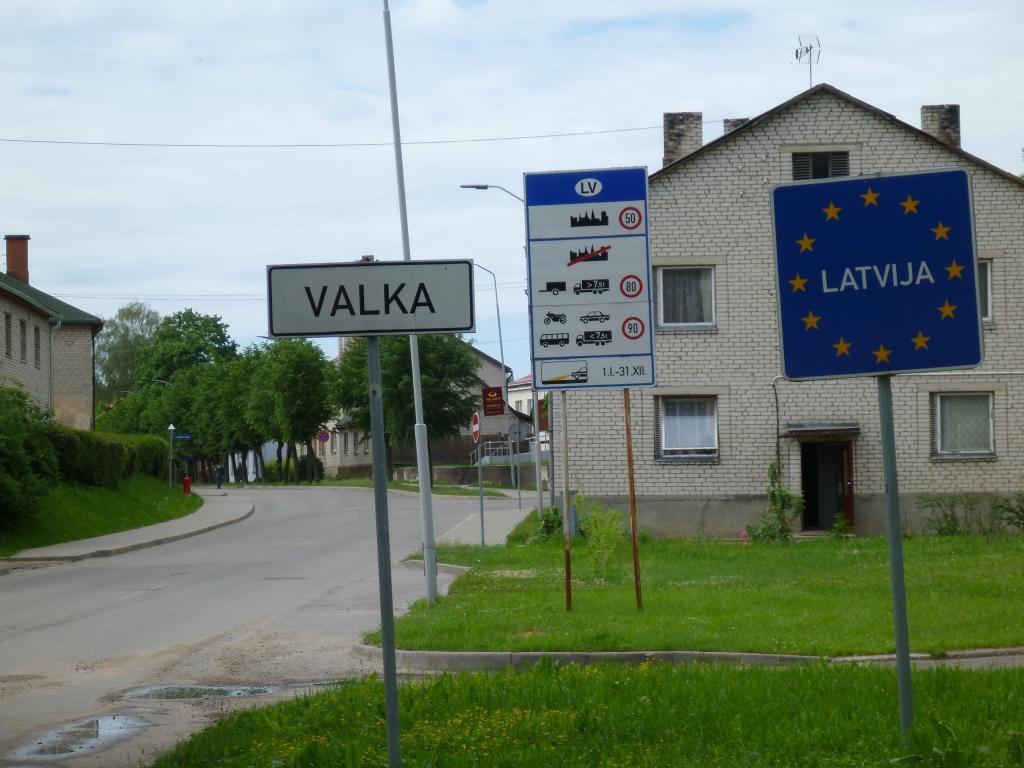 16 March 2020 – Support measures for companiesThe Estonian government is working on support measures for companies affected by the coronavirus pandemic. The country's prime minister, Jüri Ratas, met with the representatives of business organisations today to talk about the economic impact of the virus and the mitigation measures being analysed by the government. The businesspeople attending the meeting felt that protecting the people's health as well as their financial security, supporting job retention and preventing a wave of bankruptcies and job losses were the key. 16 March 2020 – Estonians being evacuated from EgyptThe Estonian foreign minister, Urmas Reinsalu, said on Facebook that Egypt is closing its air space on 19 March, and the Estonian travel companies have started evacuating Estonians from Egypt. "Today, two planes landed in Egypt, tomorrow there should be three," Reinsalu said. "All Estonian people who are in Egypt and haven't been contacted by their travel agency and informed them about the evacuation, please send an email with your information and location to konsul@mfa.ee." 16 March 2020 – Russia closes its bordersThe Russian government has decided to restrict the entry of foreigners into the country due to the spread of the coronavirus. The entry of foreign citizens and stateless persons will be banned from 18 March to 1 May. This most likely also applies to the Russians living in Estonia who are not Russian citizens (the so-called "grey passport" holders). Official delegations, diplomats, international truck drivers and ship, aircraft and train crews are exempt from the ban. In addition, holders of private visas issued in connection with the death of a close relative and transit passengers will be able to enter the Russian territory. According to the official figures, 93 people have been infected with the virus in Russia. 16 March 2020 – Two-week isolation on everyone arriving in EstoniaThe Estonian prime minister and the chief of the emergency situation, Jüri Ratas, has ordered a two-week restriction of movement for people arriving in Estonia from abroad: from the day of arrival in Estonia it is prohibited for the person to leave home or place of stay during 14 days. "Within the two weeks after arrival in Estonia, the person can leave home or place of stay only at the request of medical worker or police or in case of an emergency that is threatening the person's life or health," the Estonian government said in a statement. As for the implementation of the self-isolation rule, the government is assuming the people are behaving according to the law and responsibly and are obeying the government's orders. Police will randomly check whether the people are obeying the order and if one gets caught breaking it, they can be fined up to €2,000. 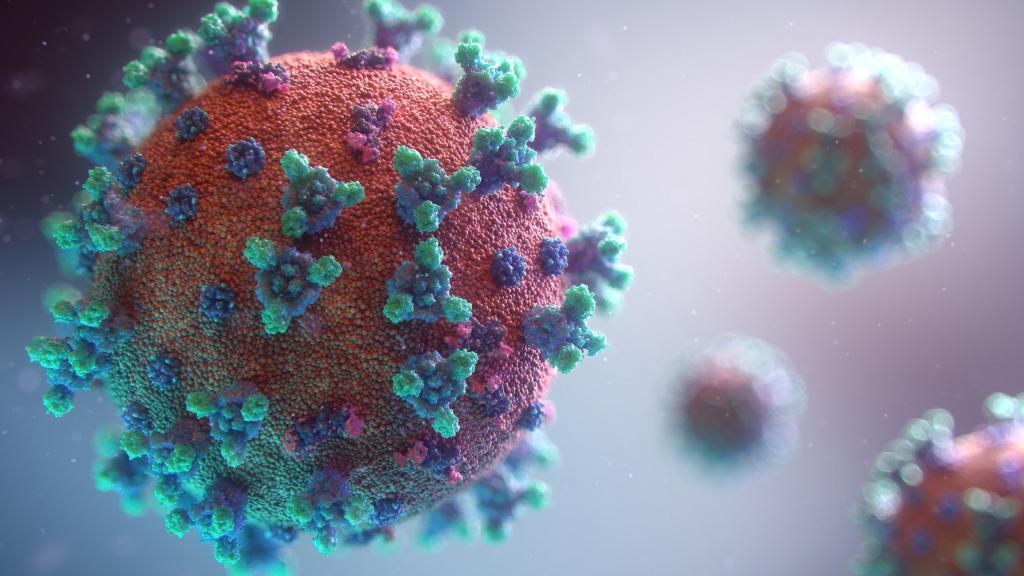 16 March 2020 – Canada closes its bordersCanada today announced it's closing its borders to most people who are not Canadian citizens or permanent residents amid the global coronavirus pandemic. American citizens and diplomats are exempt from the entry ban. Air operators are ordered to ban all passengers who are presenting coronavirus symptoms; starting Wednesday, only four airports in Canada – Toronto, Vancouver, Calgary and Montreal – will be accepting international flights. The Canadian prime minister, Justin Trudeau, said that Canadians abroad should come home and self-isolate themselves for 14 days. Trudeau himself has been in self-isolation since last week as his wife tested positive for the virus. 16 March 2020 – Hungary closing its borders; Denmark allows Estonians to pass throughThe Estonian foreign minister, Urmas Reinsalu, said in a Facebook post that Hungary has notified it is closing its borders; the Portuguese-Spanish border has also been closed as of today. The Danish foreign minister, however, has assured Reinsalu that Estonians can transit through Denmark to Sweden by their own cars. "Sweden currently isn't planning to impose any restrictions for entering," Reinsalu said. "Transit through Lithuania for the Estonian citizens is possible until the midnight of 19 March. I'm working to postpone that deadline." The minister also said he spoke to the CEO of Finnair, the Finnish flag carrier, and asked him to continue flying to Tallinn. "There was no positive feedback," he admitted. 16 March 2020 – Expat: Estonia should do risk assessmentManan Anwar, Tallinn-based Pakistani expat, thinks Estonia is in a very good position to do a risk assessment impact of the coronavirus and prevent deaths of at-risk citizens. "The complete health data base is online. We can take the data from of the spread from China and Italy to find out the demographics and health conditions of deceased. For example, two variables could be age and respiratory conditions. Adding a few more variables and running a simulation would give the complete biodata of the risk group. The government can then partner with local volunteer groups to make sure these people are taken care of. The government can also do targeted testing of these groups," he told Estonian World. "This would give the government preemptive numbers of the severity of crisis at peak. At best, it will prevent deaths of citizens. At worst, it will make sure we are able to adequately focus our resources when we hit the peak of crisis in three-four weeks. Estonia has spent a lot of effort and infrastructure on e-health solutions. It's time to put it to good use. This can be a great example for the world to learn from Estonia and then implement similar solutions. But the government has to act now. It's a matter of hours, not even days," Anwar said.  16 March 2020 – UK urges people to stay home, avoid social contactThe British prime minister, Boris Johnson, said today that anyone who lives with someone who has a cough or a fever should stay home for 14 days. People should also avoid pubs, clubs, theatres and other social venues. "Now is the time for everyone to stop non-essential contact with others and to stop all unnecessary travel," Johnson said. He also noted that London was a few weeks ahead in terms of the virus curve than other places – meaning transmission is happening more rapidly. Because of that, those in the capital need to be especially cautious. The prime minister also warned that the UK was approaching the "fast growth part of the upward curve" in the coronavirus outbreak, and without "drastic action", cases could double every five to six days. As of this morning, the UK has 1,543 confirmed coronavirus cases. 16 March 2020 – President discusses the situation with regional leadersThe Estonian president, Kersti Kaljulaid, spoke today online and over the phone with her colleagues from Finland, Latvia, Lithuania, Poland and Russia. The discussions focused on the developments of the coronavirus-induced crisis and the measures taken to contain the virus. Another topic was how to ensure the most effective way of bringing everyone's citizens home. The presidents reached a joint understanding that it's imperative to ensure the movement of goods across borders. Kaljulaid and her Russian counterpart, Vladimir Putin, also discussed the need to ensure the fast arrival home of all citizens and residents, and they agreed to continue to communicate quickly and operatively when necessary. 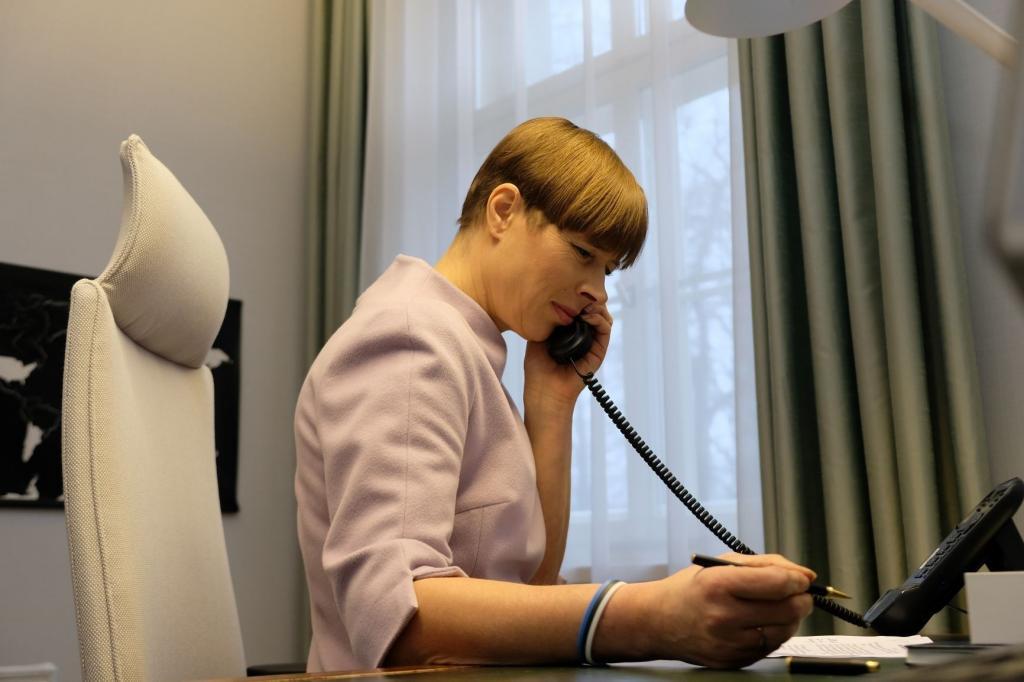 16 March 2020 – Europe proposes a 30-day travel banThe president of the European Commission, Ursula von der Leyen, has proposed a temporary suspension of non-essential travel to the European Union for 30 days to help contain the spread of the coronavirus. The restrictions are subject to approval by all EU leaders. According to Von de Leyen, the suspension can be prolonged as necessary after the initial 30-day period. 16 March 2020 – Aeroflot to suspend flights between Tallinn and MoscowThe Russian flag carrier, Aeroflot, is to suspend all flights between Tallinn and Moscow from 19 March at least until 30 April. All passengers who have booked a flight after 19 March are asked to contact the customer service of Aeroflot or their travel agent as soon as possible.  16 March 2020 – Finland to close its bordersFinland is preparing to close its borders and schools and limiting public gathering of more than 10 people to contain the spread of the covid-19 coronavirus. The Finnish people who are currently abroad should return home, and people at home shouldn't travel abroad, the Finnish prime minister, Sanna Marin, said. Museums, theatres, the National Opera, libraries, gyms, pools and clubs will be closed, too. 16 March 2020 – Estonia suspends issuing Schengen visasThe Estonian foreign ministry is temporarily suspending the admission of applications for Schengen visas and long-stay visas to Estonia at the country's embassies and visa centres due to the spread of the coronavirus. The suspension will go into effect on 17 March. By exception, visa applications can be submitted on humanitarian grounds (illness or funeral of a close relative), for transporting goods or raw materials, for providing medical or other services essential for the resolution of the emergency, as well as by individuals whose parent, child or spouse is an Estonian citizen or holds an Estonian residence permit or right of residence, the foreign ministry said. During the emergency situation, previously issued and valid visas cannot be used to enter Estonia. 16 March 2020 – FM: Travelling is very difficultThe Estonian foreign ministry has published an emergency travel information bulletin where it notes that travel was becoming very difficult and the circumstances continued to deteriorate in real time. Aiming to contain the rapid spread of the coronavirus, several countries have imposed restrictions on entry and several flight operators are also restricting operations. "We are asking you to keep in mind that you should definitely postpone any plans to travel abroad from Estonia at this moment," the Estonian foreign minister, Urmas Reinsalu, said. "If the country of destination has closed its borders or international transport has been suspended, please contact the foreign ministry or the Estonian embassy. The Estonian state is doing its best to ensure the safety of Estonian people and we are working on finding solutions to the emergency." 16 March 2020 – Tallink closes hotelsThe Estonian shipping company and hotel operator, Tallink, is temporarily closing three of its hotels, two in Tallinn and one in Riga, Latvia. The hotels to be shut down are the Tallink City, the Tallink Spa & Conference and the Tallink Hotel Riga. The Tallink Express hotel in Tallinn will remain open and people who have booked their stay at the two other Tallink hotels in Tallinn will be accommodated there. 16 March 2020 – Chancellor of Justice: the constitution is still validÜlle Madise, the Estonian Chancellor of Justice, said in an interview with the Estonian Public Broadcasting that people's freedoms and rights can't be overly restricted even when the state has imposed an emergency situation. She pointed out that even now, it's the parliament's job to lead the nation and the parliament cannot delegate that role to the government. "The constitution is still valid, even now, so the harshness of all measures needs to be very precisely weighed," she said. Madise also recommends people to think for themselves and clearly. "The purpose of the restrictions and orders imposed is that people would interact with others as little as possible and we could curb the contagion of the virus. … When people themselves are reasonable, then we probably don't need a so-to-speak curfew, which isn't warranted. But if people themselves won't understand that right now, it's time for self-isolation, to avoid contacts, then who knows." 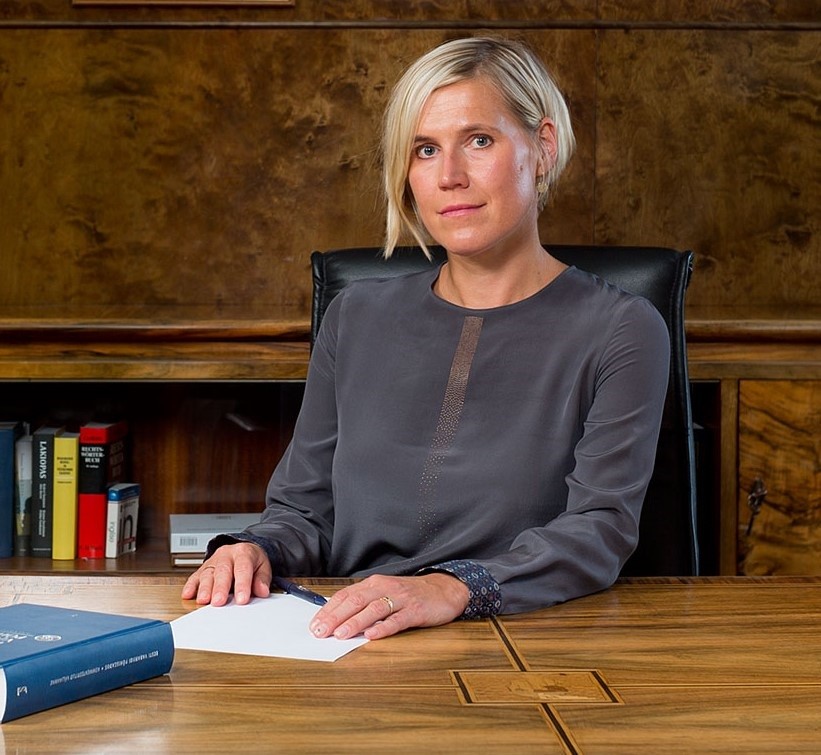 16 March 2020 – Global movement urges people to stay homeA global movement, called #staythefuckhome, is urging people to stay home amid the global coronavirus pandemic to give the virus fewer chances of spreading. "Our governments are only slowly implementing measures to control the spread of SARS-CoV-2 and containing the COVID-19 pandemic. Slow reactions, public appeasement policies, and their urge to stabilize the economy have kept them from taking the measures needed to protect millions from this disease. However, it is not only the government's burden to bear. It is time for us, as citizens of this earth, to take action now and do our part in fighting COVID-19," the movement's website is urging. 16 March 2020 – Free educational toolsEstonia announced it is willing to share all its digital education tools for free to support other countries' education systems during the coronavirus crisis.  16 March 2020 – "Wave, because you care"The Estonian president, Kersti Kaljulaid, has called upon people to light a flashlight tonight at 8:00 PM (EET) and wave it at your home window to support the people who are working day after day at the front line of keeping the society circulating. "We can show that we care and it affects us how our neighbour and the people of our street and our courtyard are doing." She's calling the flashlight campaign "Wave, because you care".  16 March 2020 – Preserving rights and freedomsEvelin Tamm, a Sweden-based Estonian artist, activist and freelance journalist, writes that amid the ongoing coronavirus crisis, Estonia and many other European countries are imitating methods typical of totalitarian states – but what about the smart decisions that will help the society as a whole to respond adequately to the threat of the pandemic and the economic crisis, while preserving democracy, the rule of law and our rights and freedoms today? 16 March 2020 – Coronavirus is killing globalisationThe coronavirus is killing globalisation as we know it, writes Philippe Legrain, the founder of OPEN, an international think tank on openness issues, and a senior visiting fellow at the London School of Economics' European Institute. "The outbreak has been a gift to nativist nationalists and protectionists, and it is likely to have a long-term impact on the free movement of people and goods," he writes in the Foreign Policy magazine. "As a result, the coronavirus crisis threatens to usher in a less globalized world. Once the pandemic and panic abate, those who believe that openness to people and products from around the world is generally a good thing will need to make the case for it in fresh and persuasive ways." 15 March 2020 – Estonians stuck at the Polish-German border will be escorted to EstoniaThe Estonian foreign minister, Urmas Reinsalu, has confirmed on Facebook that he has come to an agreement with the Polish and Baltic foreign ministers on Estonian citizens and residents who are stuck at the Polish-German border. According to the agreement, the Estonian authorities will start evacuating these people by escorting their vehicles in a column from the western flank of Poland to the eastern. He's asking the people stuck at the Polish-German border to immediately send an email to konsul@mfa.ee if they want to take part in the escort. The last moment to notify the Estonian authorities is on 16 March at 8:00 AM Estonian time (7:00 AM Central European Time). 15 March 2020 – Dark scenario in the UKThe British newspaper, the Guardian, has published details about a secret Public Health England briefing, seen by the newspaper, that suggests that the country's health authorities are braced for as many as 80% of the British population becoming infected with the coronavirus over the next 12 months – which is the time the authorities expect it to circulate. In addition, up to 15% of Britons – 7.9 million people – may require hospitalisation, according to the document. Paul Hunter, a professor of medicine at the University of East Anglia, told the newspaper that the virus will probably dip in the summer and come back in November, the way the usual seasonal flu does. "I think it will be around forever, but become less severe over time, as immunity builds up," he said. As of now, the United Kingdom has recorded 1,391 coronavirus cases, and 35 people have died. 15 March 2020 – Personal experience with coronavirus"I'm a young and healthy person, I have a slightly runny nose and my body temperature is something my family doctor would normally call nothing to be worried about; I feel like I usually do in March, but the lab test confirmed that I'm infected with coronavirus," writes Kristel Härma, a journalist at Äripäev, Estonia's business daily.  15 March 2020 – Estonia ninth in per capita coronavirus cases in the worldAccording to the coronavirus statistics, compiled on worldometers.info, Estonia is ninth in per capita coronavirus cases in the world – per one million people, Estonia has 128.9 infection cases. Only Qatar, Denmark, South Korea, Iran, Spain, Norway, Switzerland and Italy have more coronavirus cases per capita in the world. 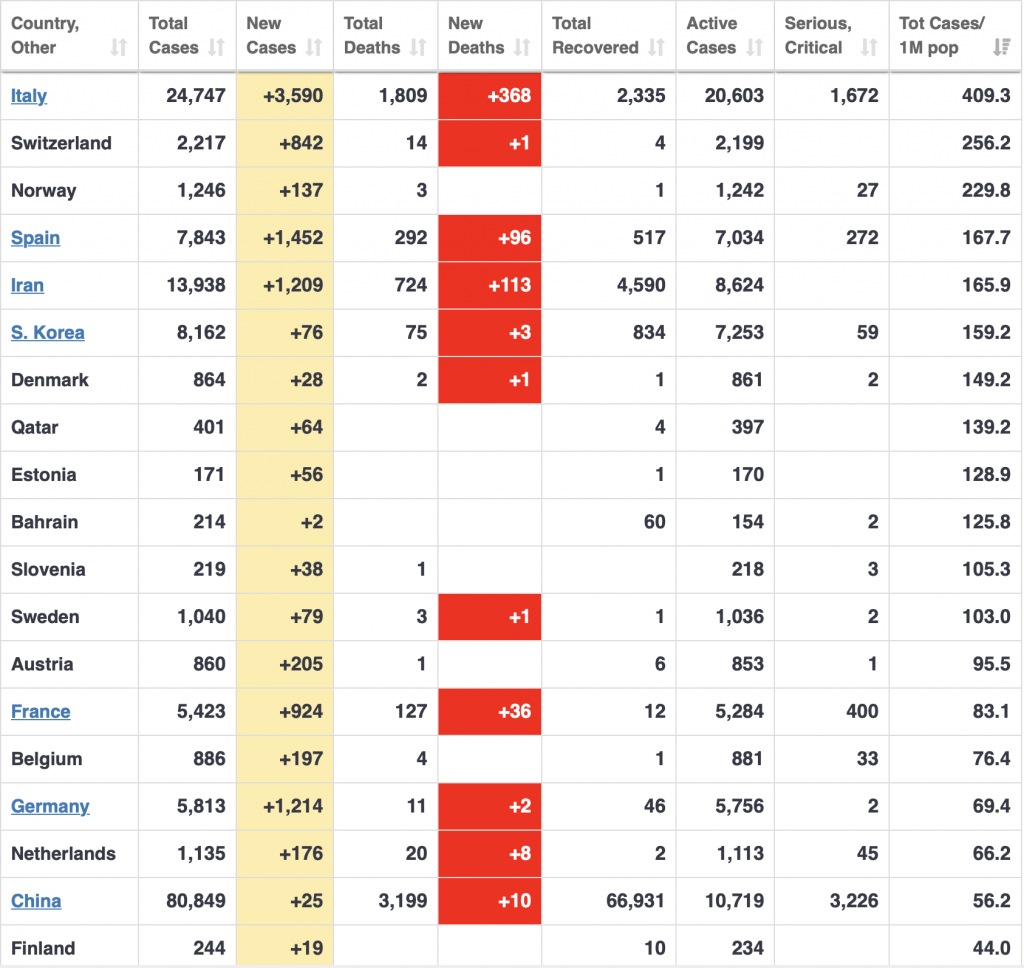 15 March 2020 – Finnair suspends flights to EstoniaThe Finnish flag carrier, Finnair, has decided to suspend flights to Estonia. Finnair has regular connections to the Estonian capital, Tallinn, and to the second-largest town in the country, Tartu. In addition, the company will cancel flights to Vilnius, Lithuania; Hong Kong; Madrid, Spain; and Riga, Latvia. 15 March 2020 – "We're in this together, so let's stand together!"Katharina Sowa, a Tallinn-based German expat, wrote in Facebook that it's not easy to be far away from one's family when the whole world is in a state of emergency and emphasised that "we're not alone in this situation, we're all in this together". "Let's care for each other! Stay in touch with the people you love. Take care of elderly people. Call your grandparents, make sure they have everything they need. Help others who are in need, in quarantine, or alone without family, don't let them feel alone in their isolation. If you know nurses or doctors, say 'thank you' – it can have a big effect. If you feel fear, worry, or grief yourself, share it with friends, family, colleagues," she said. "I'm still optimistic enough that humanity will show its beautiful face. We're in this together, so let's stand together!" 15 March 2020 – A sense of humour is not lostVisit Estonia, a branch of Enterprise Estonia – a state-run agency responsible for promoting Estonia abroad – has not lost a sense of humour, posting this online poster in the social media.  15 March 2020 – Pubs and dining venues remain openThe Estonian foreign minister, Urmas Reinsalu, told the daily newspaper, Postimees, that so far the government hasn't decided to close pubs and dining venues, but he can't rule it out. "The measures that earlier sounded very radical can a day after sound too soft," he told a special programme of the newspaper. "I am not ruling out additional internal steps to lessen social contact and I'm asking people to be understanding about them. At the same time, it's clear that movement restrictions or a curfew are not on the table." 15 March 2020 – Advice to BritonsAs a lot of Britons read Estonian World, the British embassy in Tallinn has asked us to share the UK government's website that contains information regarding travelling to and living in Estonia in the current situation. The British Foreign and Commonwealth Office advises against all but essential travel to Estonia due to the ongoing coronavirus pandemic and in line with various controls and restrictions imposed by the Estonian authorities. British nationals in Estonia should follow the advice of the Estonian authorities. 15 March 2020 – Situation in EuropeSome updates from elsewhere in Europe. The German interior minister announced today that the country will close its borders with Austria, Denmark, France, Luxembourg and Switzerland in an effort to slow down the spread of the virus. The German-Polish border is already closed because Poland had already earlier put itself on a lockdown. The Spanish authorities have ordered all residents to confine themselves to their homes; all schools, restaurants and bars have been shut down. France said yesterday it's closing all non-indispensable businesses – restaurants, bars, cinemas etc, and is beginning to reducing plane, train and bus services between cities. Austria has banned gatherings of more than five people and is closing parks, sporting venues and restaurants from tomorrow. The Netherlands announced a lockdown at least until 6 April, closing most schools and child care facilities, and also restaurants, cafes sand gyms. But nowhere is it as tragic as in Ireland, the country that should be celebrating the day honouring its patron saint, St Patrick, on Tuesday – the Emerald Isle is closing all of its pubs for two weeks. 15 March 2020 – Report from ChicagoA quick update from across the Atlantic Ocean, by the Chicago-based deputy editor-in-chief of Estonian World, Sten Hankewitz: "As the United States has imposed a ban on foreign citizens coming from the Schengen Area, the UK and Ireland, it's now struggling with welcoming home its own citizens and permanent residents who still can enter the country. There has been a massive chaos at some of the largest airports in the country, including the Chicago O'Hare International Airport where the Customs and Border Protection has imposed additional health screenings. The travellers are forced to stand in the line for hours and, unfortunately, it only takes one coronavirus carrier to infect hundreds of those in a small, closed space the people are waiting at. It has been so chaotic that the Illinois governor, J.B. Pritzker, tagged president Donald Trump in a series of angry tweets about the long waits, saying, '@realDonaldTrump @VP since this is the only communication medium you pay attention to—you need to do something NOW' and 'The federal government needs to get its s@#t together. NOW.' Meanwhile, the president has declared today a National Day of Prayer." 15 March 2020 – Estonia negotiating with PolandAs Poland has closed its borders, the Estonian authorities are in negotiations with their Polish counterparts to allow Estonian citizens transit through the country. As of now, they haven't reached a positive solution and the negotiations are ongoing. Estonian foreign minister Urmas Reinsalu posted on Facebook that he's asking all Estonians who are stuck at the German-Polish border to inform the foreign ministry via email konsul@mfa.ee, to let the foreign ministry know of the number of the people in their party, their names, the type of their vehicle, contact information and their location. 15 March 2020 – 171 infected, two hospitalisedThe Estonian Health Board has said that of the 171 infected with coronavirus, two are hospitalised. The Health Board also said there will be more of those infected, and that the country definitely hasn't reached the high point of contagion yet. One person who had tested positive for the virus has been declared healthy. 15 March 2020 – Serious stress test for the future of EUMarko Mihkelson, an Estonian MP (Reform Party), says there's lack of coordination between the European Union member states and a lack of response from the EU institutions. 15 March 2020 – Estonia is closing its bordersThe Estonian foreign minister, Urmas Reinsalu posted on Facebook today at 2:00 AM that the country has banned the citizens of other countries from entering Estonia, starting 17 March. "This means that ESTONIA IS CLOSING ITS BORDERS," Reinsalu wrote. "This rule has many practical exceptions, like truckers and the relatives of Estonian residents. The ban has one purpose: to protect the nation's health and to prevent the virus from spreading. There are no restrictions for Estonian citizens from entering the country and no restrictions on Estonian citizens and foreigners leaving the country." The foreign minister also added that all visitors are welcome to Estonia after the virus outbreak is over. Starting from 17 March, the only people to be allowed to Estonia are the citizens of the country, the Estonian "grey passport" holders (Estonian Russians and other resident aliens with undefined citizenship), the permanent residents and the foreigners whose family members reside in Estonia. The state also allows foreigners who are transiting through the country to enter, provided they don't have any coronavirus symptoms. Reinsalu also confirmed to Estonian World that temporary resident permit holders, too, will be allowed back in the country.  14 March 2020 – Discussion over closing Estonia's bordersThe Estonian prime minister, Jüri Ratas, told journalists today that the discussion over closing the country's borders had been going on for the entire day. He said he asked the government to convene in the evening, and that the situation due to the coronavirus pandemic is changing constantly, due to which "we can't rule out that we'll move on with additional steps and decisions in the hours and days to come", he noted. 14 March 2020 – Support Estonian WorldSince you're here, we have a small favour to ask. Despite the harsh daily challenges we face as the independently run media outlet, Estonian World has managed to offer engaging content on a weekly basis since 2012 – but to carry on the work we started, we need your help. Unlike many media outlets, we haven't put up a paywall or distract readers with banner ads – we want to keep Estonian World open and free to read. Please consider helping us in our efforts. We'd be grateful for every level of support – here's how you can support us.  14 March 2020 – Estonians urged to travel homeThe Estonian embassy in London, UK, posted on Facebook that all Estonian citizens who are travelling and want to get home are recommended to do so during the ongoing weekend. In a clarification post two hours later, the embassy added the number of countries who have imposed restrictive measures to prevent the coronavirus contagion is constantly growing. "The danger of being quarantined while travelling or ending up in a situation where transport to Estonia isn't possible anymore, can come up unexpectedly." 14 March 2020 – Fathers and other visitors banned from maternity hospitalThe Pelgulinna maternity hospital in Tallinn is banning fathers and other visitors from the hospital, starting on 15 March. This means fathers and support persons will not be able to attend births, nor will they be able to visit after the birth. In addition, the hospital is banning bringing gifts to the patients. The hospital said in social media that the situation due to coronavirus is extraordinarily serious and everyone must make sacrifices. "The most important thing is to minimise human contact – every one of us, both patients and the medical workers." 14 March 2020 – Coronavirus globally 14 March 2020 – Latvia is closing its bordersThe Latvian foreign minister, Edgars Rinkēvičs, has announced Latvia is closing all its borders, effective 17 March. 14 March 2020 – AirBaltic suspends flightsThe Latvian flag carrier, AirBaltic, the airline many Estonians also use for their travels, has announced it will suspend all its flights starting from 17 March. The CEO of the airline, Martin Gauss, said the company was working on a plan to bring back all passengers who are stuck abroad. 14 March 2020 – Estonians not recommended to travel abroadThe Estonian foreign minister, Urmas Reinsalu, said in a press conference today that the ministry recommends people not travel abroad, not invite foreigners to Estonia and for those Estonians who are abroad – come back to Estonia immediately. He also noted that restrictions change in real time and therefore the foreign ministry website may not always have up-to-date information; however, the information is being monitored and the website is updated concurrently.  14 March 2020 – All sporting venues closeThe Estonian government has decided, in addition to the existing restrictions, to close all sporting venues (gyms, sports clubs etc), water parks, pools and spas, and day centres, to limit contact between the people as much as possible, the prime minister, Jüri Ratas, announced. Also, the hotels and other accommodation providers have to shut down their gyms, pools, saunas and spas. 14 March 2020 – Tartu mayor proposes tough measuresUrmas Klaas, the mayor of Estonia's second-largest town, Tartu, has suggested to the country's prime minister additional measures to prevent the coronavirus contagion. He's proposing additional restrictions on entertainment and beauty services, closing down shopping centres and only leaving food stores and pharmacies open. He's also suggesting additional restrictions on using public transit or even suspending regional public transit. As the most extreme measure, Klaas is proposing shutting down the country's border. 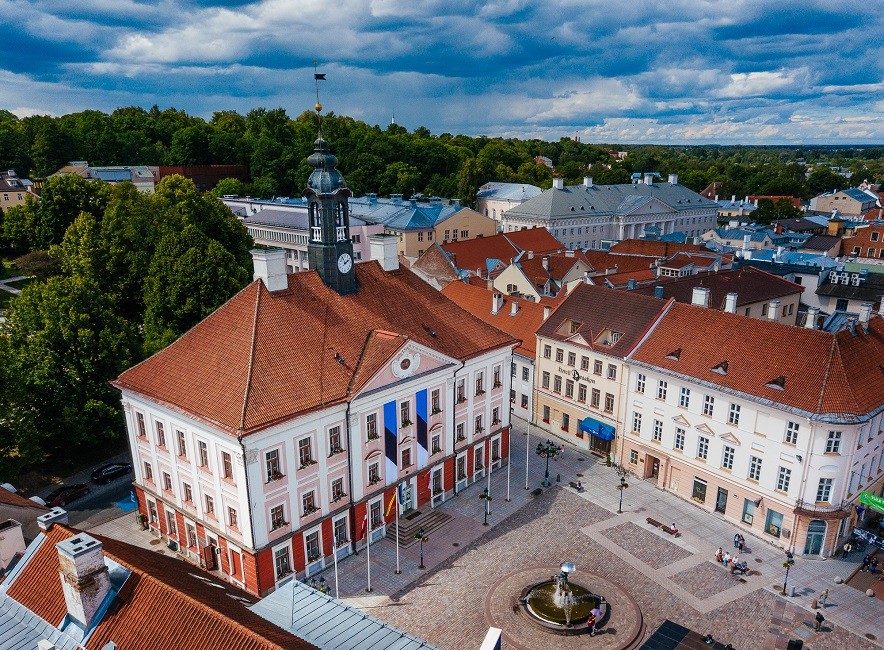 14 March 2020 – Estonian president calls people to take care of the elderlyThe Estonian president, Kersti Kaljulaid, said in a statement to the Estonian people regarding the emergency situation that much depends on everyone's own initiative, and people shouldn't wait for what the emergency committee is to decide, but act according to their own intelligence and the information they have. She also called on taking care of the elderly, the sick and the weak – to avoid close contact, but to keep constantly in touch by the phone. "Let's arrange that the people who are in the risk group won't have to go to the store or the pharmacy. That's seriously life-threatening." She also called company managers to arrange for people to work from home if that's possible. 14 March 2020 – A lockdown on the Estonian islandsThe Estonian government has imposed a lockdown on the Estonian islands of Hiiumaa, Saaremaa, Muhu, Vormsi, Kihnu and Ruhnu – only the islands' residents are allowed to travel there, and no one else will be allowed. The non-residents who are currently on the islands can return home. The restrictions don't apply to the supply of goods and vital services. 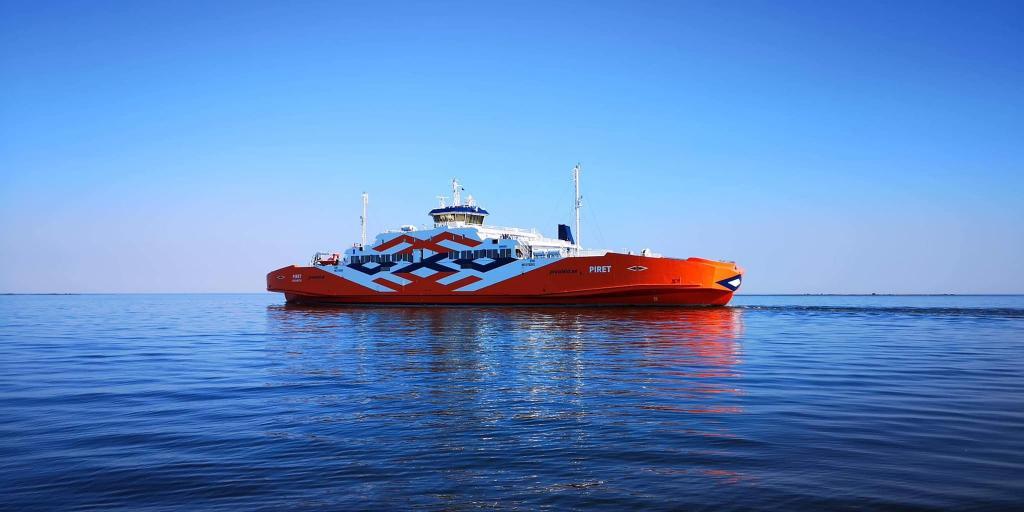 14 March 2020 – Ferry traffic between Tallinn and Stockholm suspendedThe Estonian shipping company, Tallink, has announced it will suspend all ferry traffic between Tallinn and the Swedish capital, Stockholm, starting from Sunday, 15 March. The decision was made to assure the health and safety of all people in the Baltic Sea region. 13 March 2020 – Shelves are emptyEven though the retailers' assurances that there is no reason for panic and that all the shelves will be filled today, that truly isn't the case. The editor-in-chief of Estonian World, Silver Tambur, paid a visit to the Prisma supermarket in Rocca Al Mare, Tallinn, and took a few photos of the chaos of empty shelves. The last time the Estonian people remember the stores this empty was during the Soviet occupation and around the time the Soviet Union was collapsing. 13 March 2020 – Police will question people on the borderStarting tonight, the Estonian Police and Border Guard Board will start questioning people about their itinerary, travel mates, their potential contact with people possibly infected with coronavirus and whether they themselves have had any symptoms of a virus. In addition to Tallinn Airport, the seaports and border crossings on the eastern border, the police will also collect data from people entering from Latvia. 13 March 2020 – The government planning to borrow €1 billionThe Estonian minister of finance, Martin Helme, said in a press conference that the mild effect of the coronavirus crisis to the country's economy might be two percentage points; the grim effect, however, five percentage points. To alleviate the effects of the crisis, the minister said the government was planning tax cuts and compensating certain losses – and looking into borrowing around €1 billion. 13 March 2020 – Urgent travel adviceThe Estonian foreign ministry has published an urgent travel advice for those intending to travel to Estonia, saying that the country's borders are open; however, in order to stop the spread of coronavirus, there are certain recommendations and measures in place. 13 March 2020 – Europe is not the "epicentre"Europe is now the "epicentre" of the global coronavirus pandemic, the head of the World Health Organization, Dr Tedros Adhanom Ghebreyesus, said at a press conference. "Europe has now become the epicentre of the pandemic, with more reported cases and deaths than the rest of the world combined, apart from China," he said. "More cases are now being reported every day than were reported in China at the height of its epidemic." Ghebreyesus urged countries to use aggressive measures, community mobilisation and social distancing to save lives. "Do not just let this fire burn," he said. 13 March 2020 – Coronavirus alert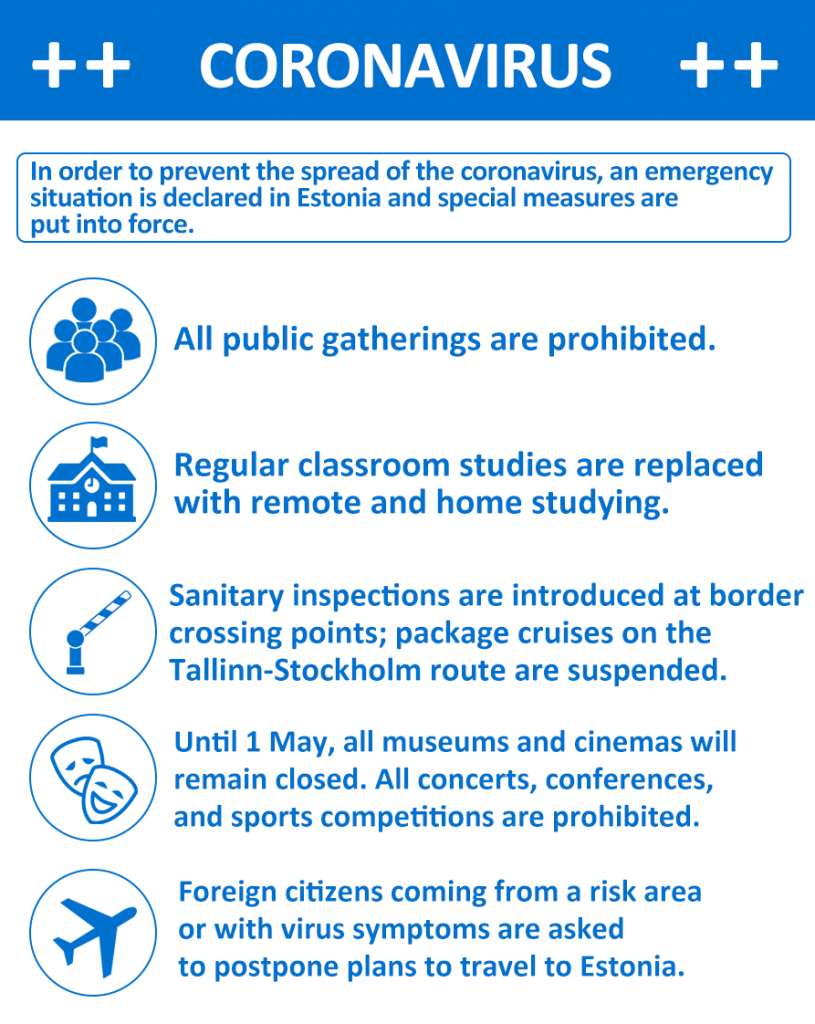 13 March 2020 – Empty shelves 13 March 2020 – Museums and art centres closeThe museums and art centres that are now closed to the public, include the Arvo Pärt Centre in Laulasmaa. The centre, holding a dedicated exhibition space and the world famous composer's personal archive, said in a statement that due to an emergency situation declared by the Estonian government, all previously scheduled concerts, educational programmes and guided tours have been cancelled. The Estonian National Opera has also cancelled all performances until 1 May. 13 March 2020 – Situation in the US deterioratingThe hardest-hit state in the US is Washington in the Pacific Northwest (not to be confused with the nation's capital, Washington, DC, which is on the East Coast). In Washington state, there are a total of 457 people infected with coronavirus. In total, 31 people in Washington state are known to have died from the disease. Below are some photos from Seattle, the largest city in Washington (population 745,000), that has turned into a ghost town. These photos were taken on Wednesday and Thursday by Walt E Clark. 13 March 2020 – Report from ChicagoSten Hankewitz, the Chicago-based deputy editor in chief of Estonian World, reports: "The state of Illinois has now 32 reported cases of coronavirus, and the governor, J.B. Pritzker, already a few days ago declared a state of emergency in Illinois. Today, he banned public events of more than 1,000 people, but allows most schools to stay open. A few universities in the Chicagoland area have closed their doors and moved to online-based remote learning. In the every-day life, the signs of a panic settling in are somewhat visible – the rush hour traffic is tamer than usual, there are fewer people out and about many are working from home. However, the main sign of a panic can be noticed while shopping – the Walmart Supercenter just north of Chicago has run out of toilet paper. The shelves of canned soup and medicine are also almost empty."  13 March 2020 – Severity of symptomsAccording to the World Economic Forum, the coronavirus disease causes no symptoms or is mild in 81% of cases. In the remaining 14%, it can cause severe pneumonia and in 5% it can become critical or even fatal. Only 3% of cases occur in people under 20, and mortality under 40 is only 0.2%. Symptoms are so mild in children that the virus can go unnoticed, the WEF said. 13 March 2020 – Global coronavirus map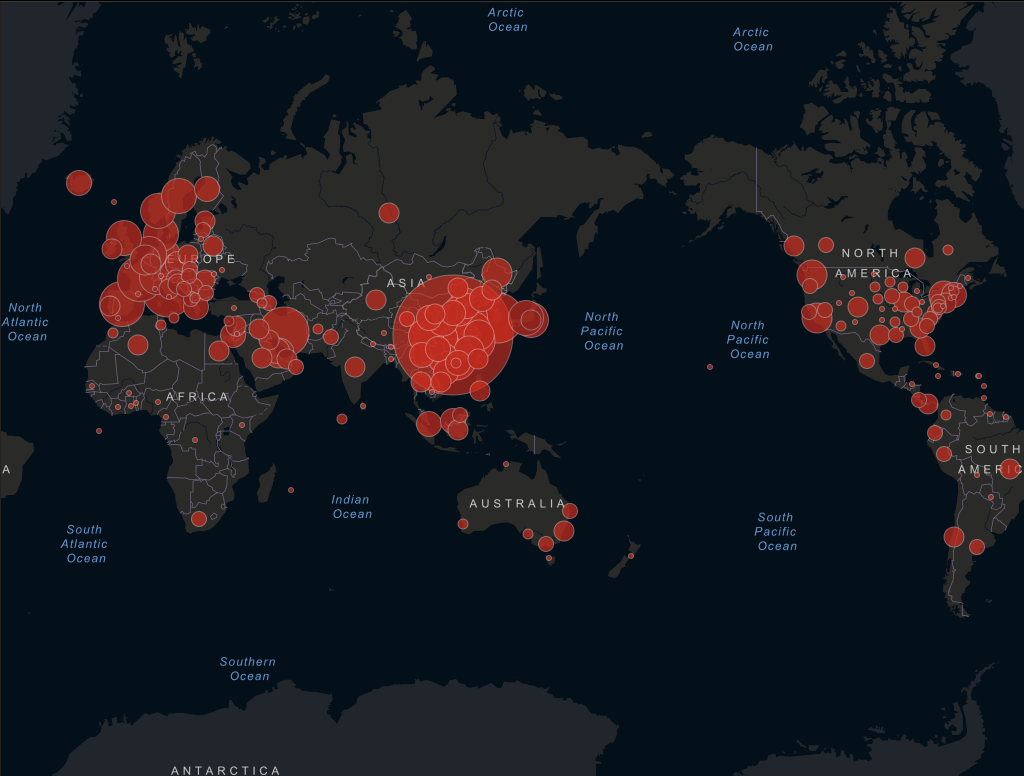 13 March 2020 – Global cases growth around the globe 13 March 2020 – High school state exams could be postponedThe Estonian ministry of education is saying it's possible that the high school state exams – necessary for graduation – could be postponed. According to the schedule, they should start in April. "It's probably not impossible that we have to postpone the state exams, but we'll get back to the issue later; there's still time until the exams," Tarmu Kurm, the communication manager of the ministry of education, told the newspaper Postimees. 13 March 2020 – The entire EU affectedThere are now people infected with the coronavirus in every European Union member state. Altogether, there are 22,000 infected in the 27 member states of the EU; over a thousand people have died. 13 March 2020 – Government press conferenceThe Estonian prime minister, Jüri Ratas, interior minister Mart Helme, foreign minister Urmas Reinsalu and minister of social affairs, Tanel Kiik, were holding a press conference on behalf of the Estonian government this morning. The ministers were explaining further details regarding the emergency situation, declared in Estonia last night. Some of the key points so far:
Tanel Kiik addressed also the question on the availability of free coronavirus tests – Estonia, unlike some other countries, does currently not provide free tests. "Taking each test means using single-use medical devices. It is also a resource. At the same time, there are other challenges for ambulances," Kiik said, referring to emergency calls. "Therefore, the test should only be performed when necessary. Sometimes it is necessary to wait for symptoms to appear in order to avoid false negative tests that tell a person that he or she is healthy, when in fact he or she is ill. There is a risk that people who get false negative results will go out again and mix with other people." 13 March 2020 – "The speed and clarity of decisions are crucial"Kaja Kallas, the leader of the Reform Party, the largest opposition party in the Estonian parliament, was a moderately critical of the government's actions so far. "People expect clear messages and instructions. But they do not come. After all, 'going on with everyday life' was a major mistake in other countries. In this case, acting quickly is important and I think we have lost the day," Kallas wrote in Facebook, few hours after the government's decision to declare a state of emergency in Estonia. "We are ready to support the government in establishing a state of emergency, but more important than the legal perspective are the specific instructions and decisions. Schools and kindergartens should be closed tomorrow [Friday], not Monday. Entrepreneurs need more security and the health system more support. Action by the state must instil confidence to the people. In crises, the speed and clarity of decisions are crucial," Kallas said.  13 March 2020 – "Something good about COVID-19"Taavi Kotka, a former CIO (chief information officer) of the Estonian government and one of the architects of the country's e-residence programme, said there's also "something good about COVID-19." "By country and by region, real baseline and benchmarking data will emerge for further analysis of what happens when people change their mass behaviour," he wrote on Facebook. "From a global perspective, a few months of 'lock-down' is nothing. Certainly, the biggest conclusions will be drawn in the production and supply chains, but one can hope that environmental and climate scientists will also be able to get a boost for the optimisation of their models. Covid-19 is foremost a medical issue, but the spill over will be felt in almost every other field of science. Exciting years to come," Kotka said. 13 March 2020 – Retail issuesThree large supermarket chains in Estonia, Maxima, Rimi and COOP, told Estonian news portal Delfi that consumers do not need to panic – their warehouses are well-stocked; logistics and supply chain work as usual. Rimi's representative said that there may be some problems with goods imported from Italy, but the retail operator is aiming to replace those with items from elsewhere.  12 March 2020 – Estonia declares emergency situationThe Estonian government has declared an emergency situation. The emergency situation will run, as of now, until 1 May 2020, unless the government will decide otherwise. "The absolute priority of the government is to protect the health of the Estonian people in this situation," the prime minister, Jüri Ratas, said. "The emergency situation is necessary to prevent the contagion of the coronavirus the most efficiently. The state has to have the ability to give the people clear and, if need be, mandatory orders that would help limit the contagion of the virus." The measures during the emergency situation:
12 March 2020 – Retail panicPeople have started to panic in Estonia and for the first time in decades, many supermarkets have run out of some goods, such as toilet paper. Frozen food fridges are also emptying fast. This was the picture at a Prisma store in Tallinn's Sikupilli district this evening (courtesy of Ragnar Sass). 12 March 2020 – Public transport restrictionsTo prevent the spread of coronavirus, the drivers of Tallinn's buses, trams and trolleys are now longer selling tickets to passengers on board the vehicles. Passengers will also no longer be able to board buses and trolleys from the front door, and there will be a "sanitary zone" from the front door to the front seat row. Public transport tickets can still be purchased on buses, trams and trolley buses via validator, on the internet or via mobile phone. 12 March 2020 – Minimise social contactsEstonian financial analyst Kristjan Lepik shared his observations on coronavirus spread:
 12 March 2020 – Getting testedBeginning 13 March, people in Estonia can get tested for the COVID-19 virus at two medical companies – provided they will cough up €81. "It's essential to emphasise that the options for taking the samples and testing them are restricted, so we ask that before people sign up for the test, they'd evaluate whether they are among the risk group," Tõnu Allik, the CEO of one of these companies, Medicum, told the Postimees newspaper. It's necessary to point out that even in the United States that often gets criticised for its health care costs, all major health insurers have said that testing for the COVID-19 virus is 100% covered. And Vice President Mike Pence said on CBS This Morning that anyone who wants to get tested, symptoms or no symptoms, can get tested for the virus. Estonia, however, has, at least in theory, universal health care.  12 March 2020 – Large events postponedEstonia's flagship startup and tech gathering Latitude59 will be postponed due to growing concerns related to the coronavirus outbreak. Latitude59 will take place on 27-28 August 2020. The international music festival and conference, Tallinn Music Week, will also be postponed until August. The new dates will be 26- 30 August. 12 March 2020 – Visiting days at army bases cancelledAll conscripts of the Estonian Defence Forces will remain at base over the coming weekend to reduce the risk of the coronavirus entering military bases. All visiting days have also been cancelled. 12 March 2020 – Coronavirus cases growingAs of today, there are 27 confirmed cases of coronavirus disease (COVID-19) in Estonia. The first case was found on a person who travelled to Tallinn from Riga on 27 February. So far, the infected people have recently travelled or originate from the affected areas – for example, family members, coworkers, healthcare professionals who have cared for patients with coronavirus infection or have been in contact with the travellers with confirmed coronavirus infection. "It is possible that individual cases will be also identified in Estonia due to tourism and international travel, but it is very important here to quickly identify possible cases in order to implement effective control measures to prevent the spread of the disease," the state-run Estonian Health Board said. 12 March 2020 – Schools to closeAccording to the Estonian minister of education, Mailis Reps, all schools will close their doors starting Monday, 16 March. That includes trade schools and universities, too. By Thursday evening, already 90 educational institutions in the country had closed their doors. 12 March 2020 – Health system preparing for a crisisThe Estonian prime minister, Jüri Ratas, said in a statement in the parliament that the country's Health Board had "already raised the preparedness level of the health system to number one in order to be prepared for negative developments. Raising preparedness means that ambulances and hospitals have begun to replenish supplies and expand coronavirus testing capabilities." He also called people upon their return from a risk area to monitor their health for 14 days, stay at home and avoid going anywhere. 12 March 2020 – Government forms a commissionThe Estonian government has formed a commission to manage the handling of the COVID-19 situation. The commission has so far decided on the following measures: • cruise ships will not be permitted to dock in Estonia until 1 May; • follow the recommendations of the ministry of foreign affairs when organising business trips and incoming visits of employees of state institutions, local governments, as well as private and non-profit sectors; • advise applicants for public events permits in Estonia to postpone public events with more than 100 participants; • obligate the Health Board to coordinate the authorisation of a public event with more than 100 participants and also assess compliance with the guidelines for permits already issued; • postpone, as of today, all excursions to public authorities; • launch the coronavirus hotline 1247 from 16 March at the latest. 12 March 2020 – Risk countriesAccording to the assessment of the Estonian Health Board, the People's Republic of China, Italy, Iran and South Korea are risk areas. In addition to risk areas, the foreign ministry advises against travelling to Japan, Singapore, France, Germany, Spain, Israel and Egypt. The ministry also asks everyone to reconsider the necessity of all foreign travel. 12 March 2020 – "A tsunami that is going to sweep across the world."Many Estonia-based expats have also started expressing their opinions on the spread of the virus in the country and the government's response. "I think that the next few days are going to be extremely critical. So far majority of the cases could have been avoided in Estonia and it has been a severe lack of seriousness from the administration and government," Manan Anwar, originally from Pakistan, said. "It is like flu but a flu that can either kill you or your parents or your grandparents if you're not careful. I am still amazed at people who are laughing it off. Knowing that in Italy they are already deciding on which parents are worth saving and which ones are to be treated. This is a tsunami that is going to sweep across the world. And you're going to get wet. Better get prepared," Anwar added. 12 March 2020 – "Disinfecting" with vodkaSome people and companies have not lost their humour, however. This is how "fight" against the virus is conducted in some corners of the country, it seems – courtesy of Türi Aianduse ja Mesinduse Selts (a local gardening society in Türi, a small town in Estonia's Järva County).  12 March 2020 – Estonian Health Board contacts
11 March 2020 – Travel adviceDue to the continued spread of the coronavirus, the Estonian foreign ministry advises against travelling to Egypt, Israel and the Community of Madrid and Basque Country in Spain. As regards the rest of Spain, the ministry recommends considering whether the trip is absolutely essential. |
| You are subscribed to email updates from "single-baltic-lady" - Google News. To stop receiving these emails, you may unsubscribe now. | Email delivery powered by Google |
| Google, 1600 Amphitheatre Parkway, Mountain View, CA 94043, United States | |





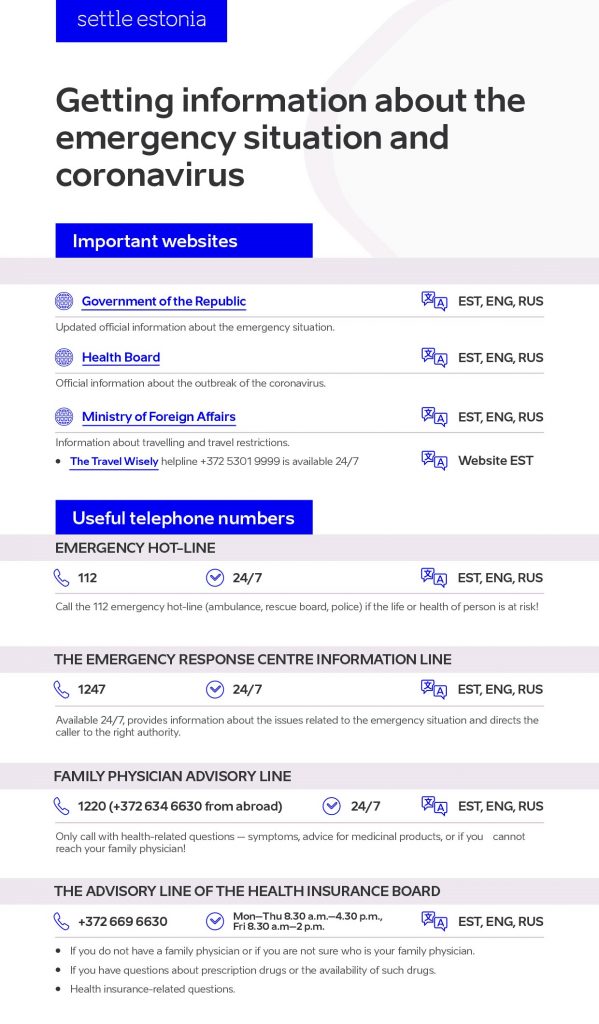
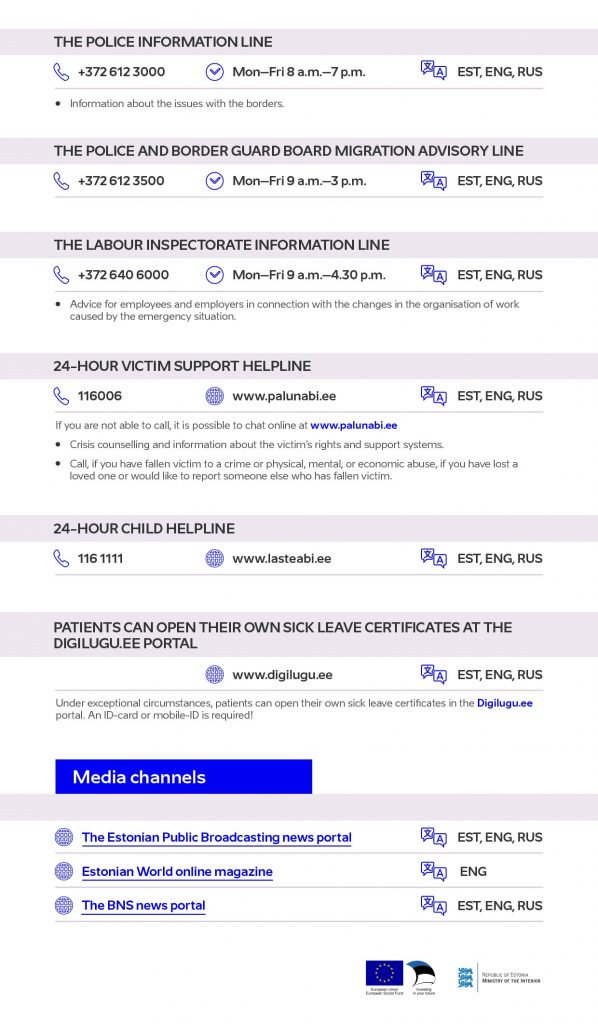


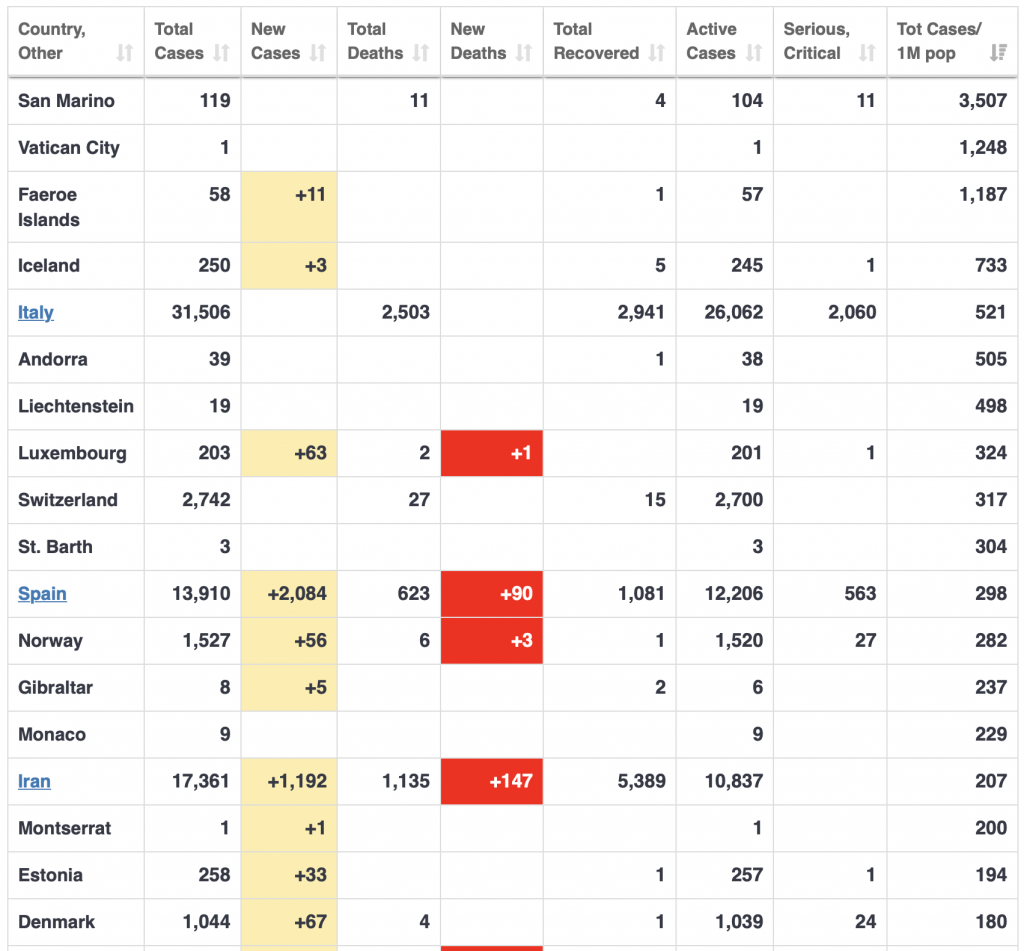
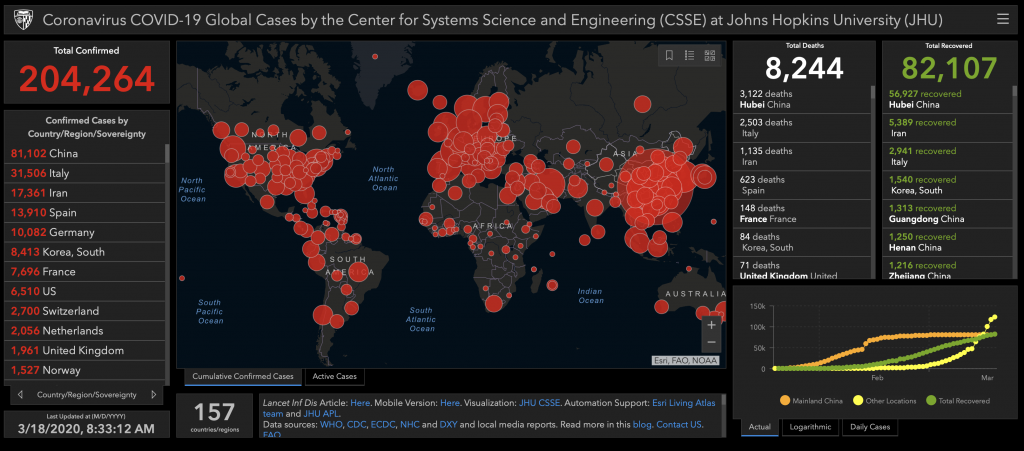
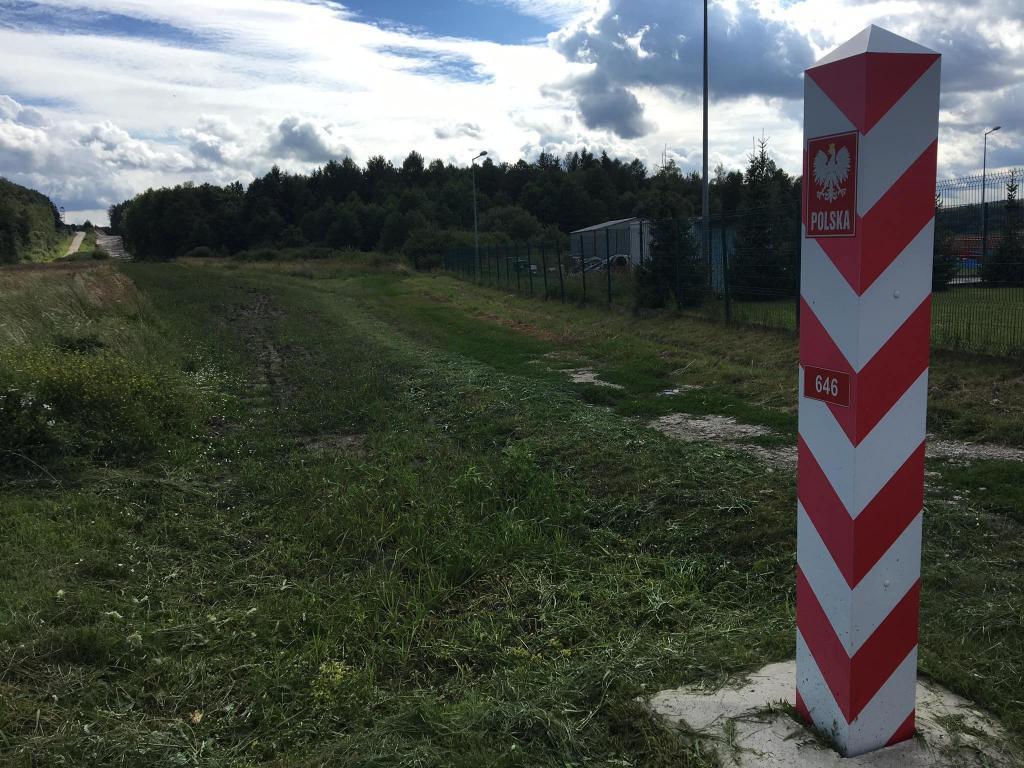


Comments
Post a Comment